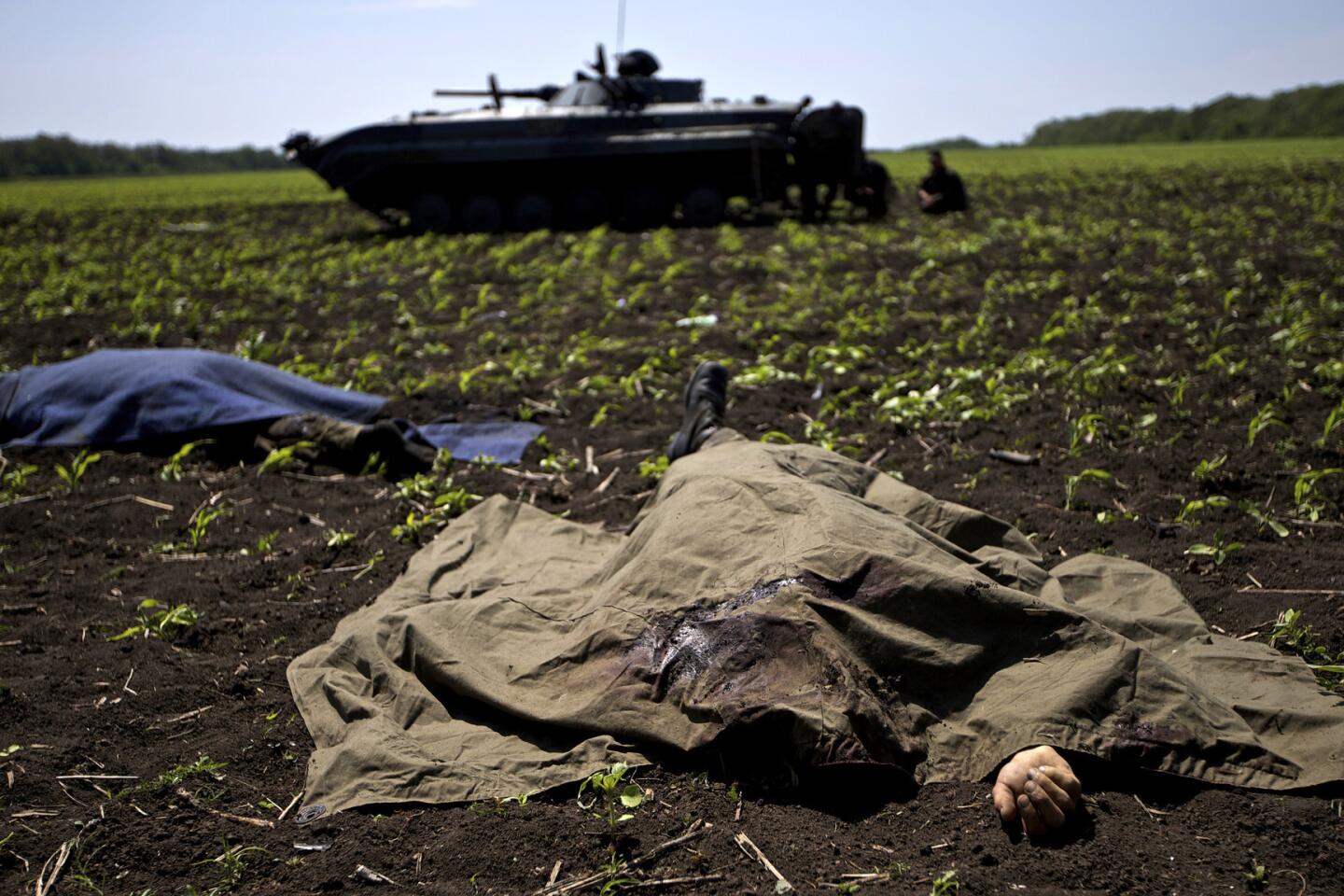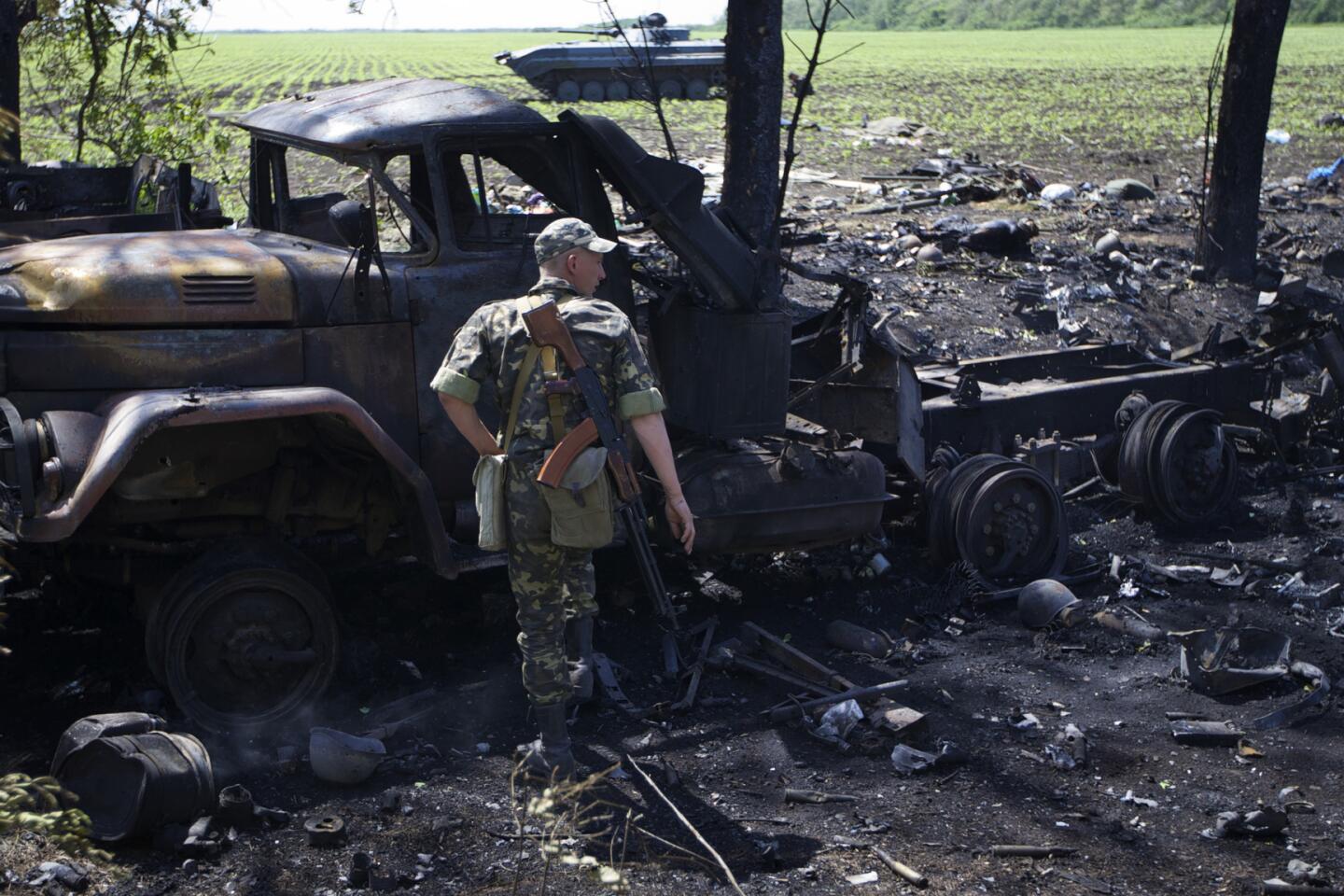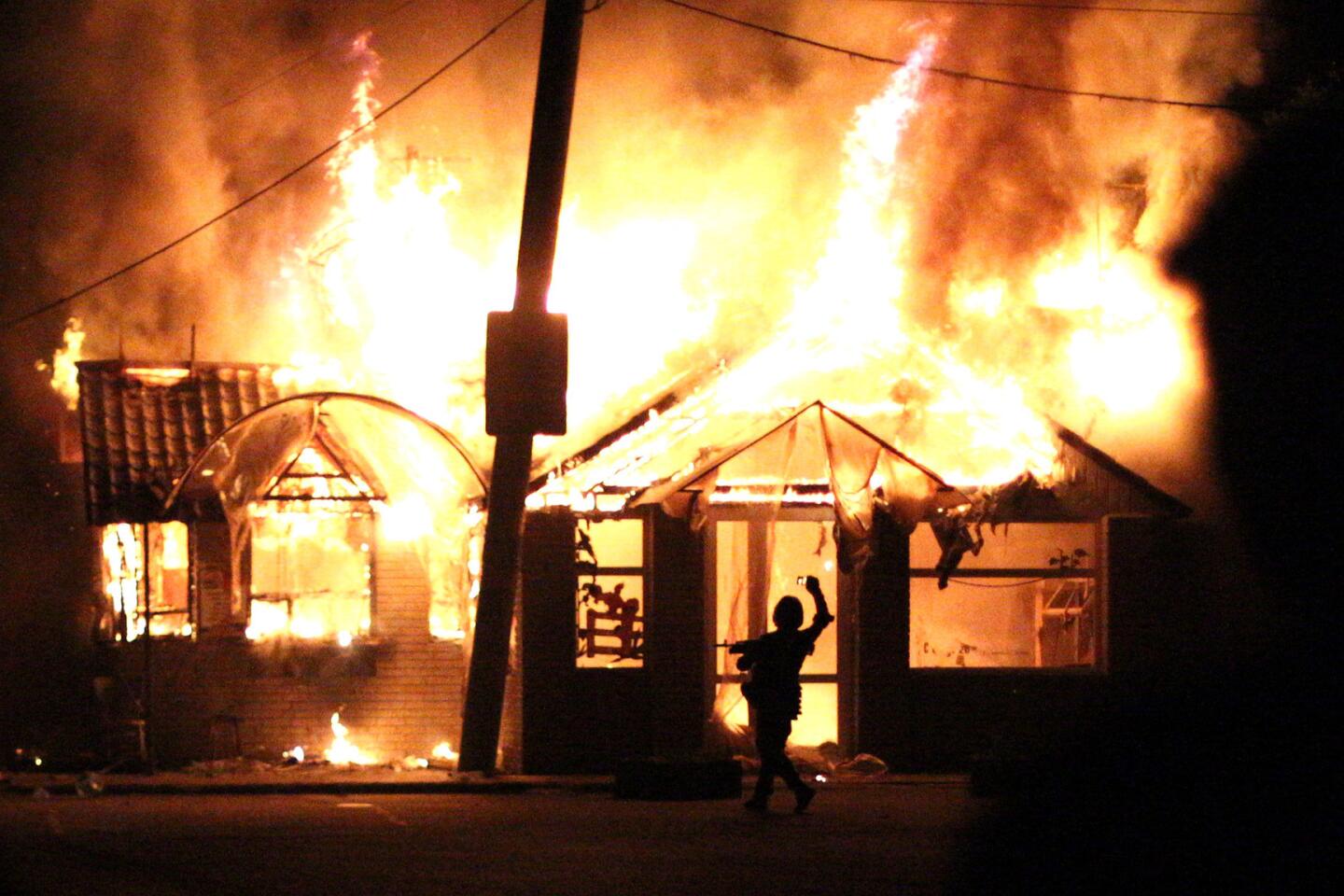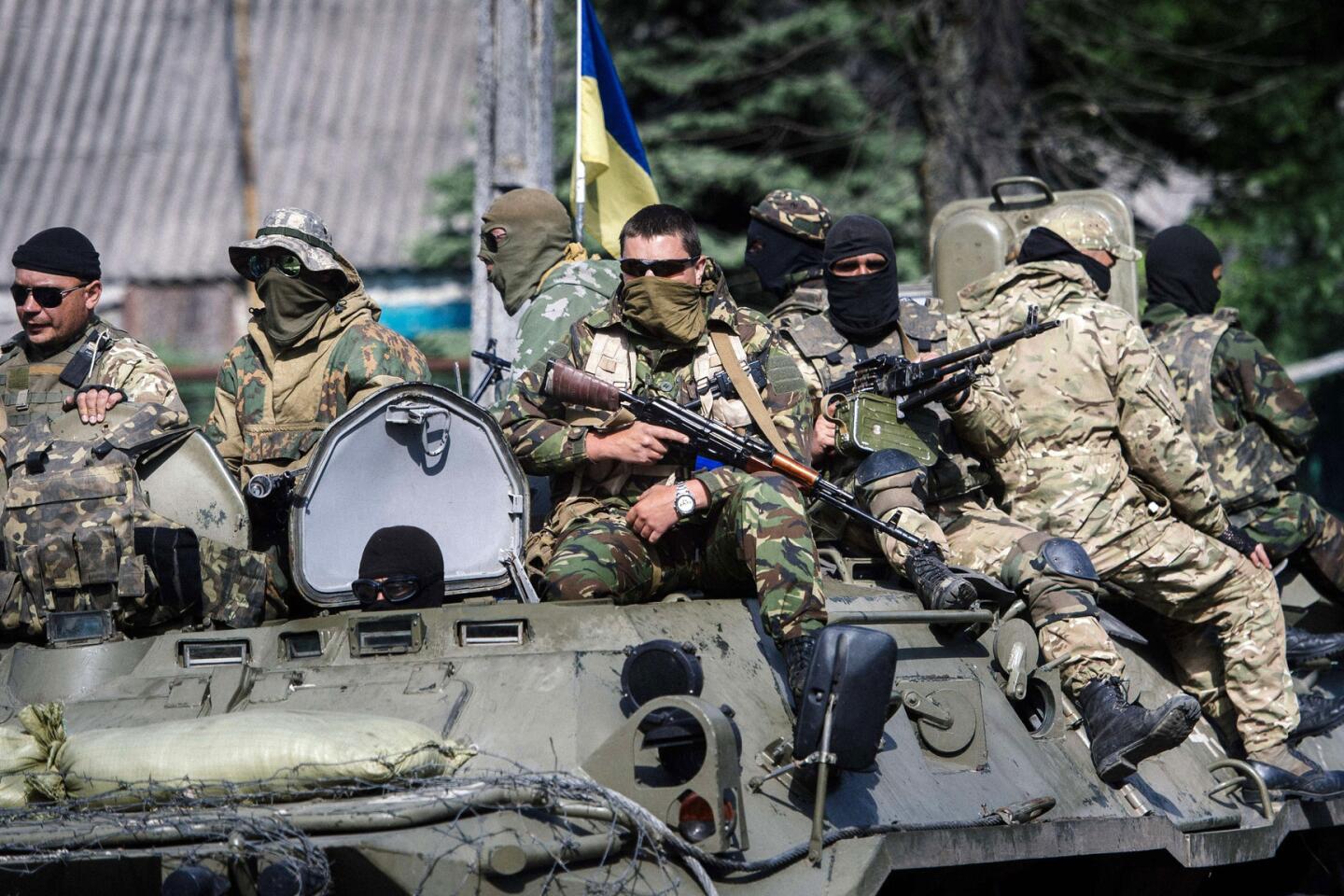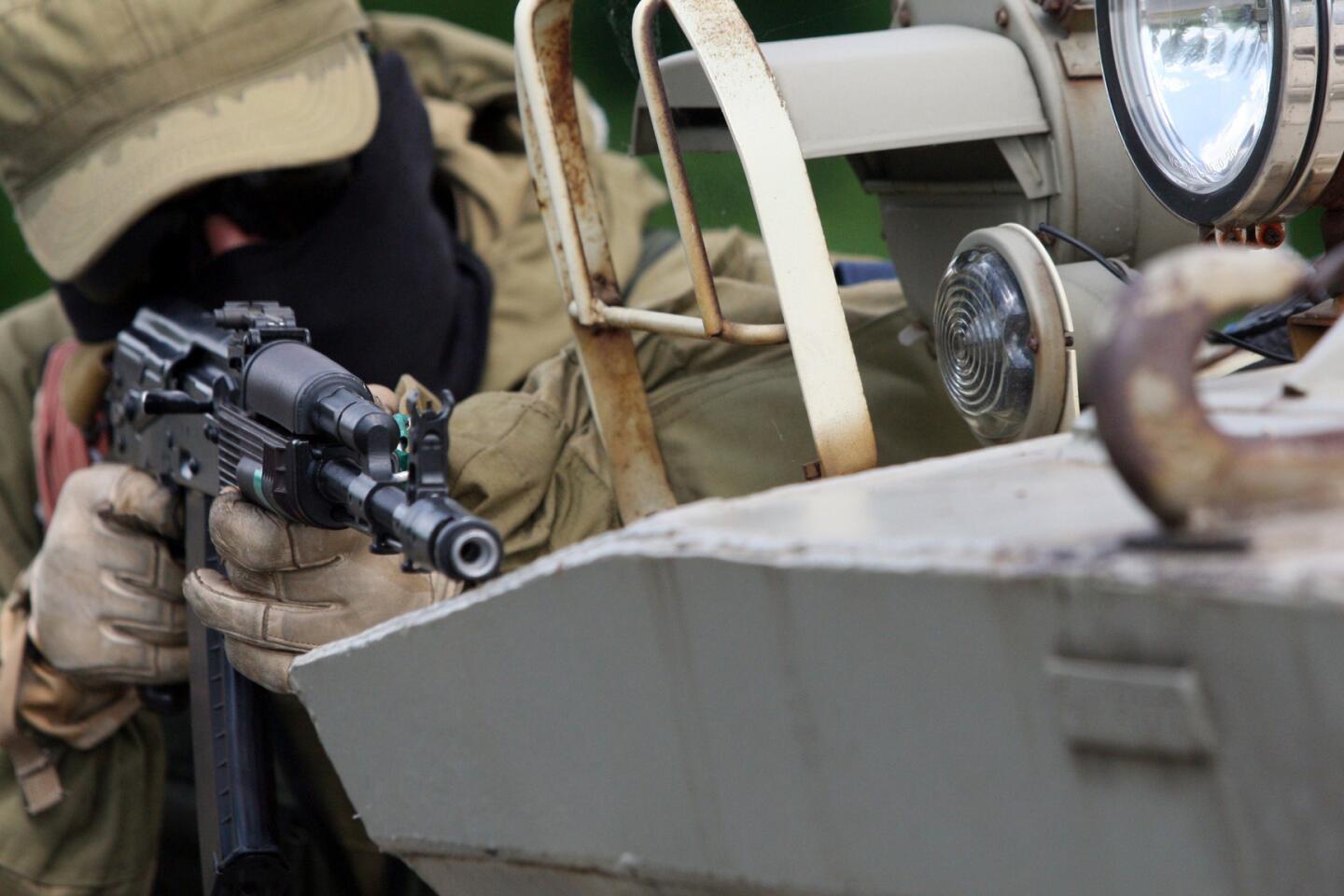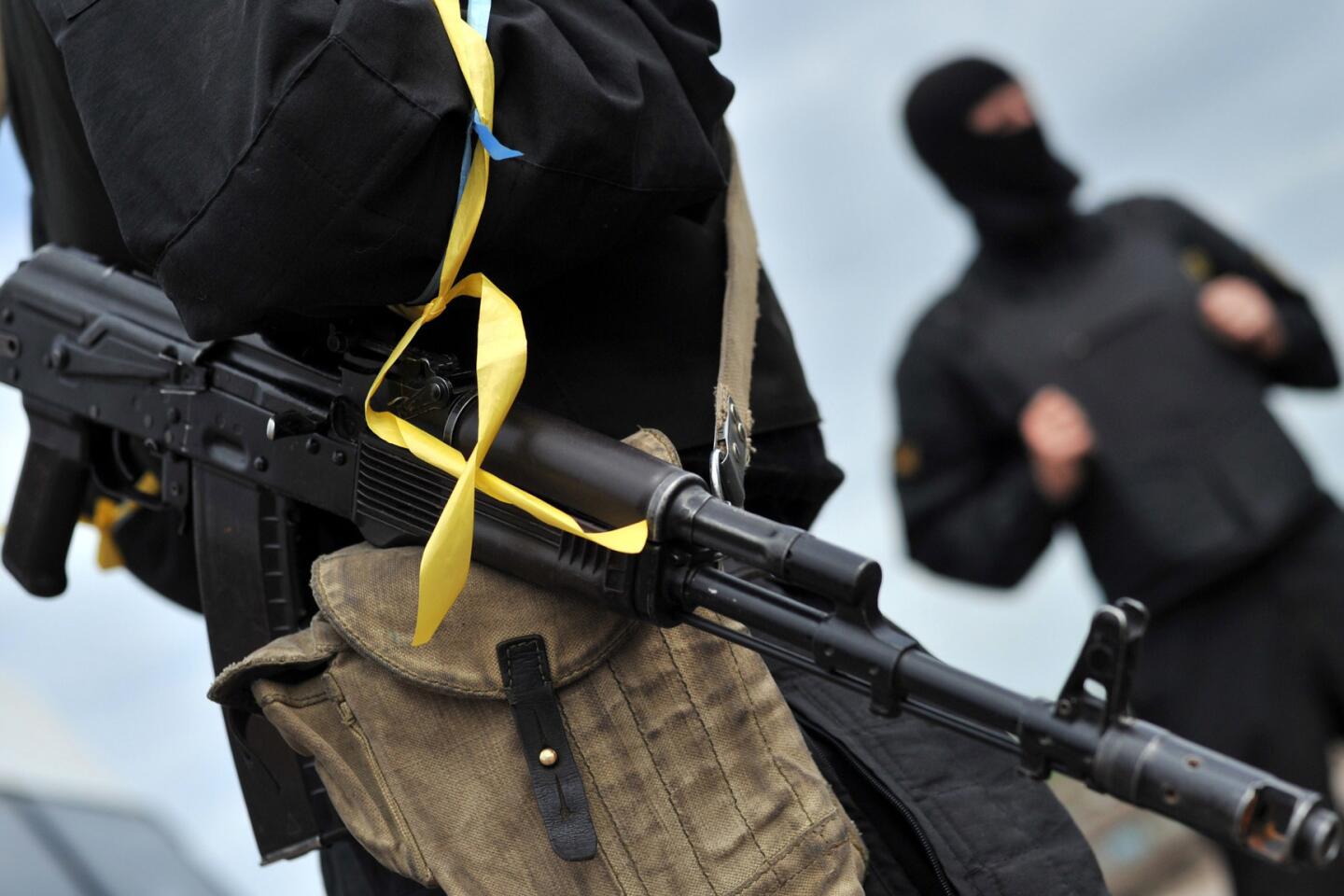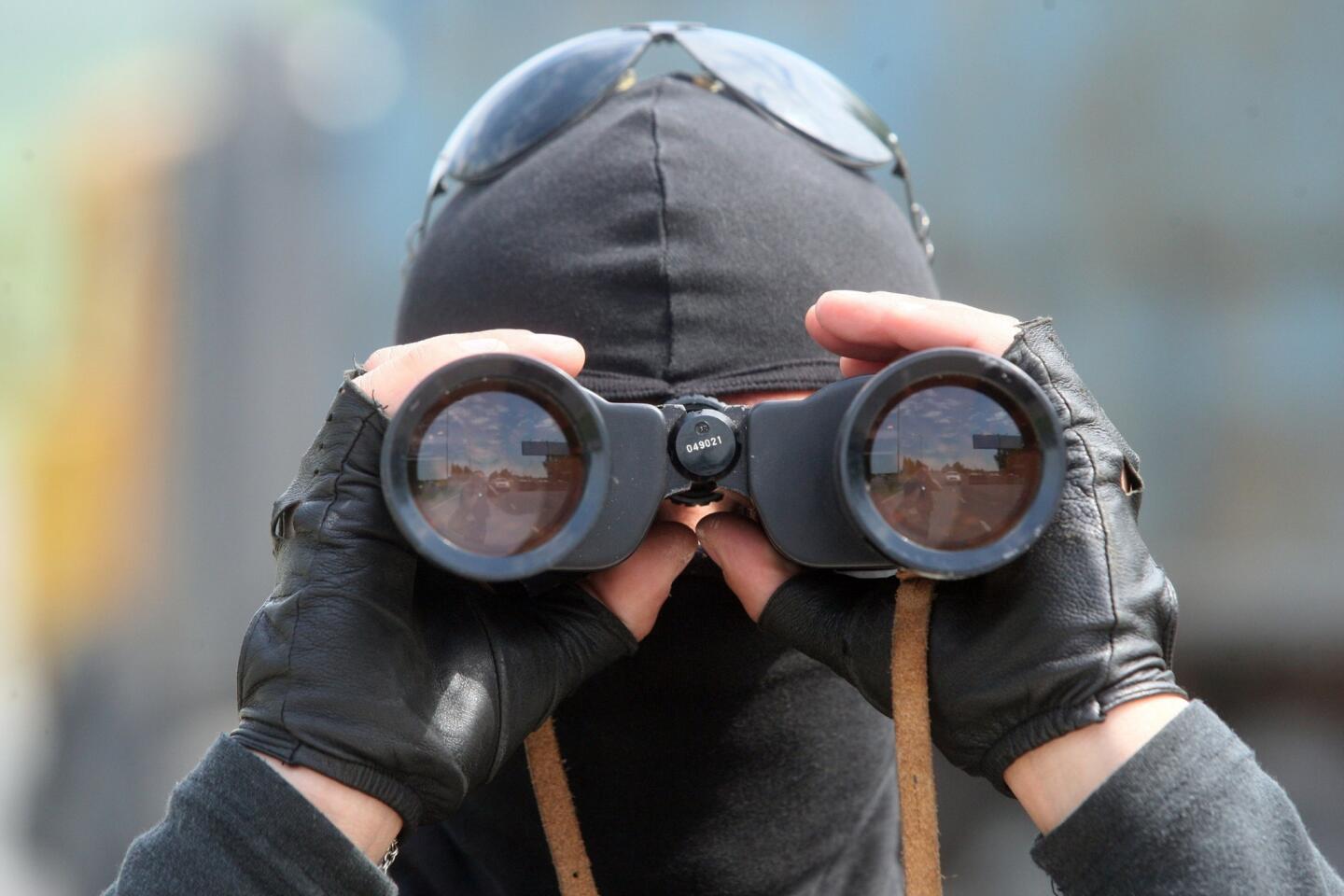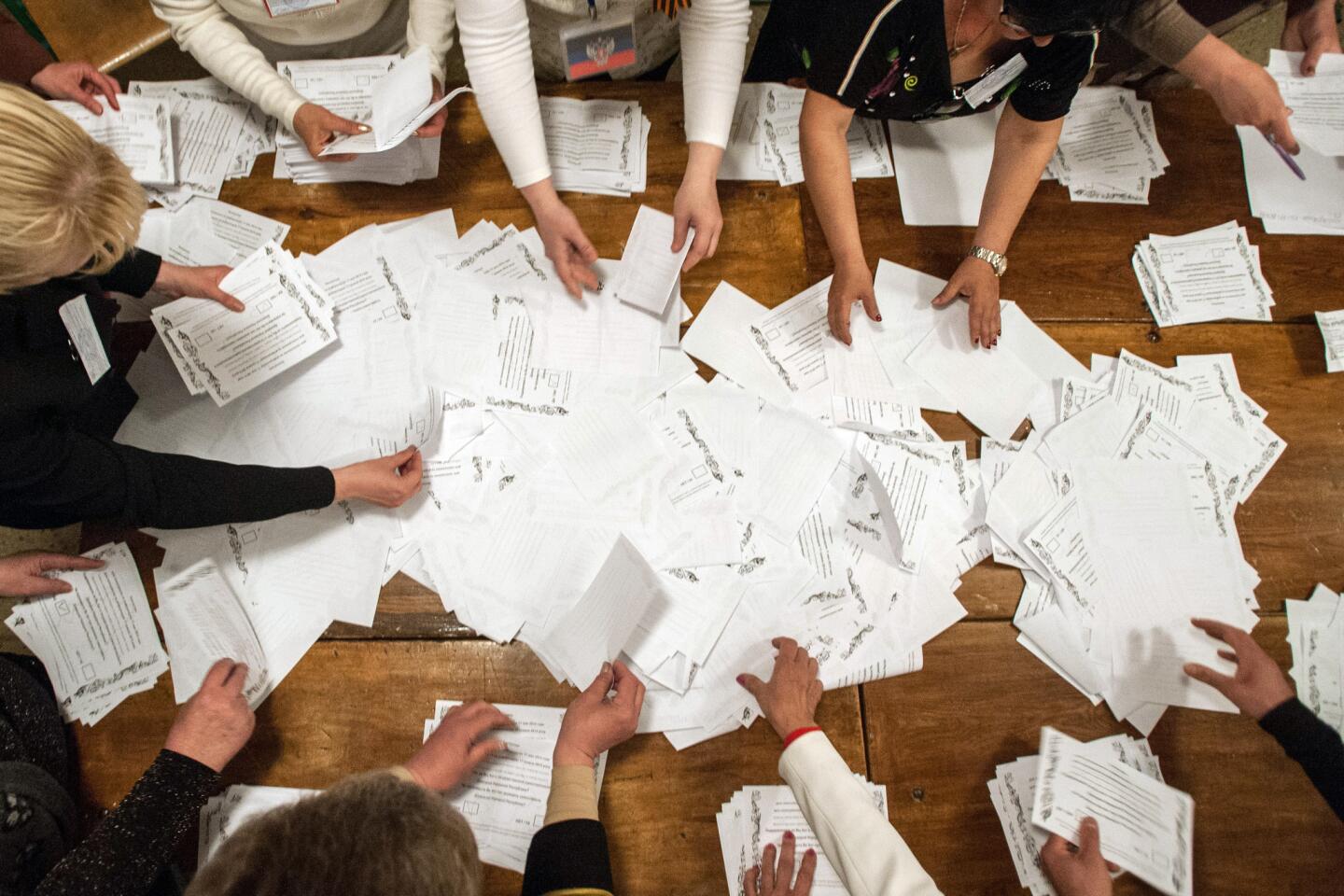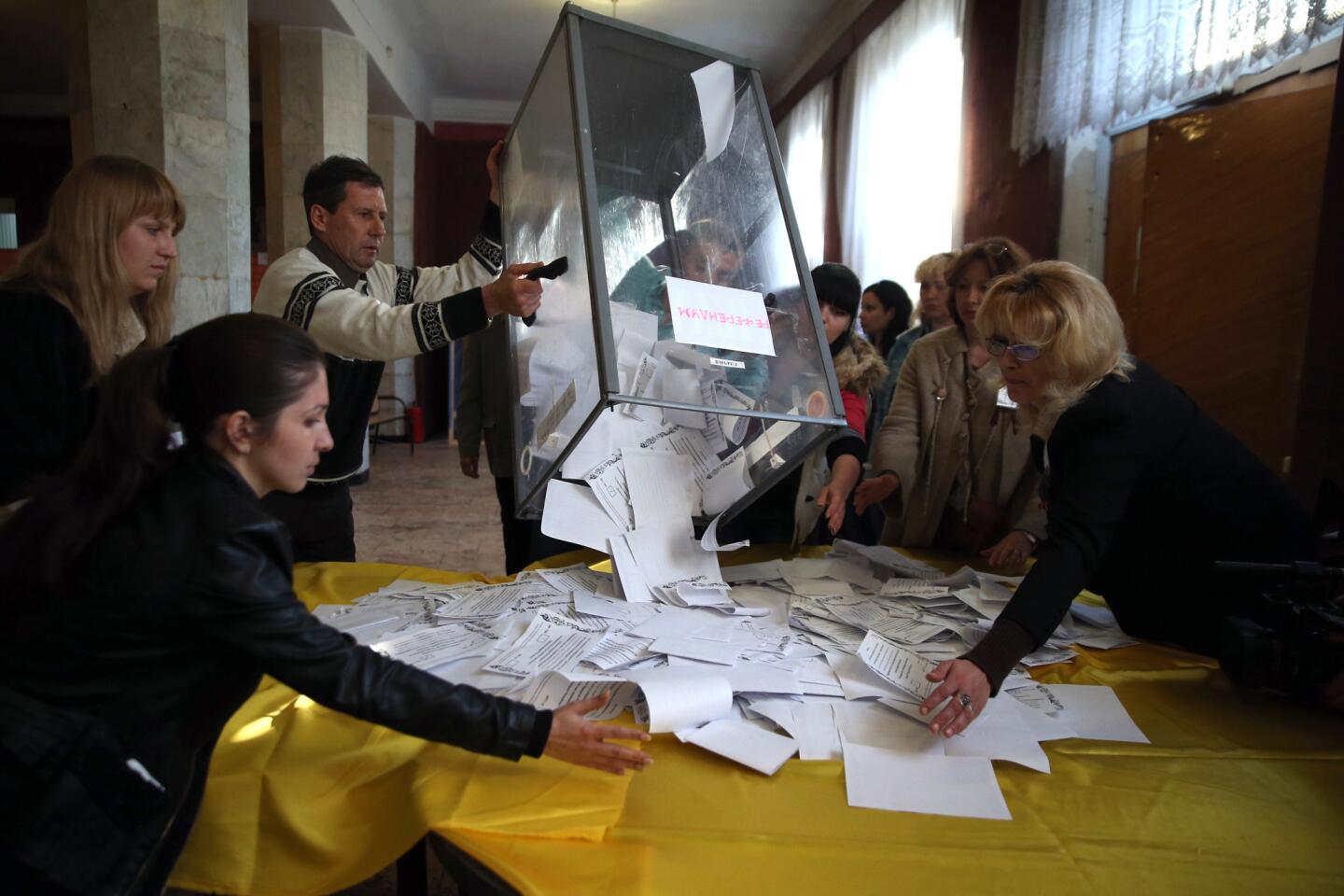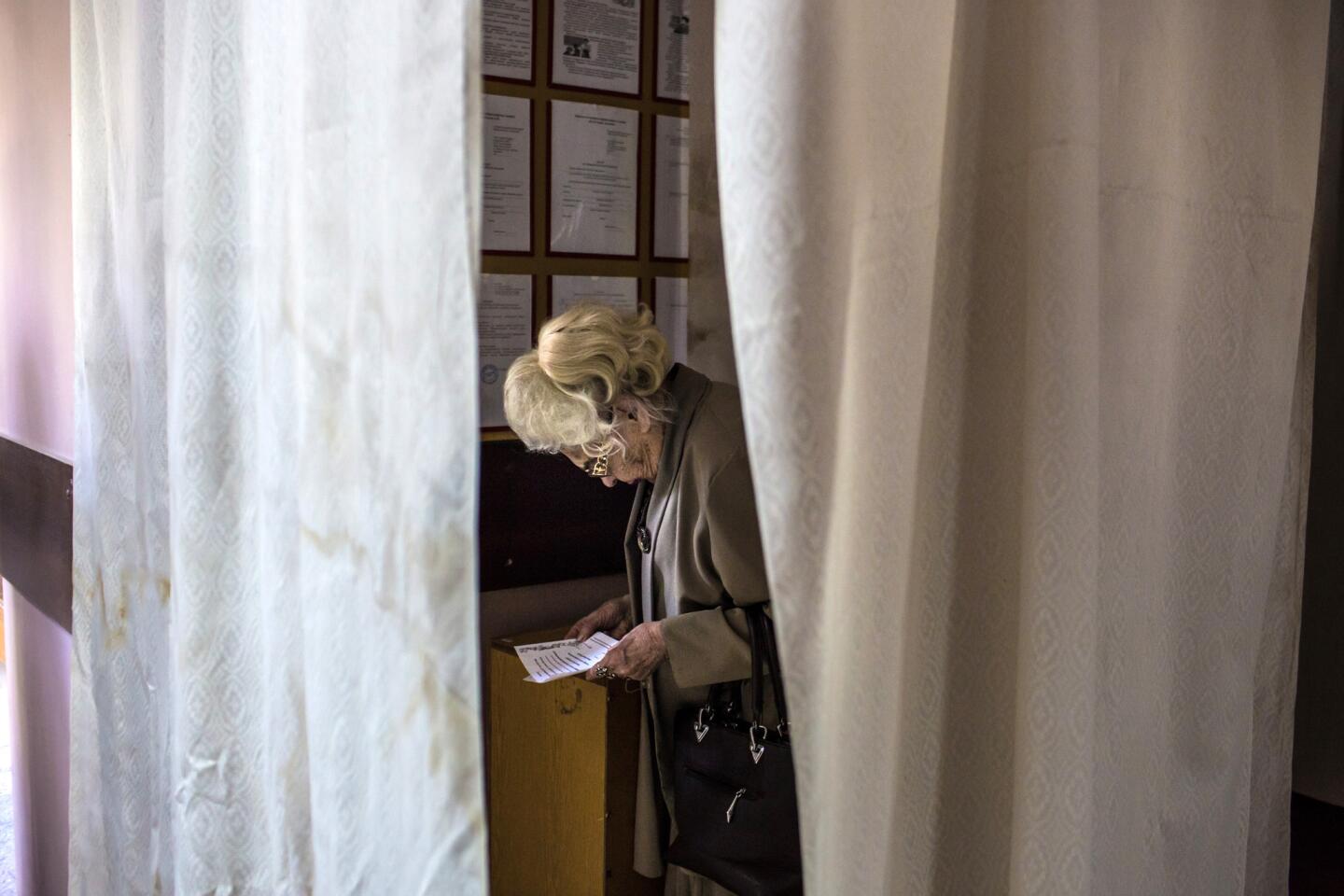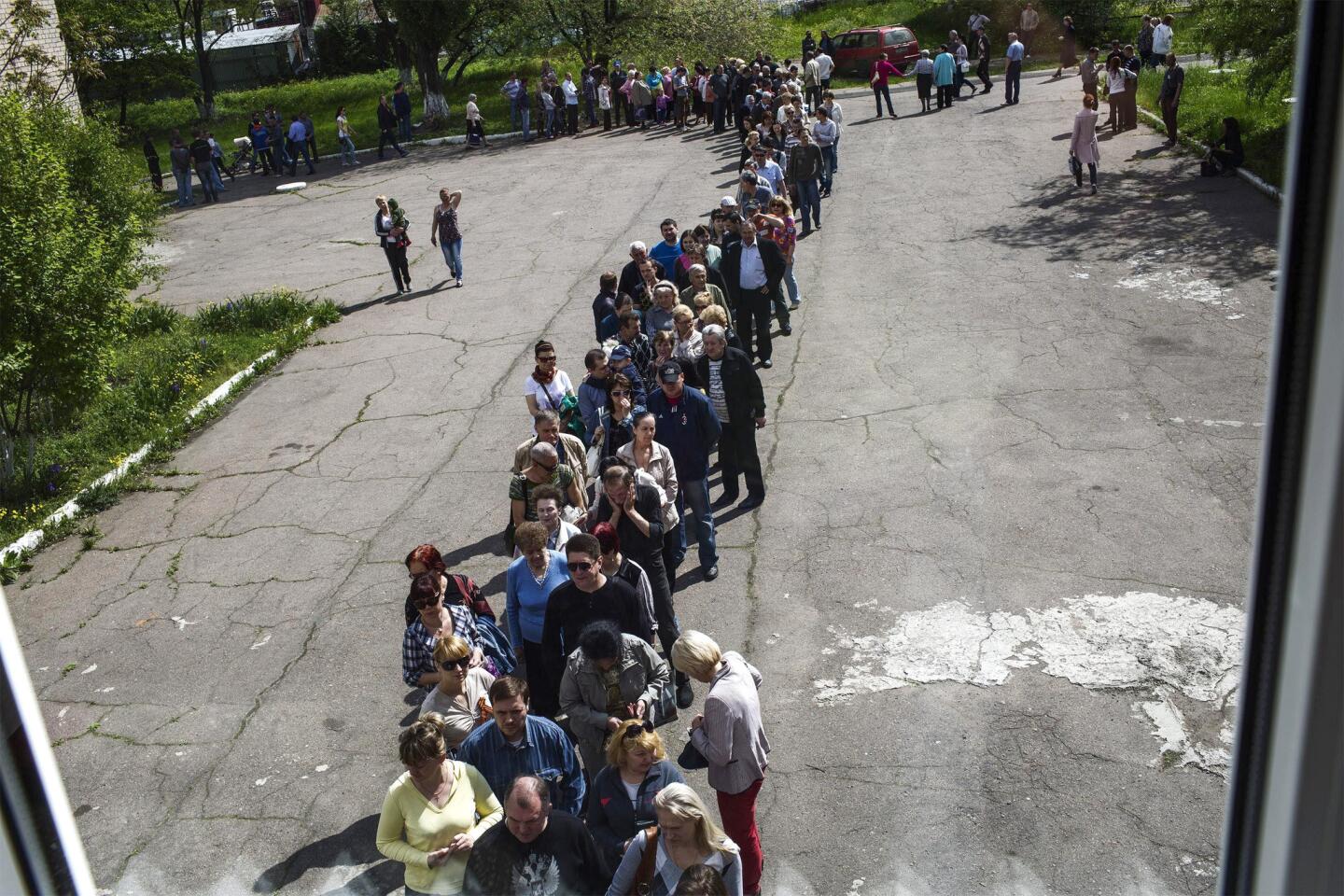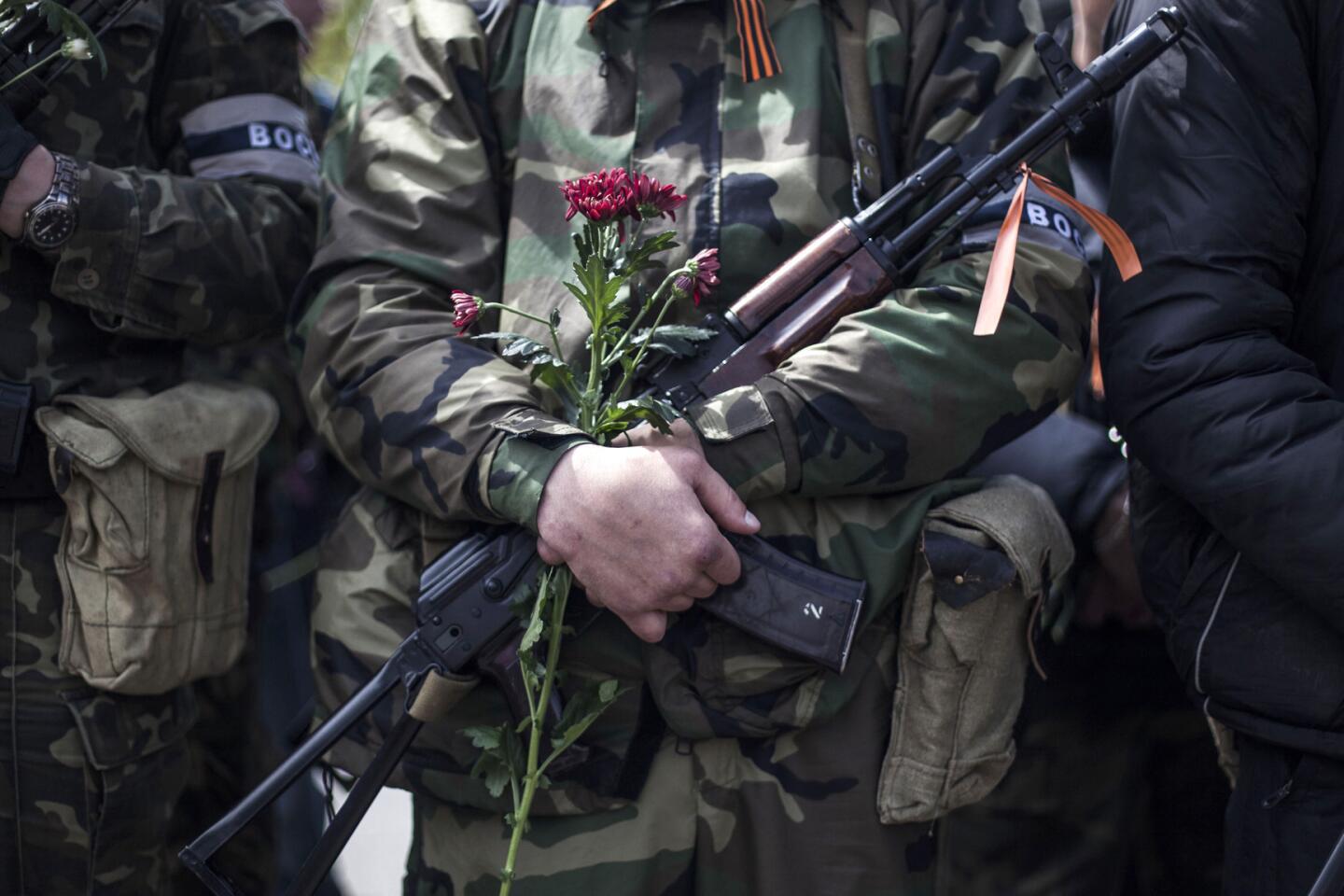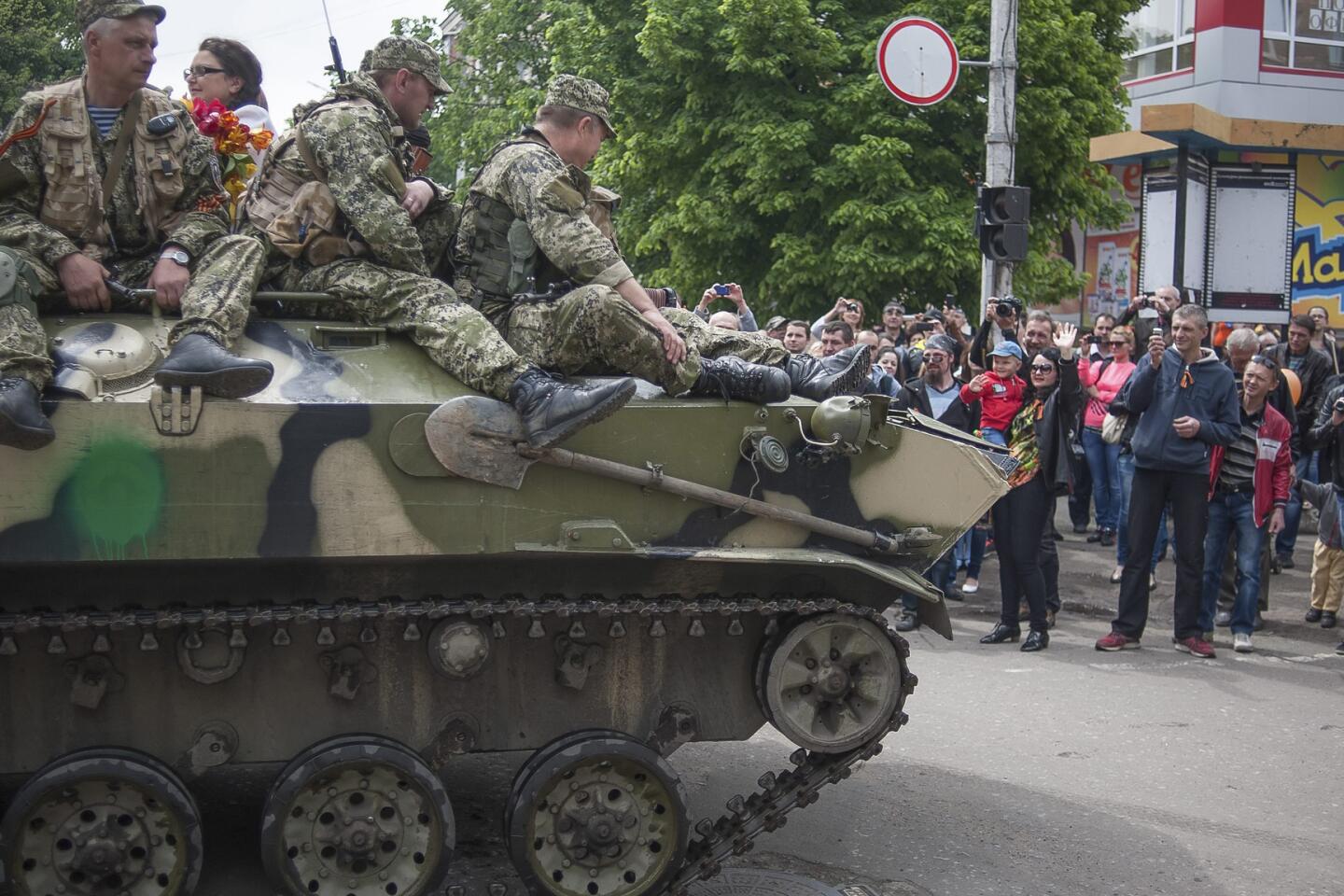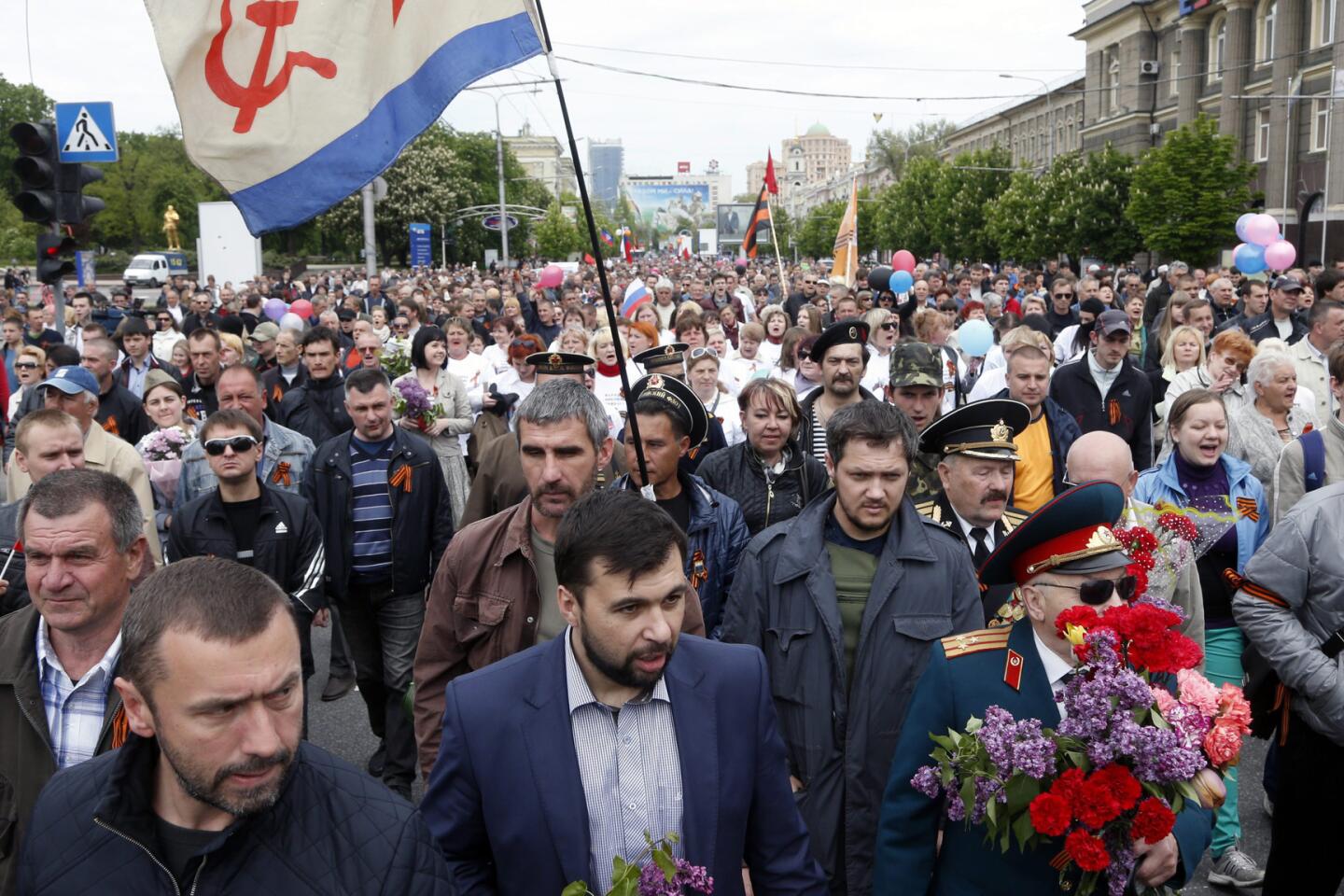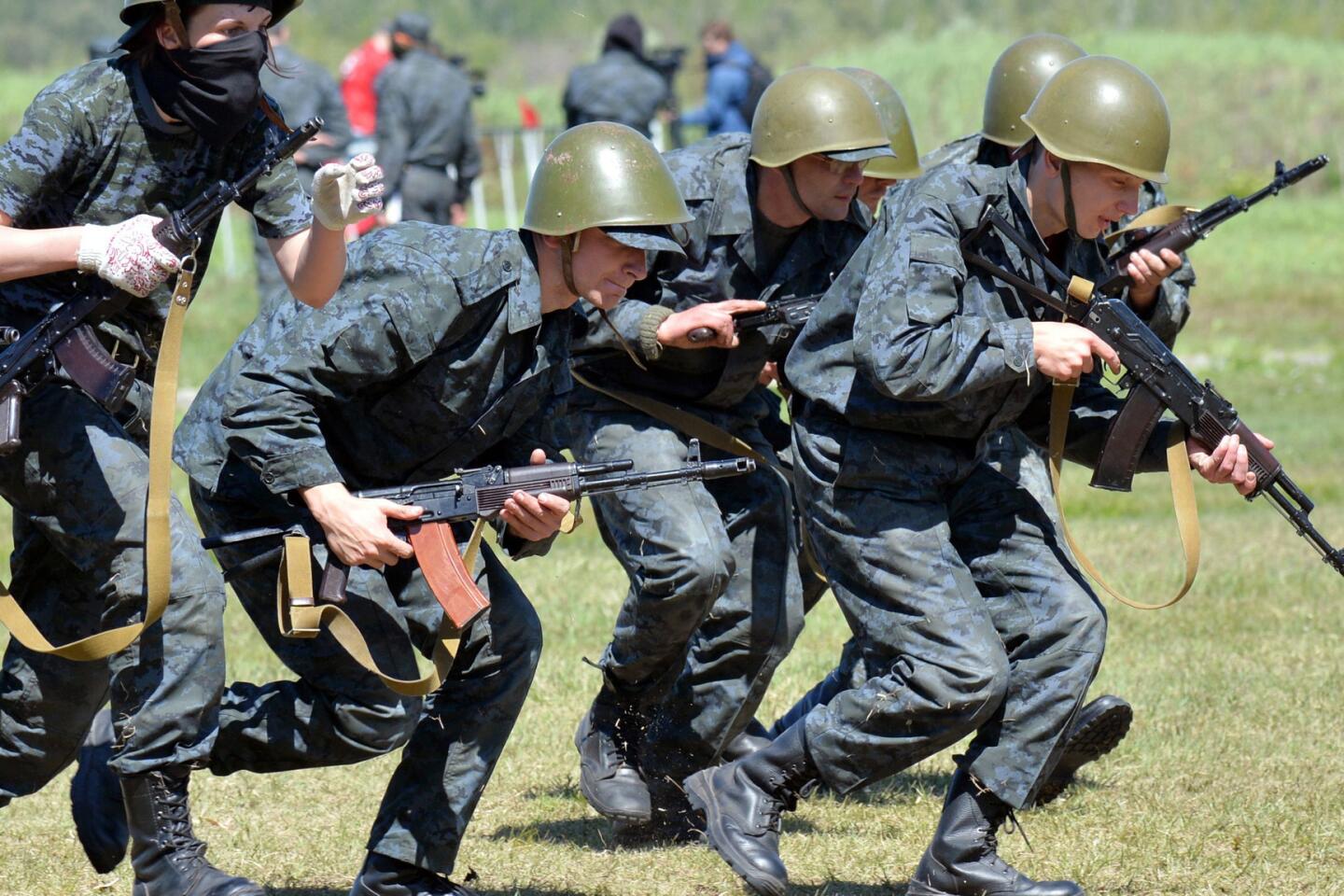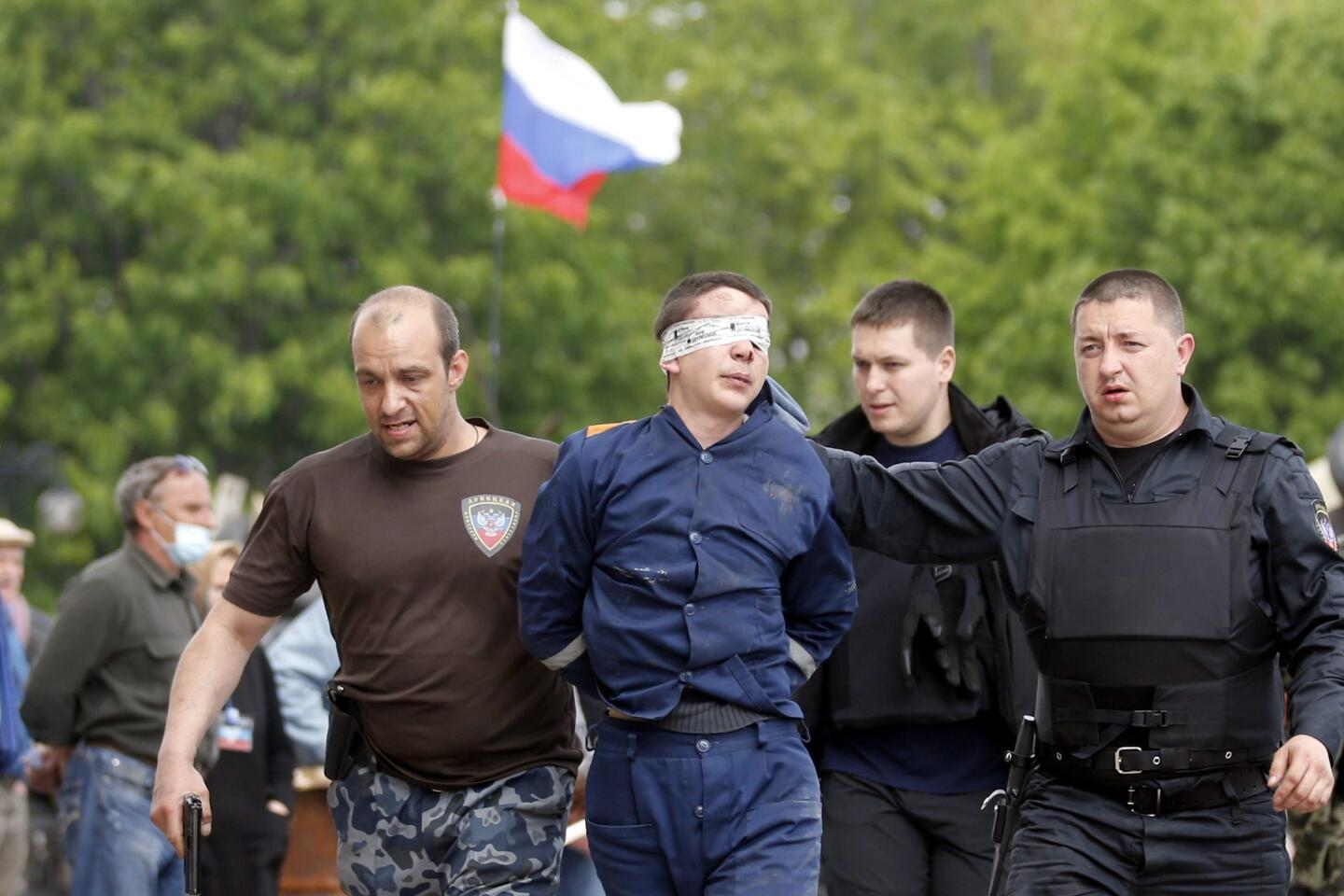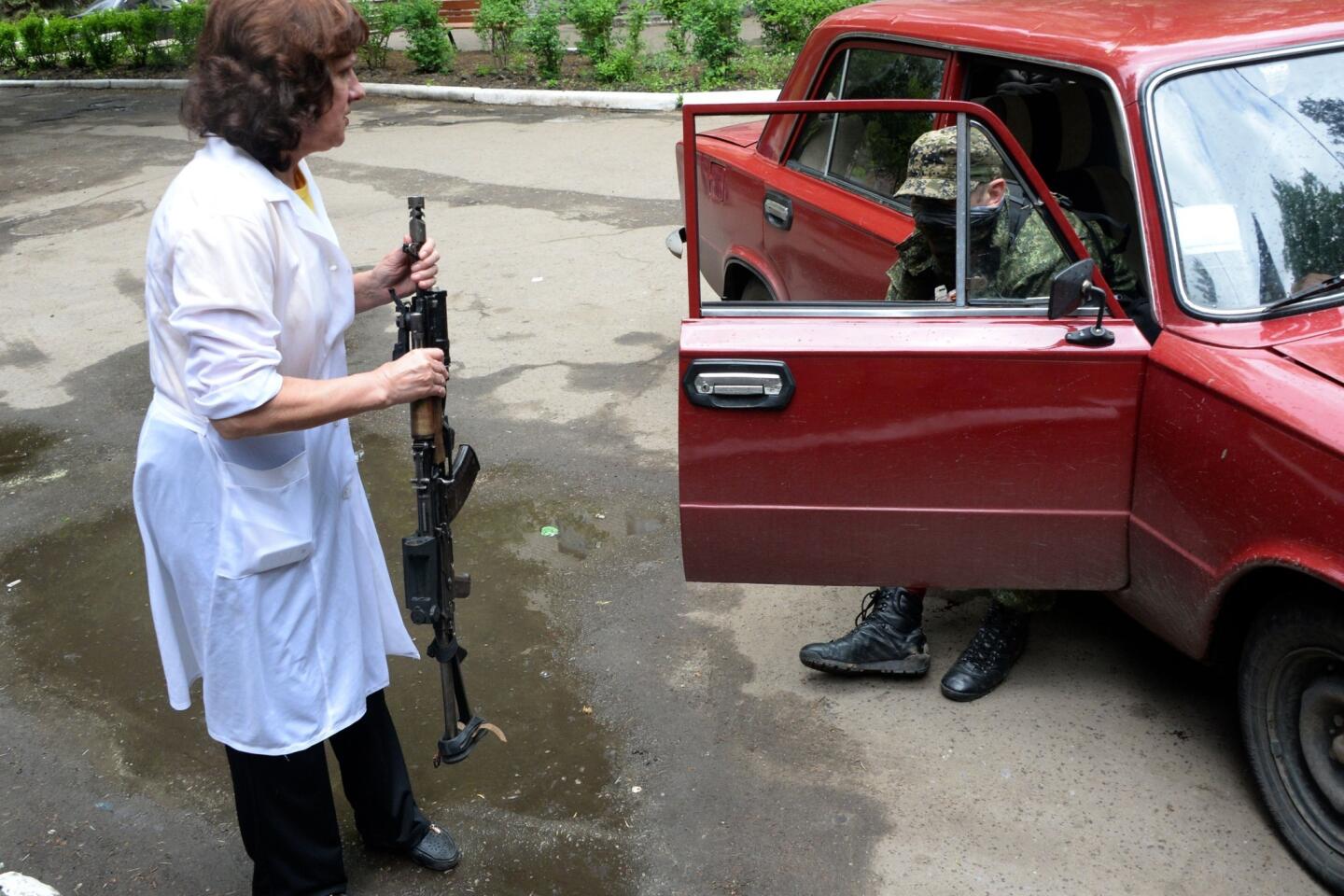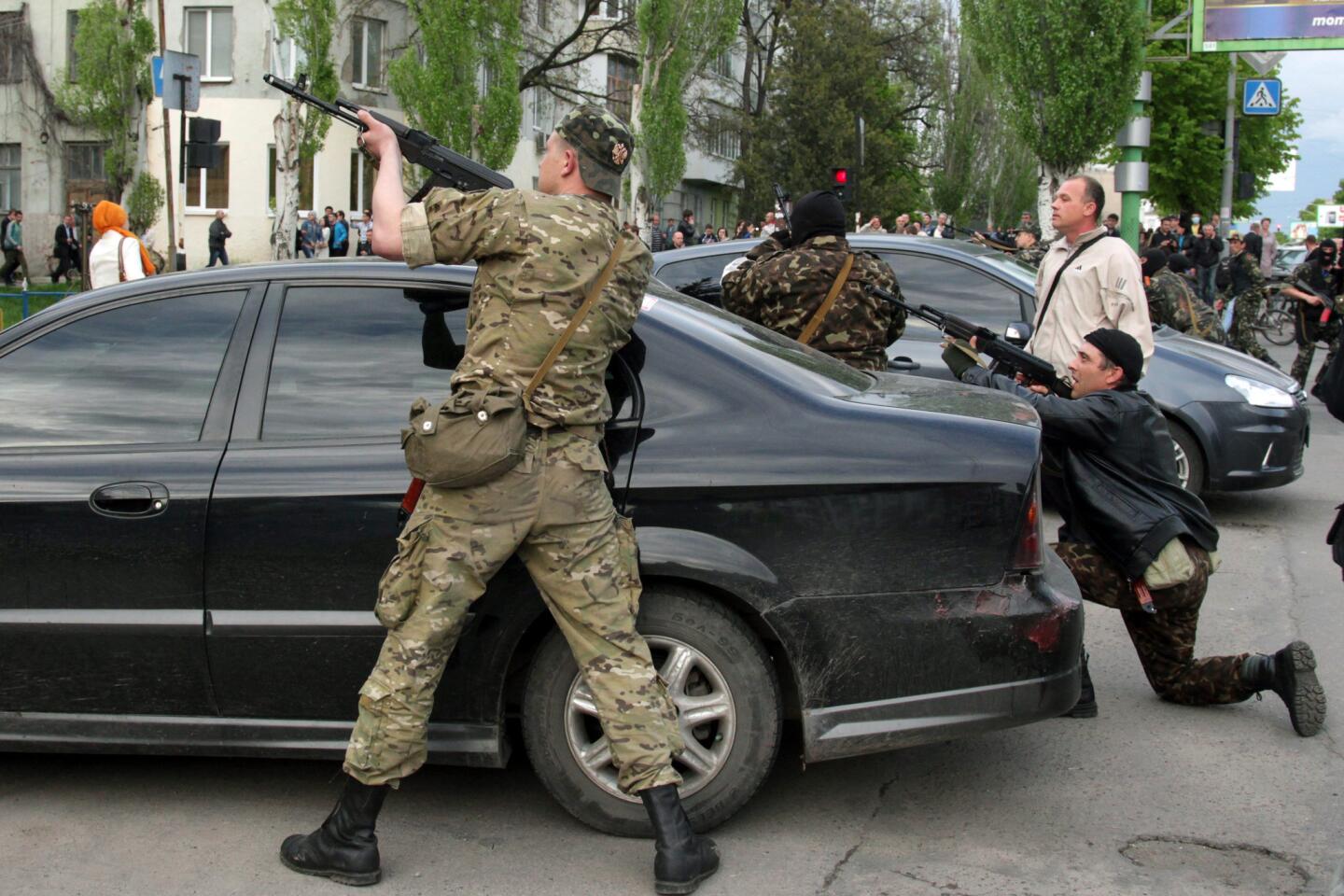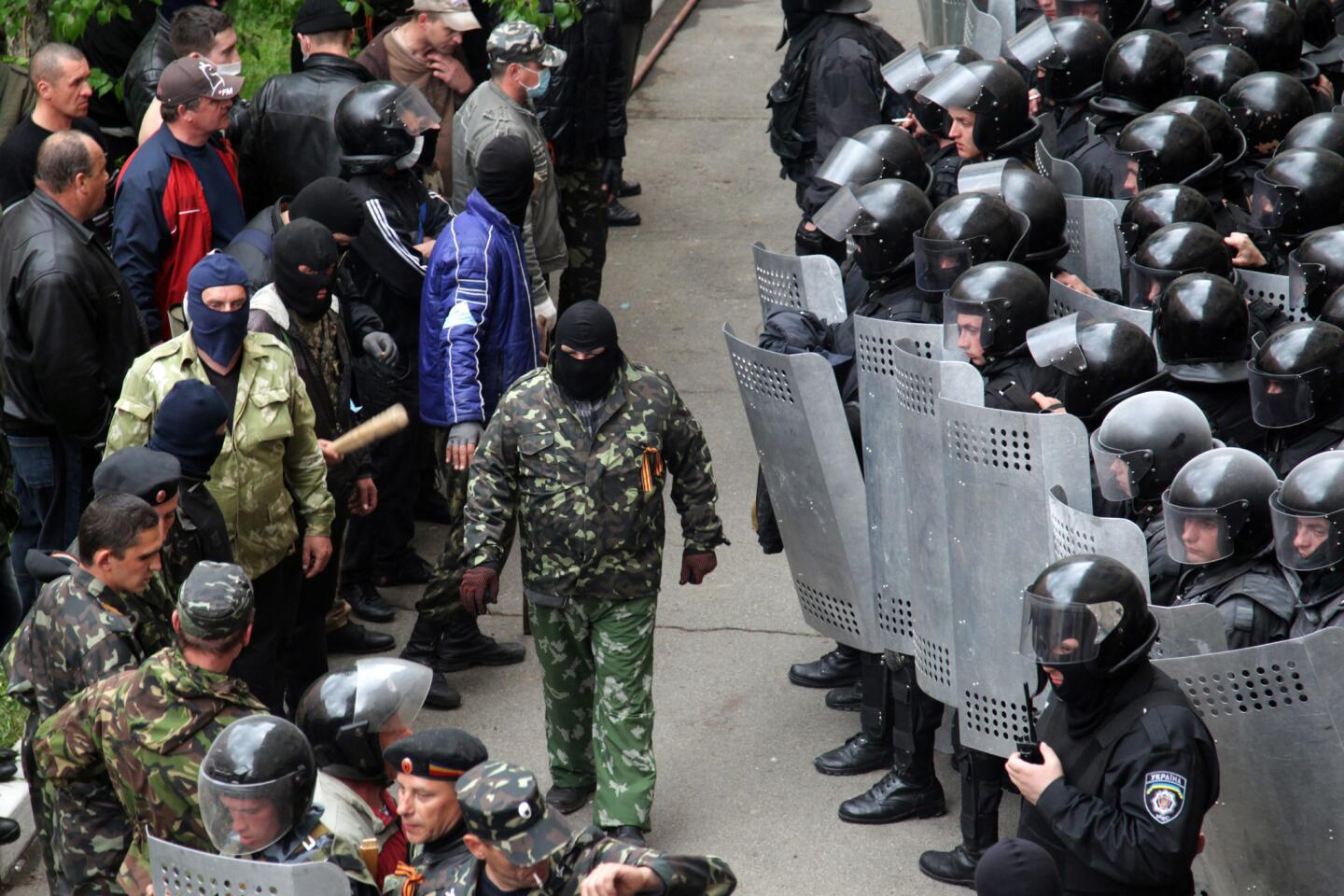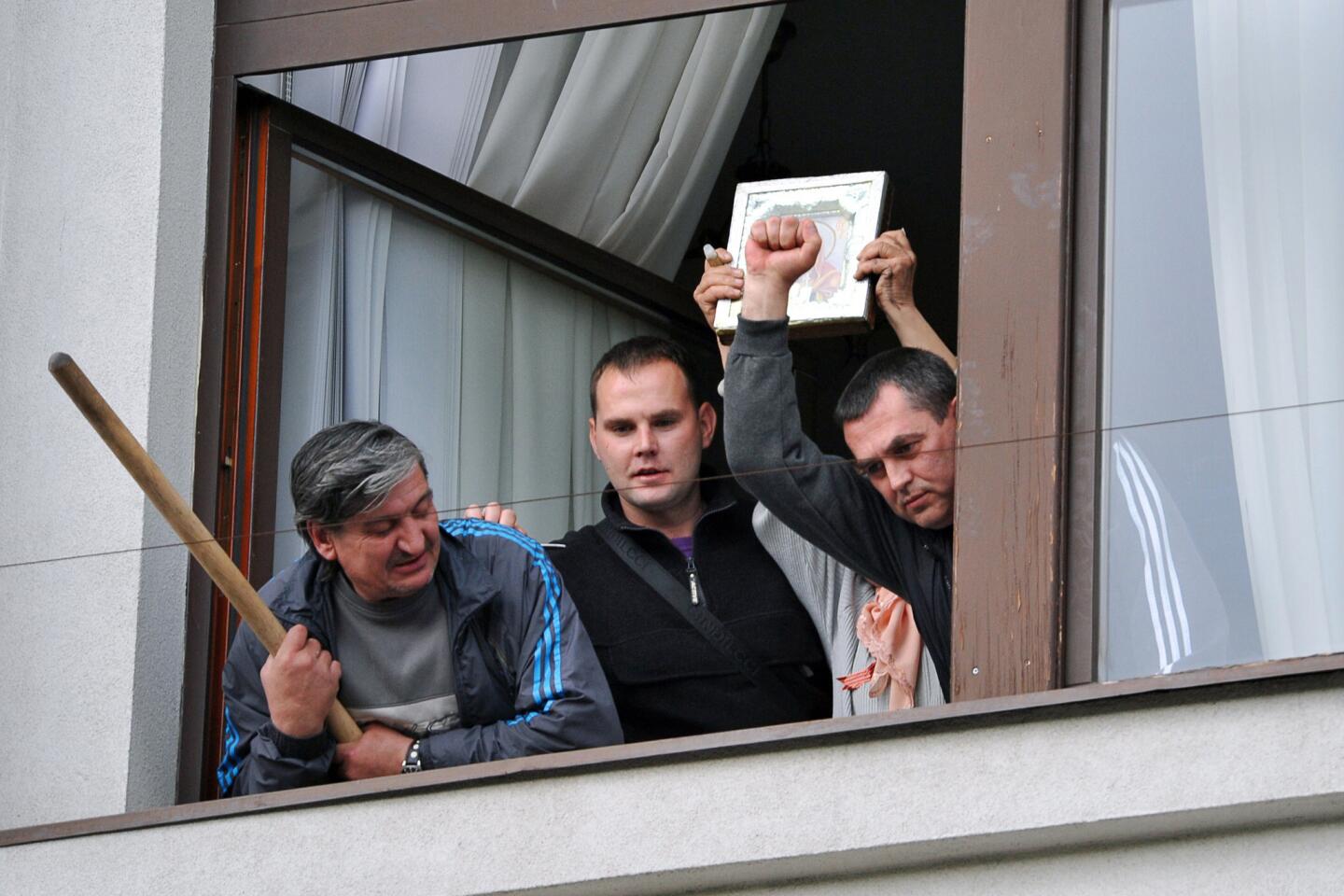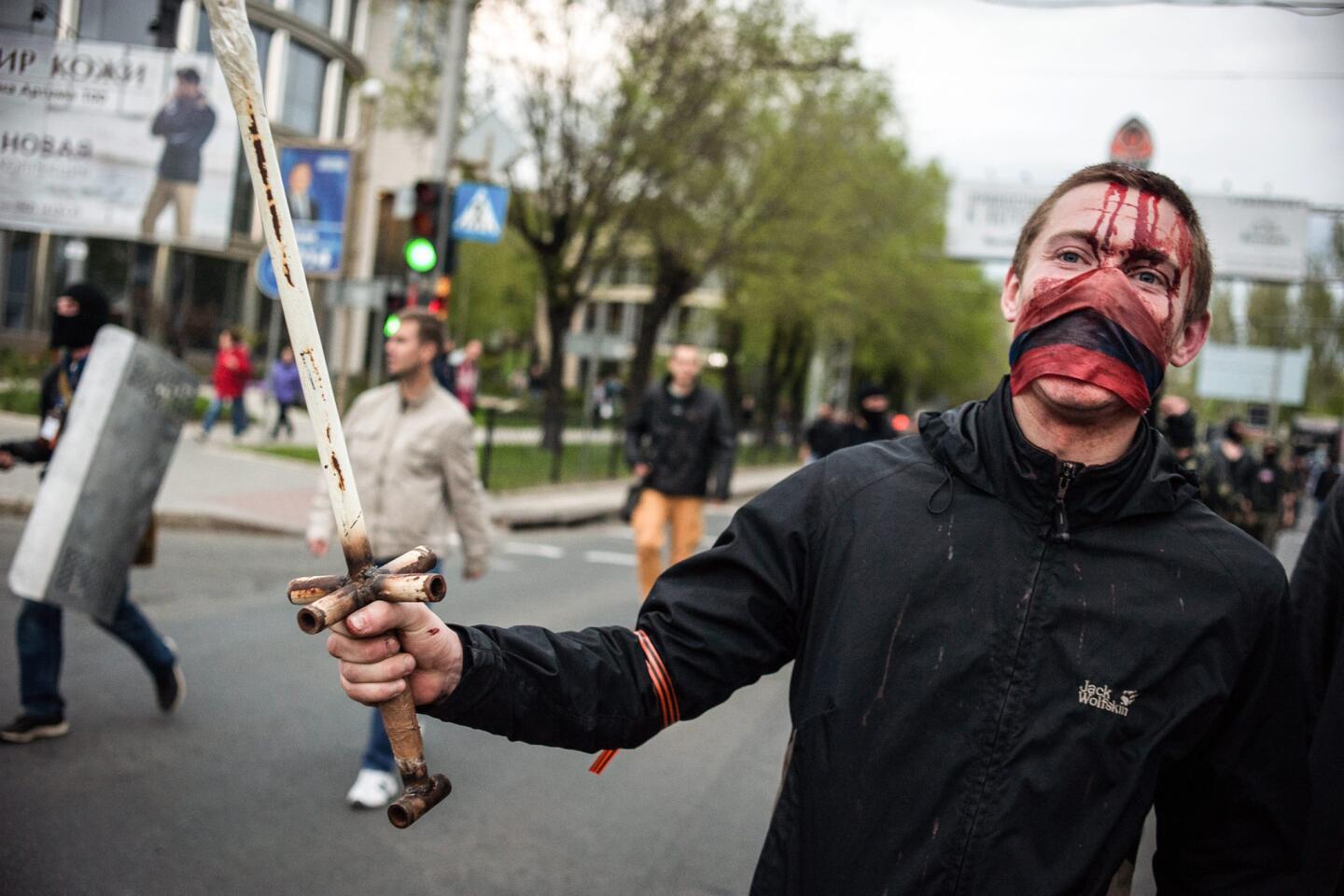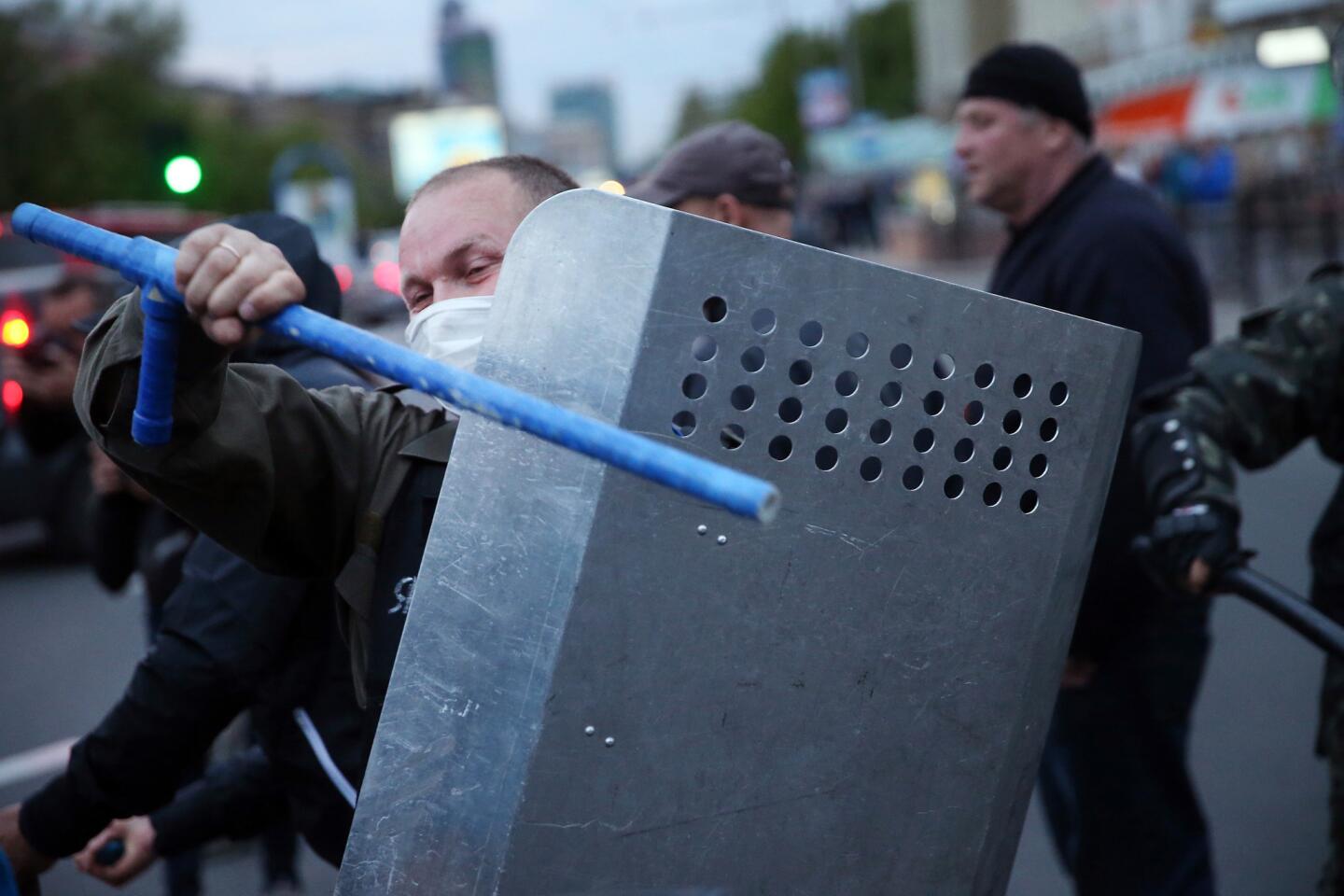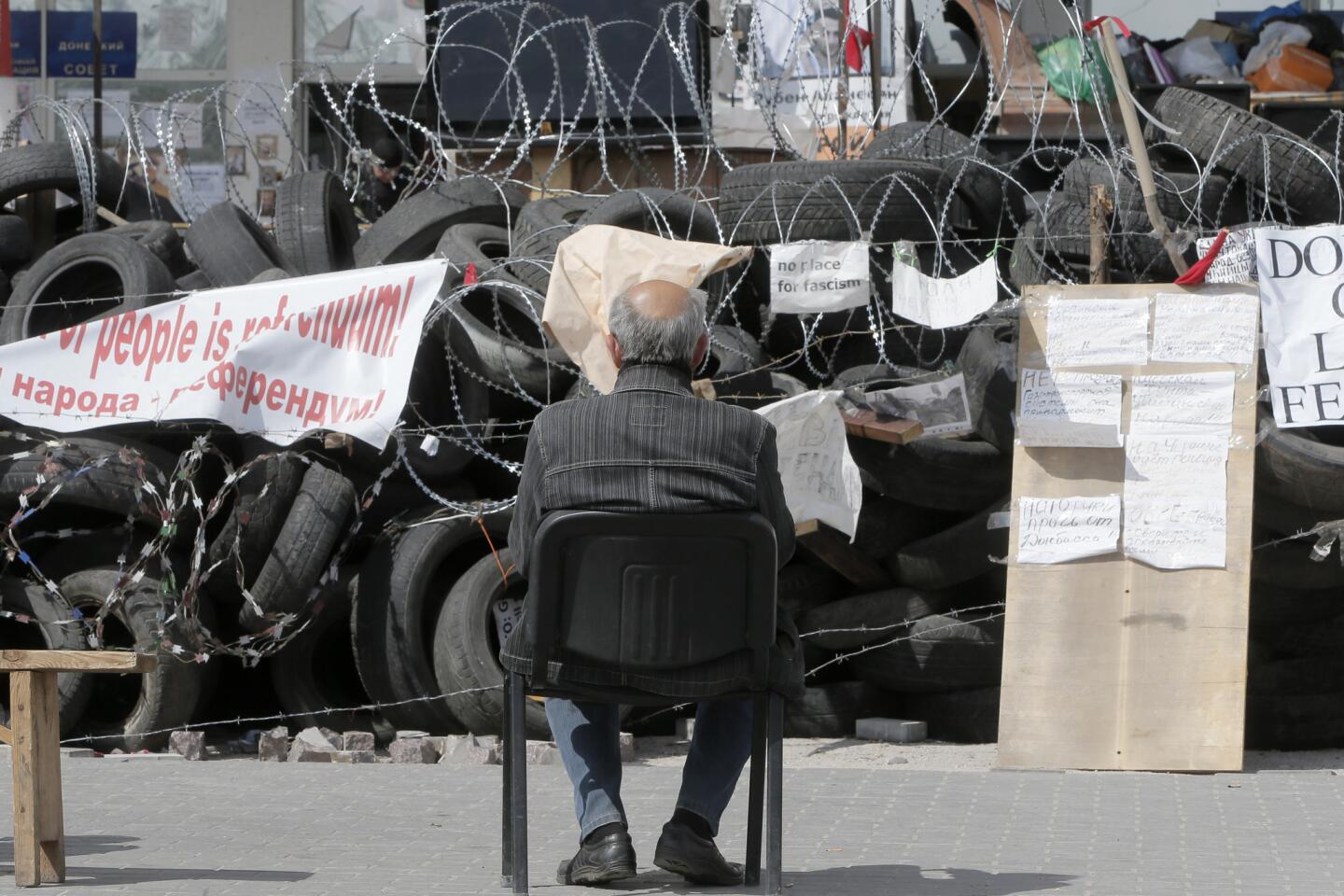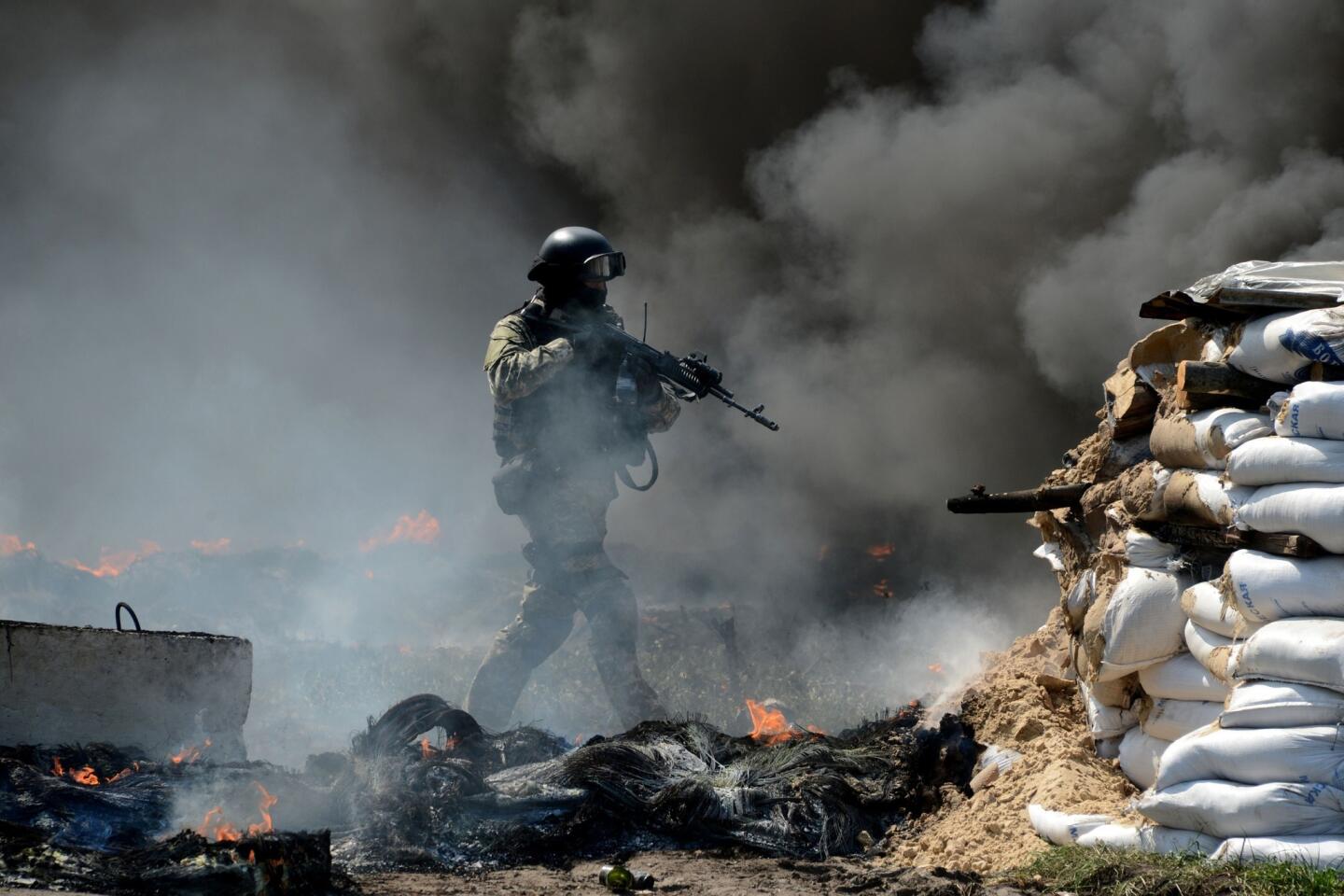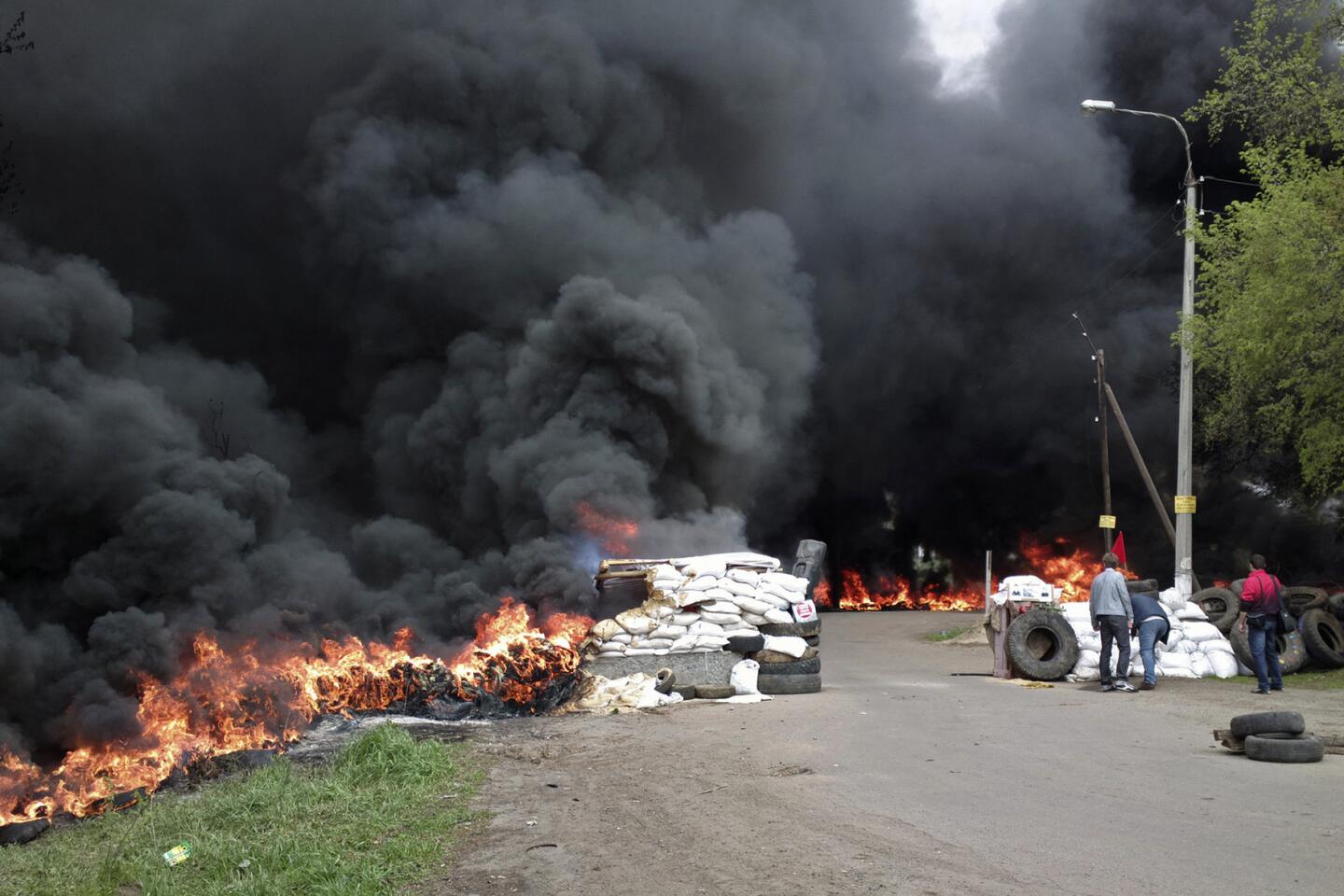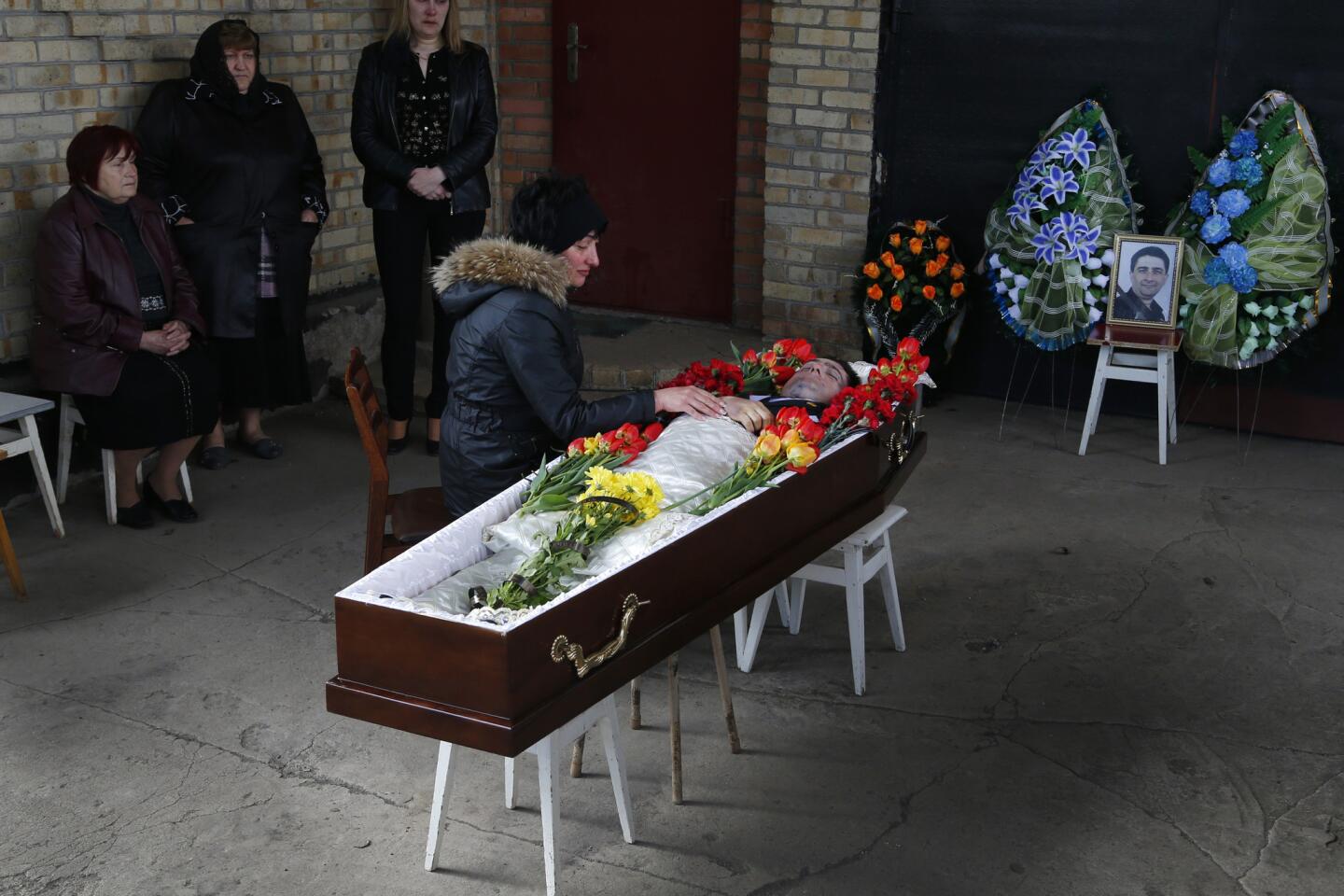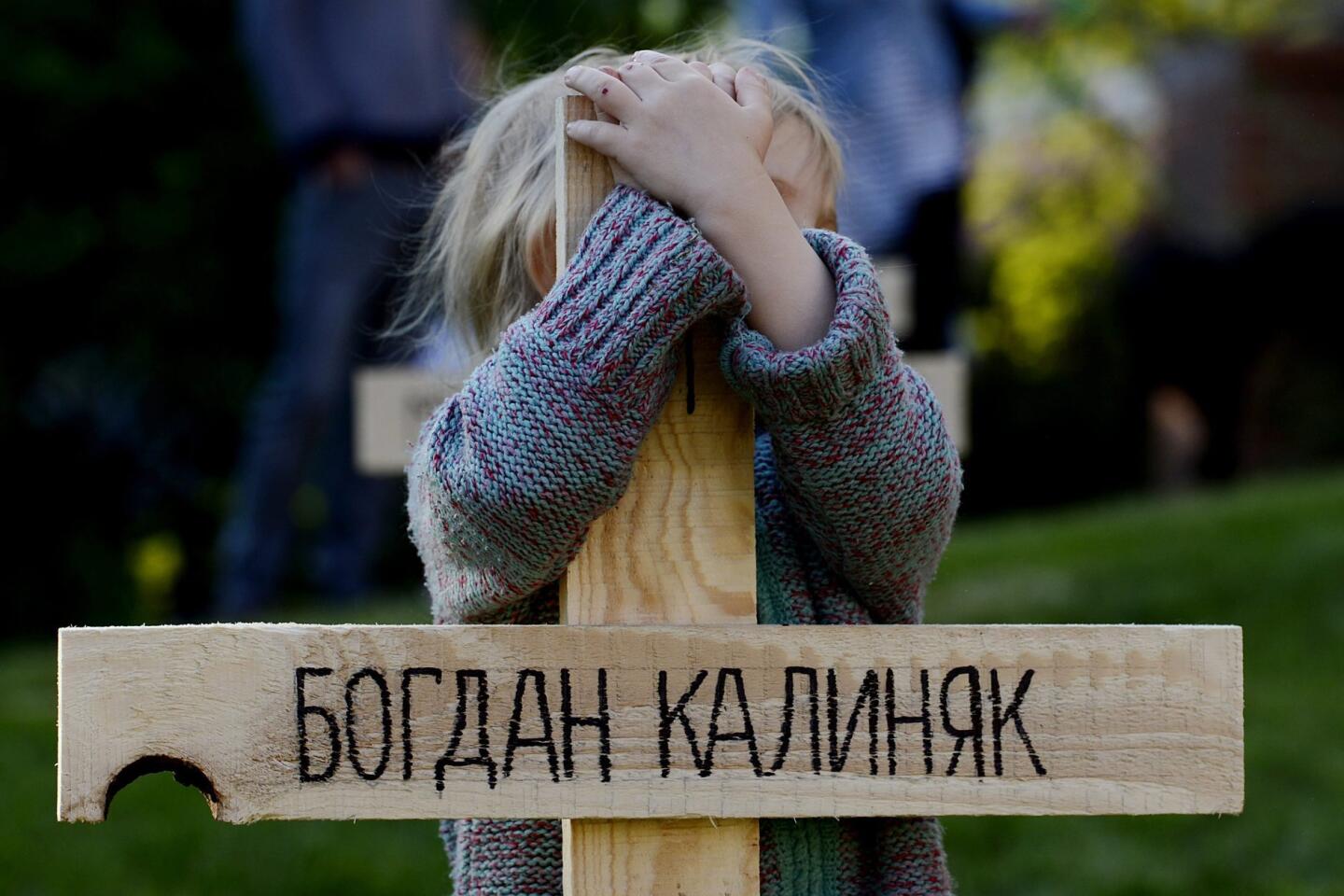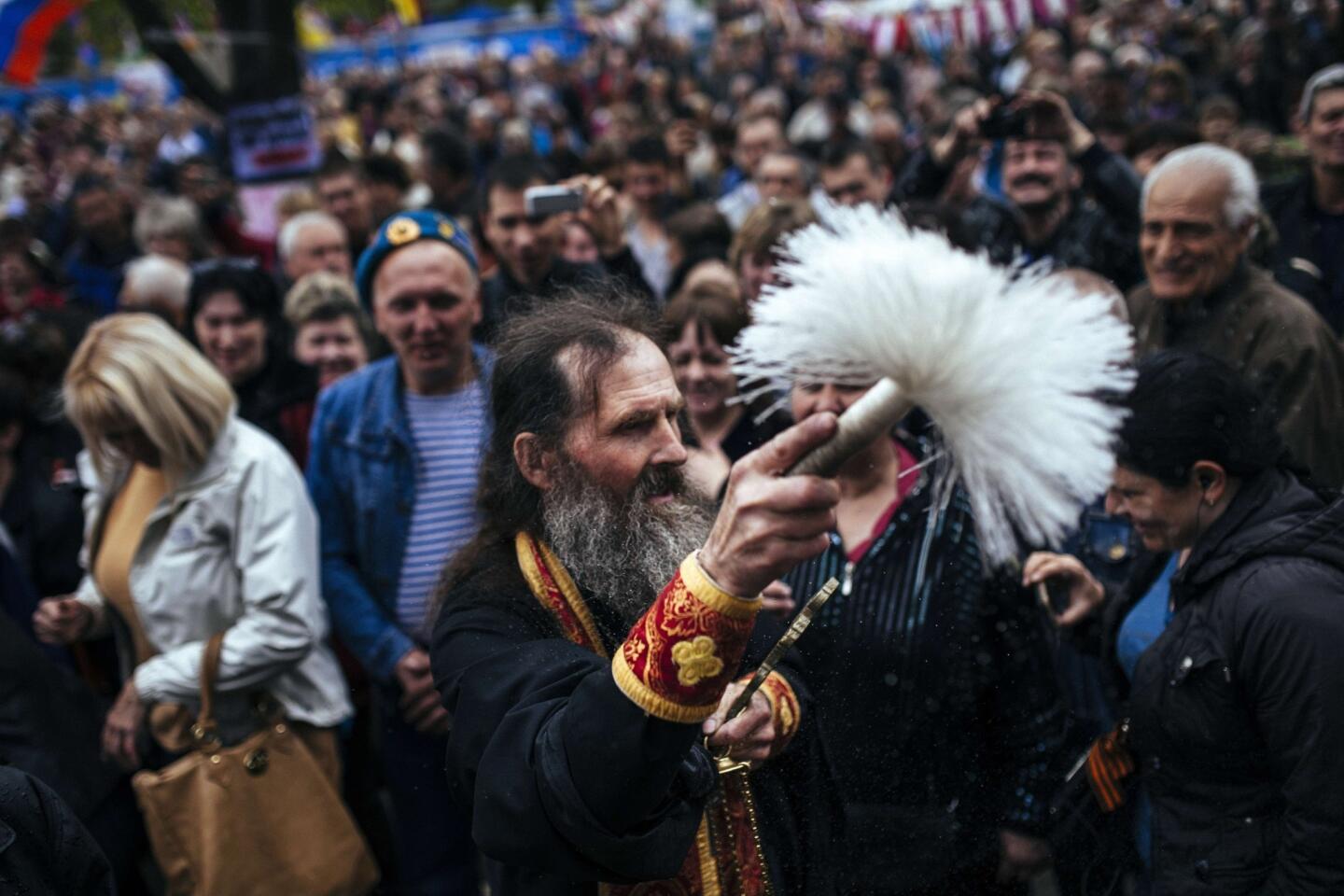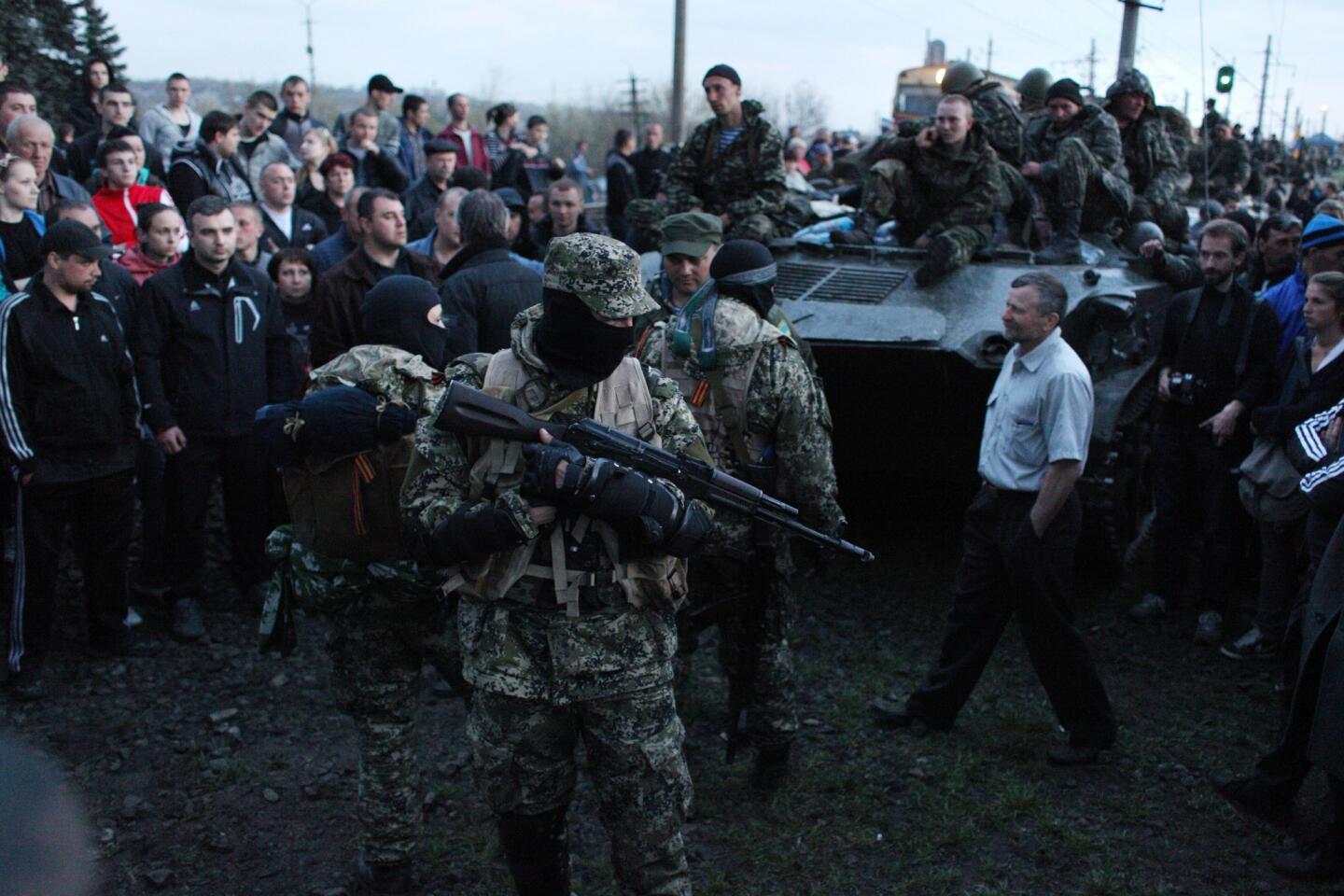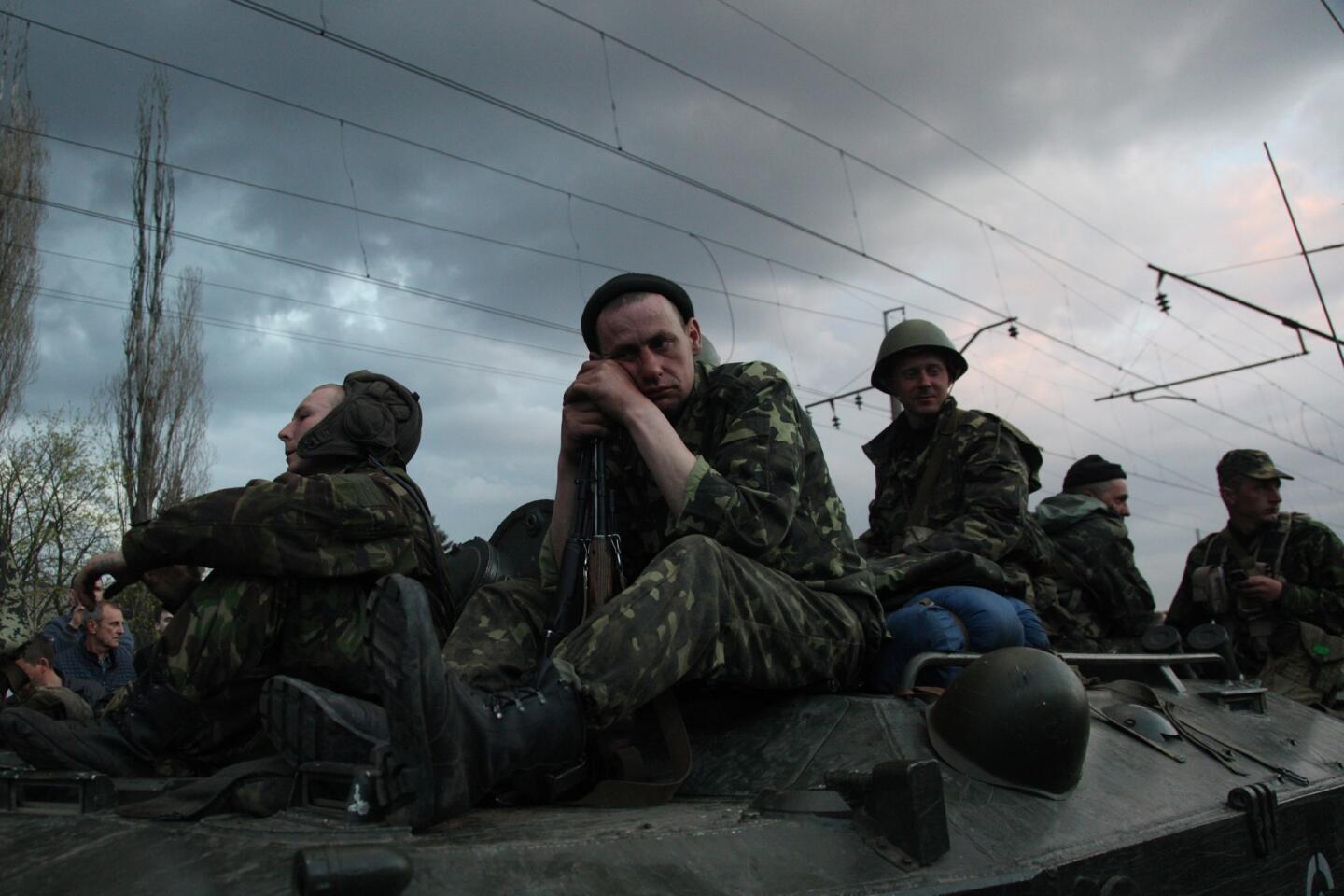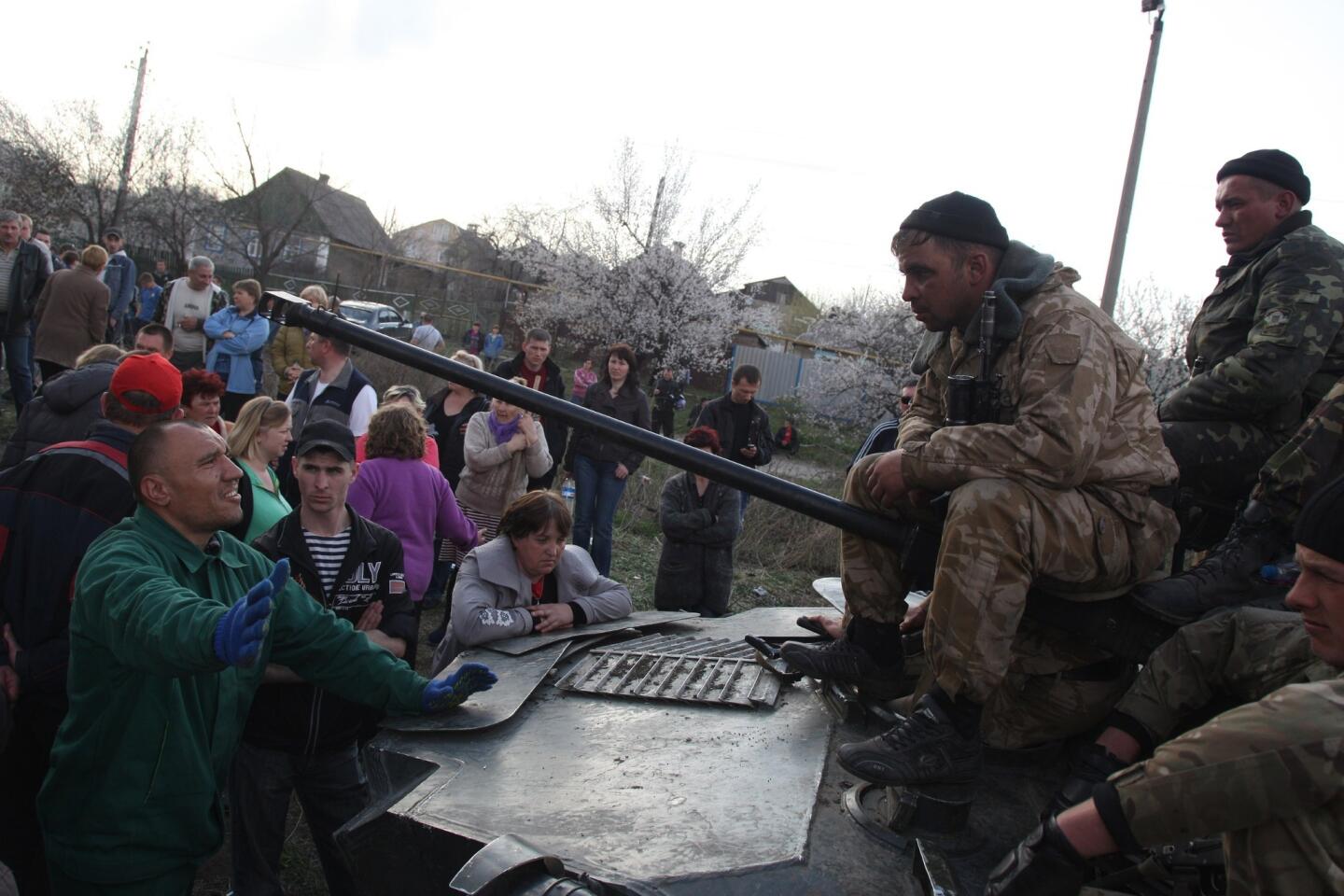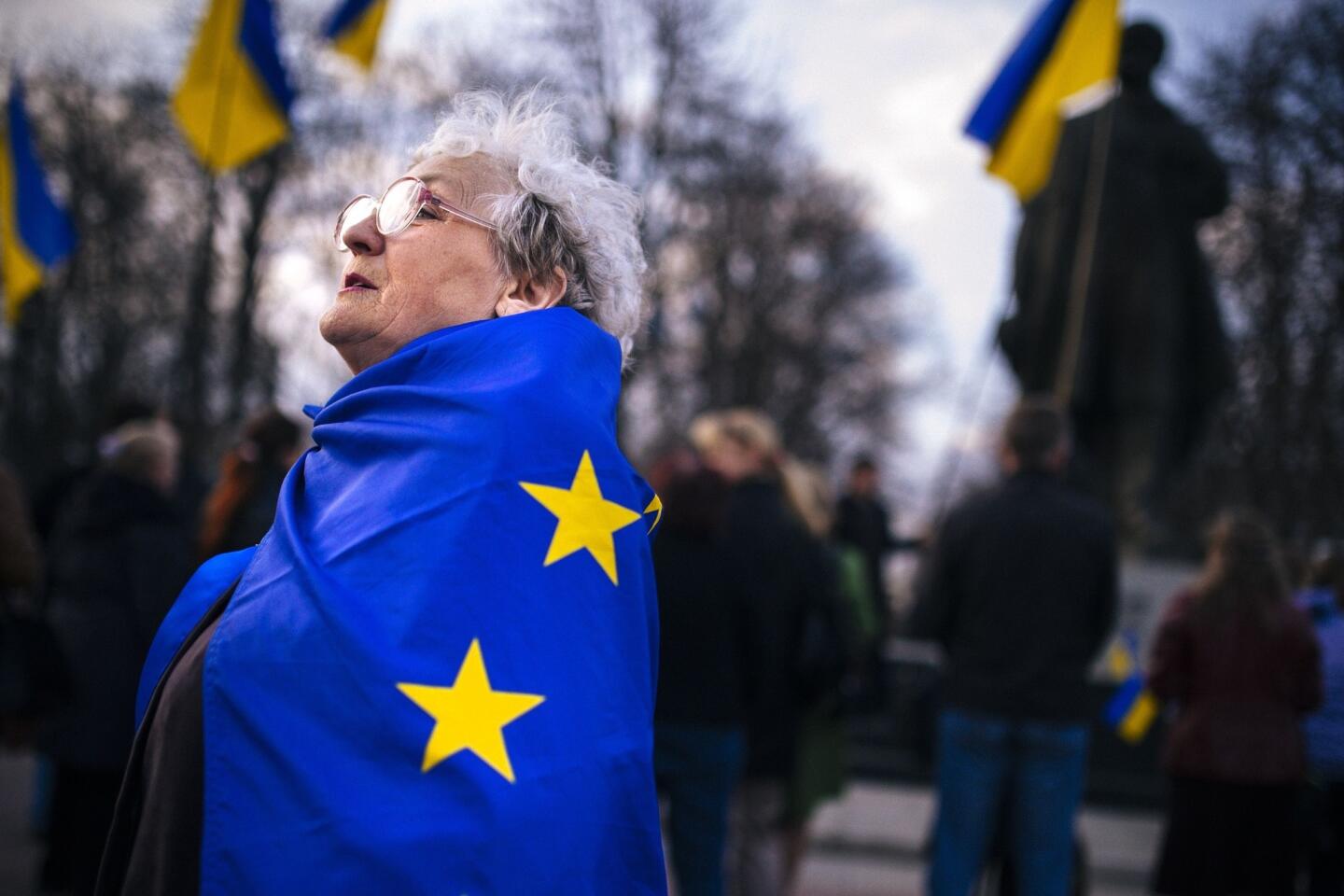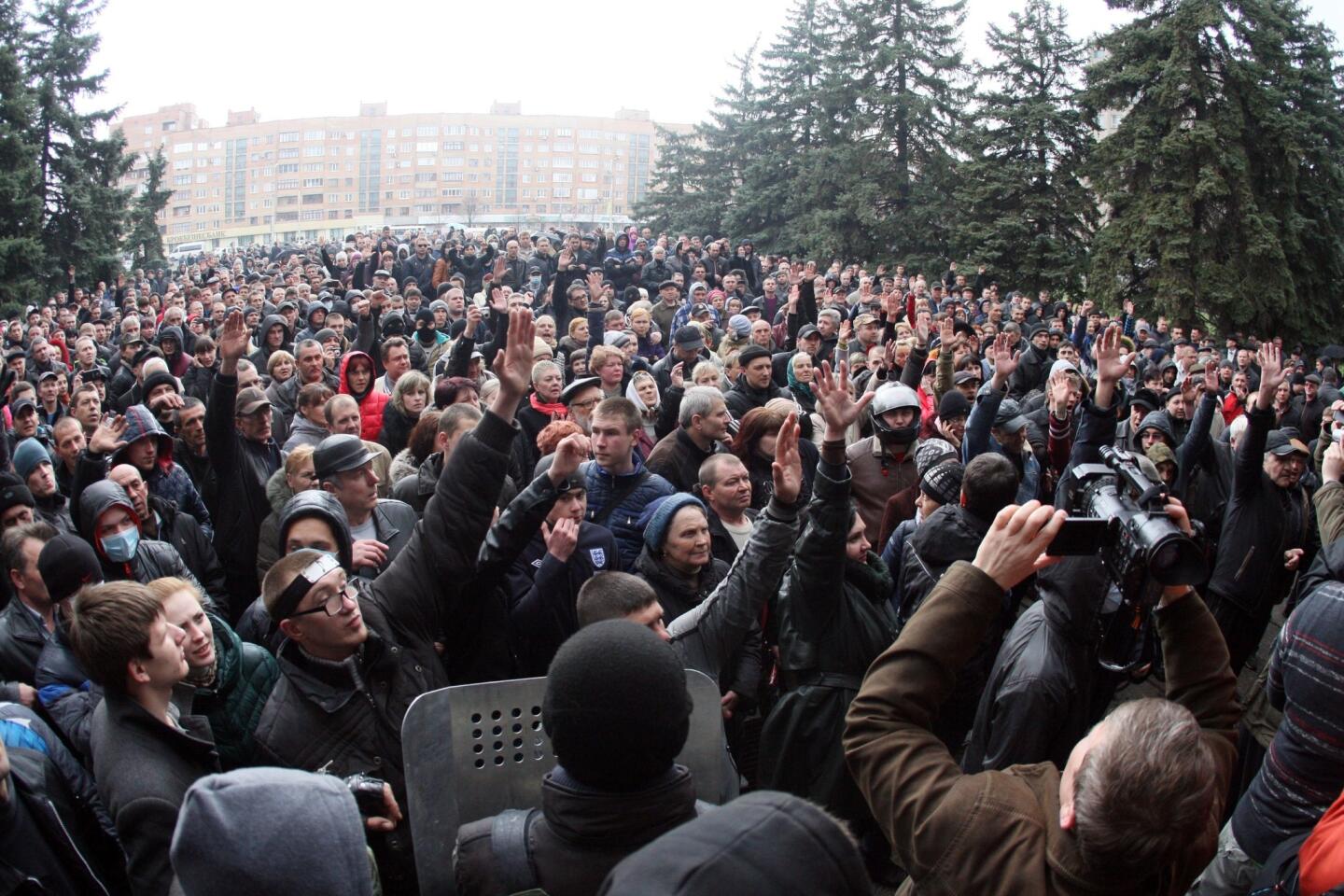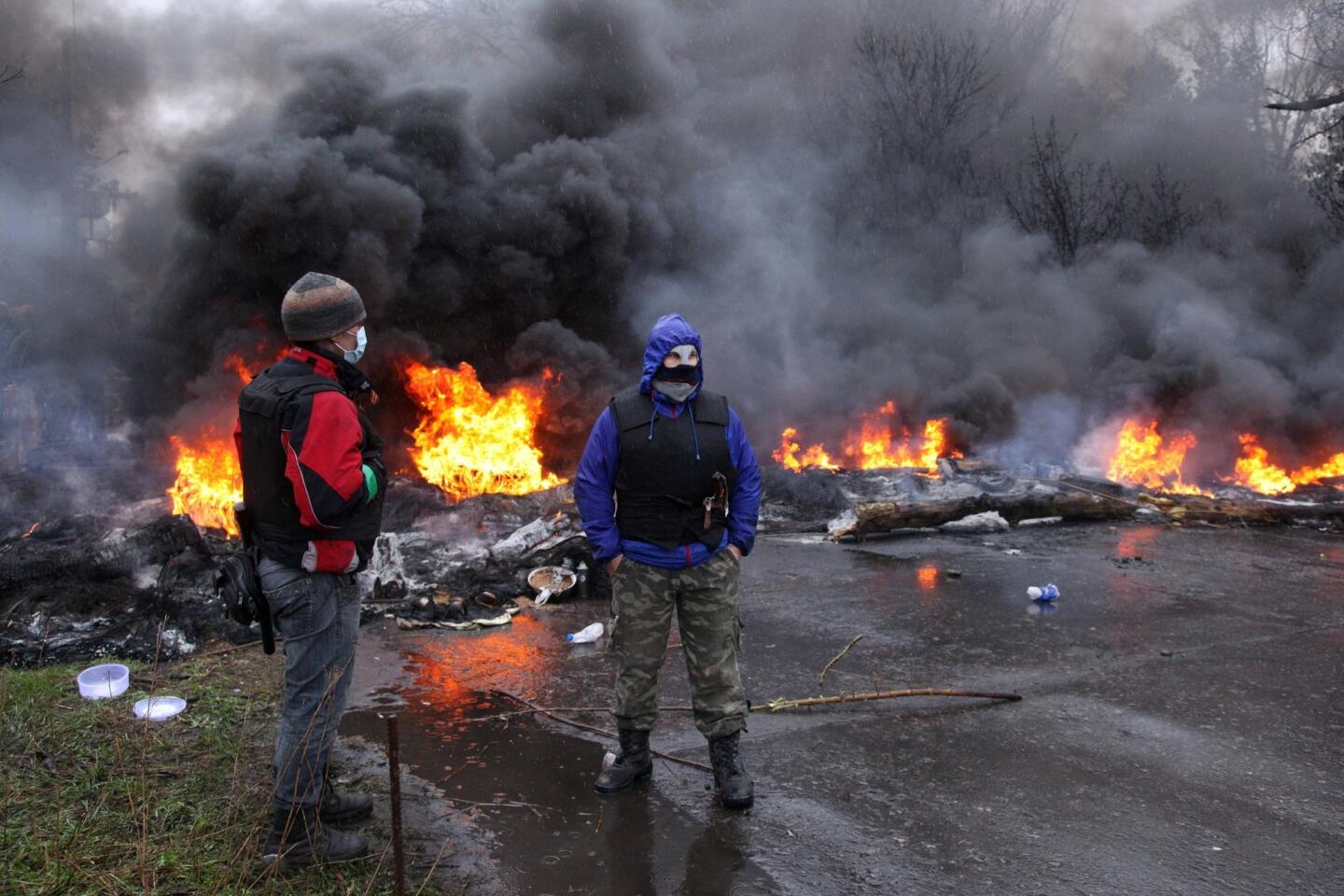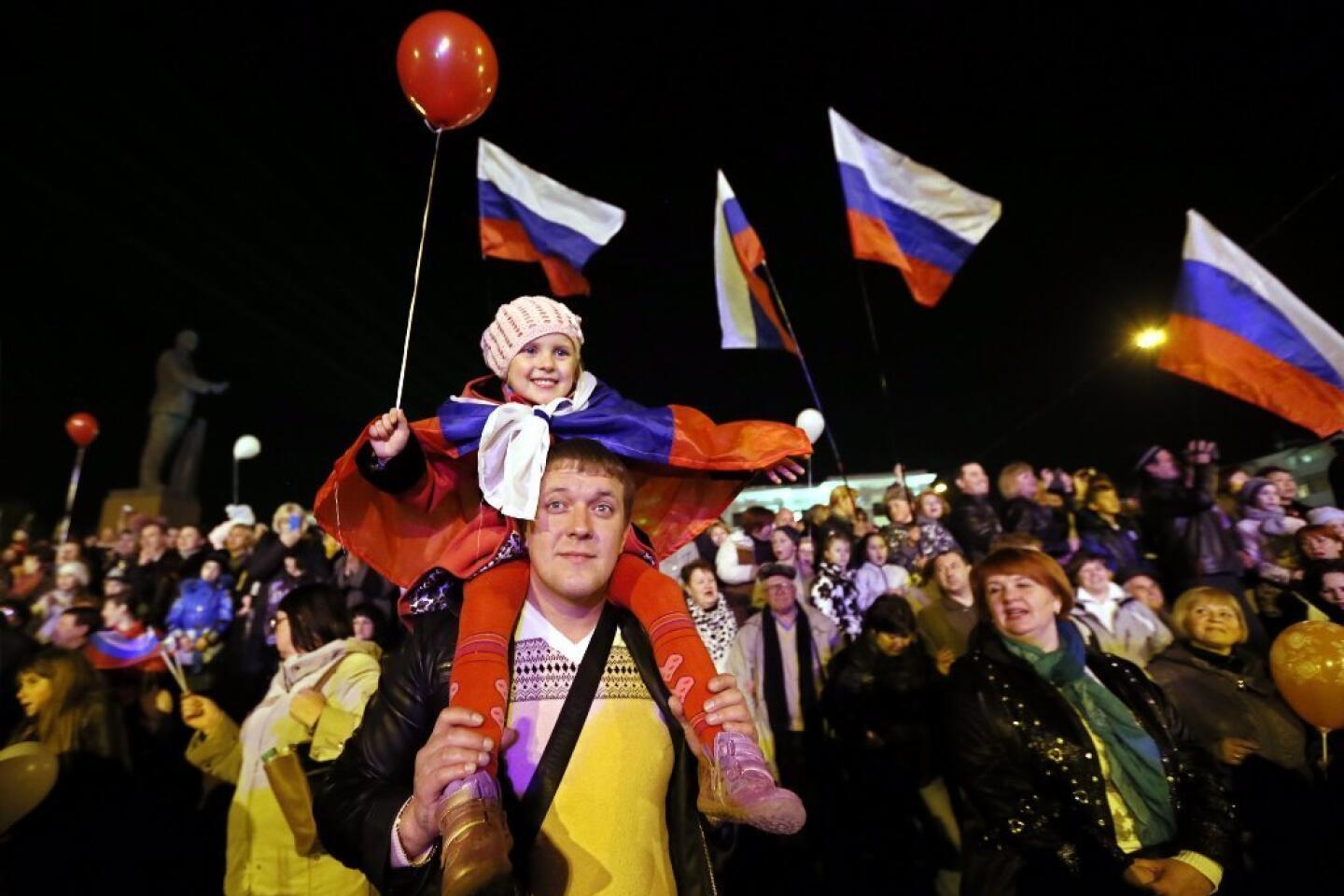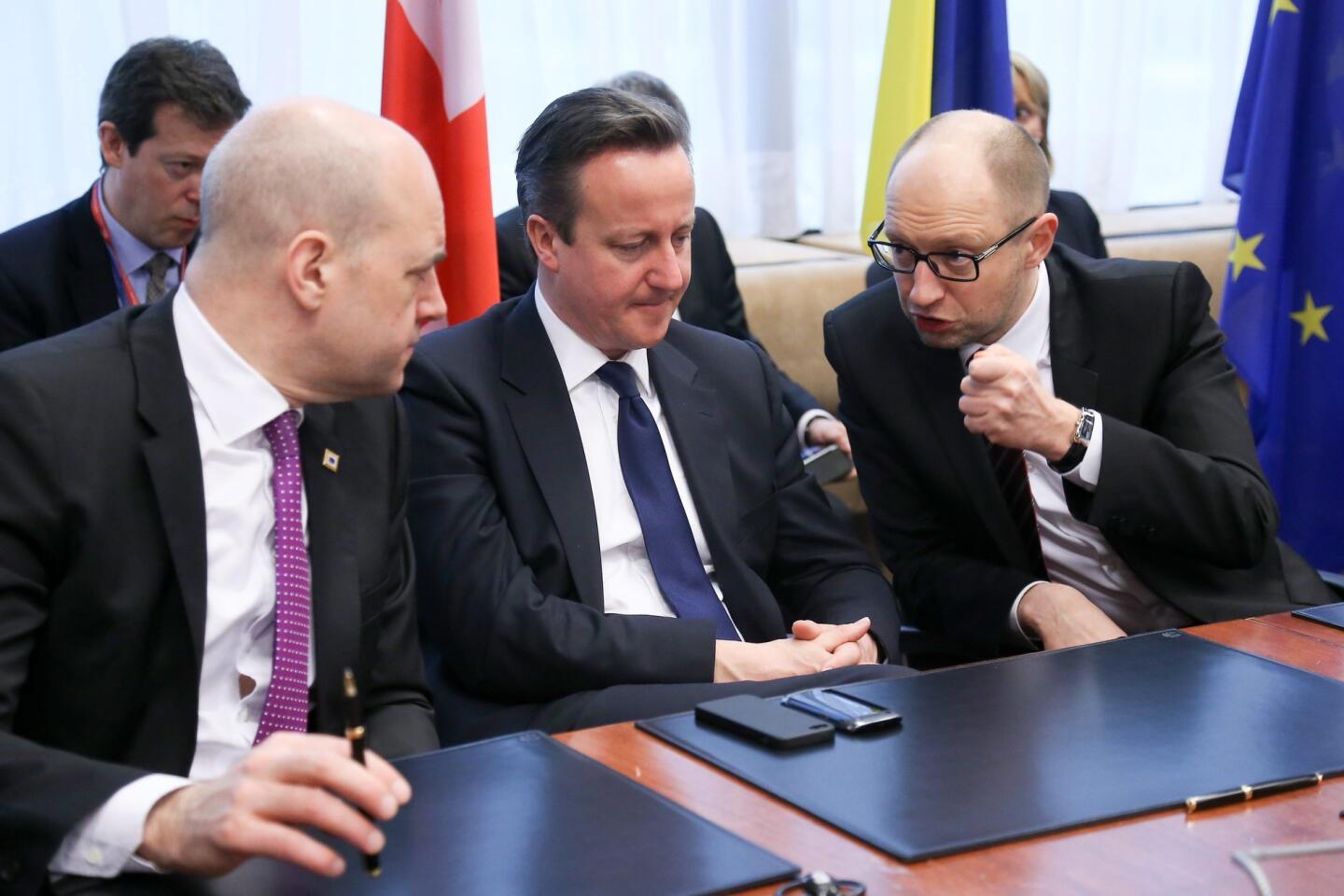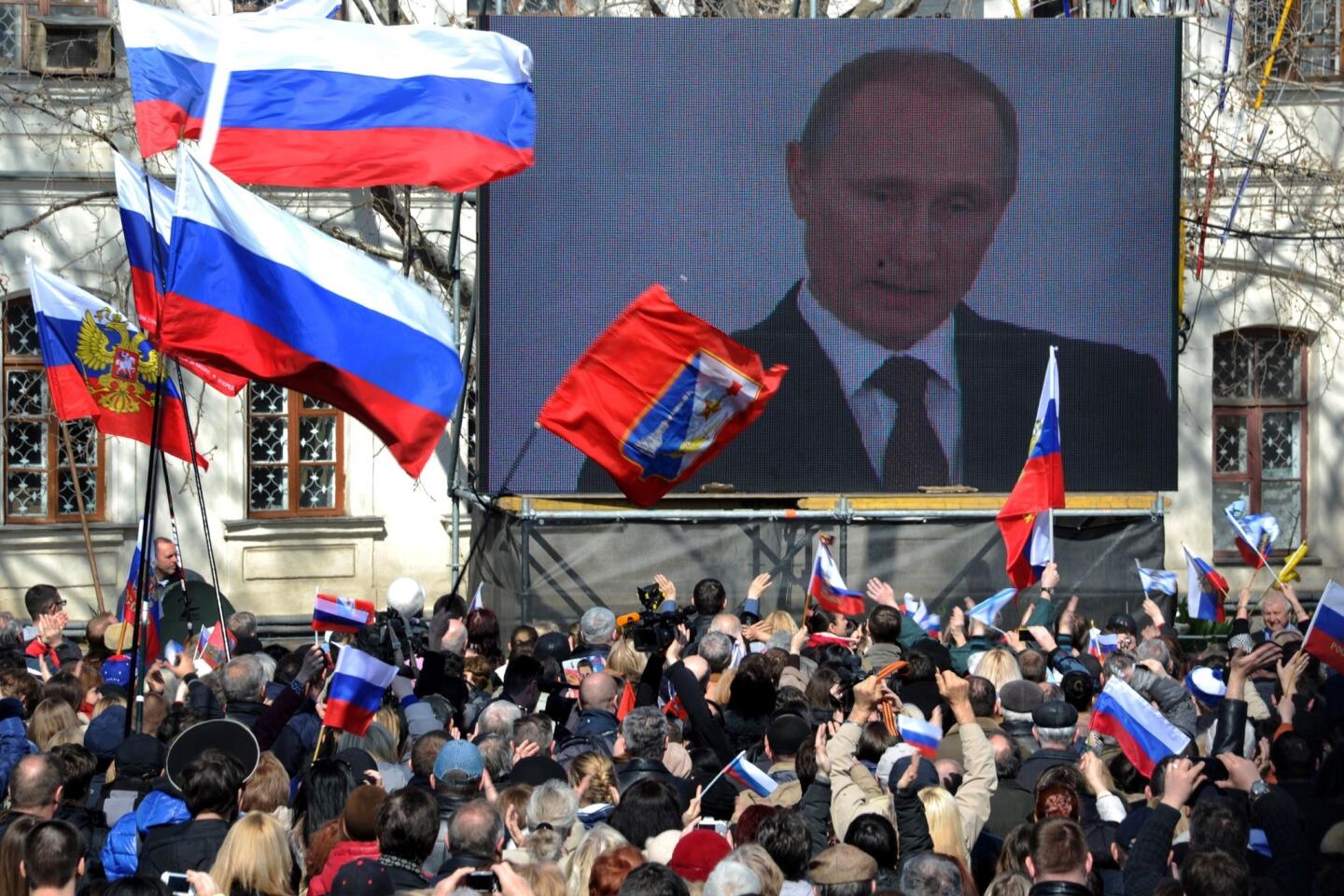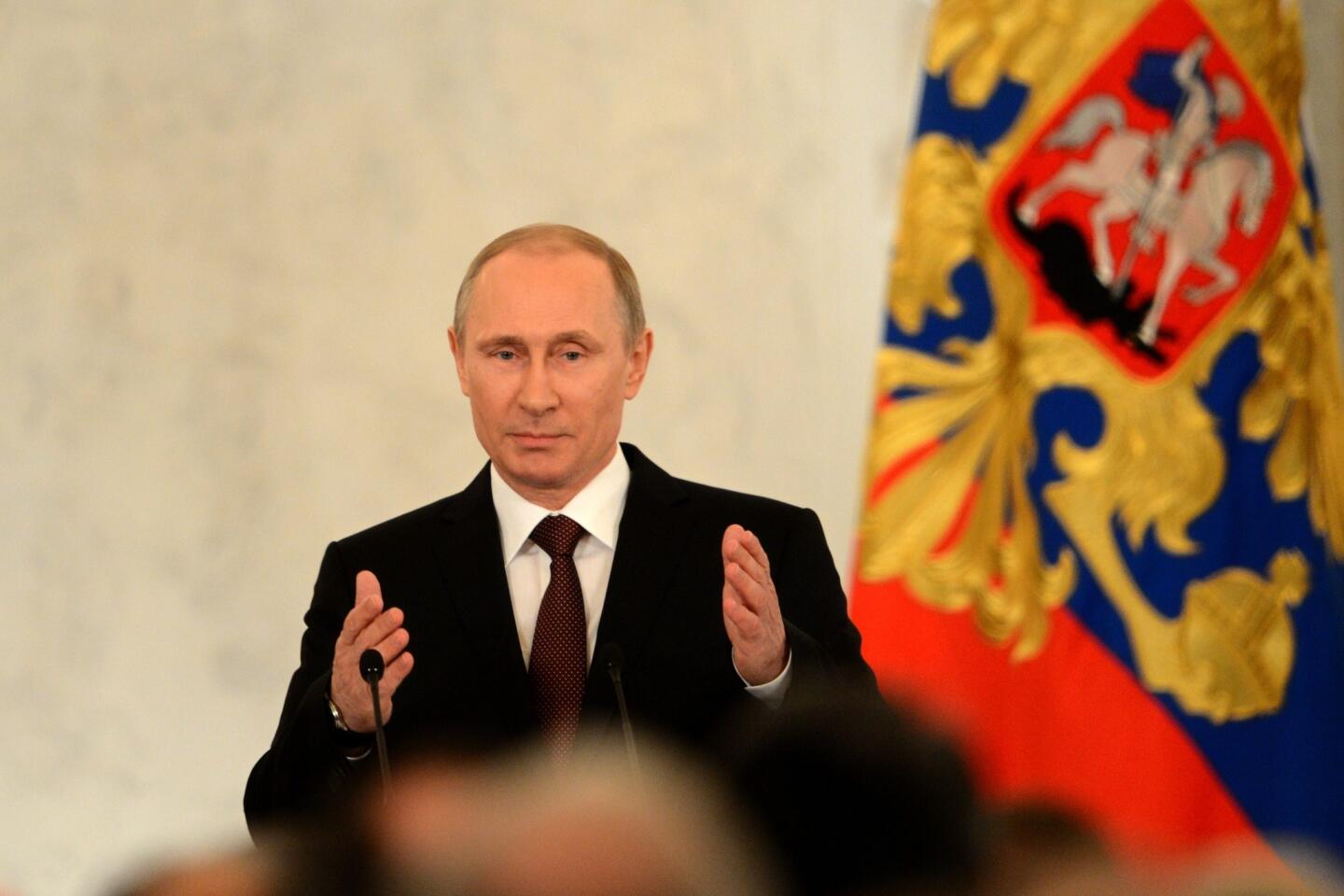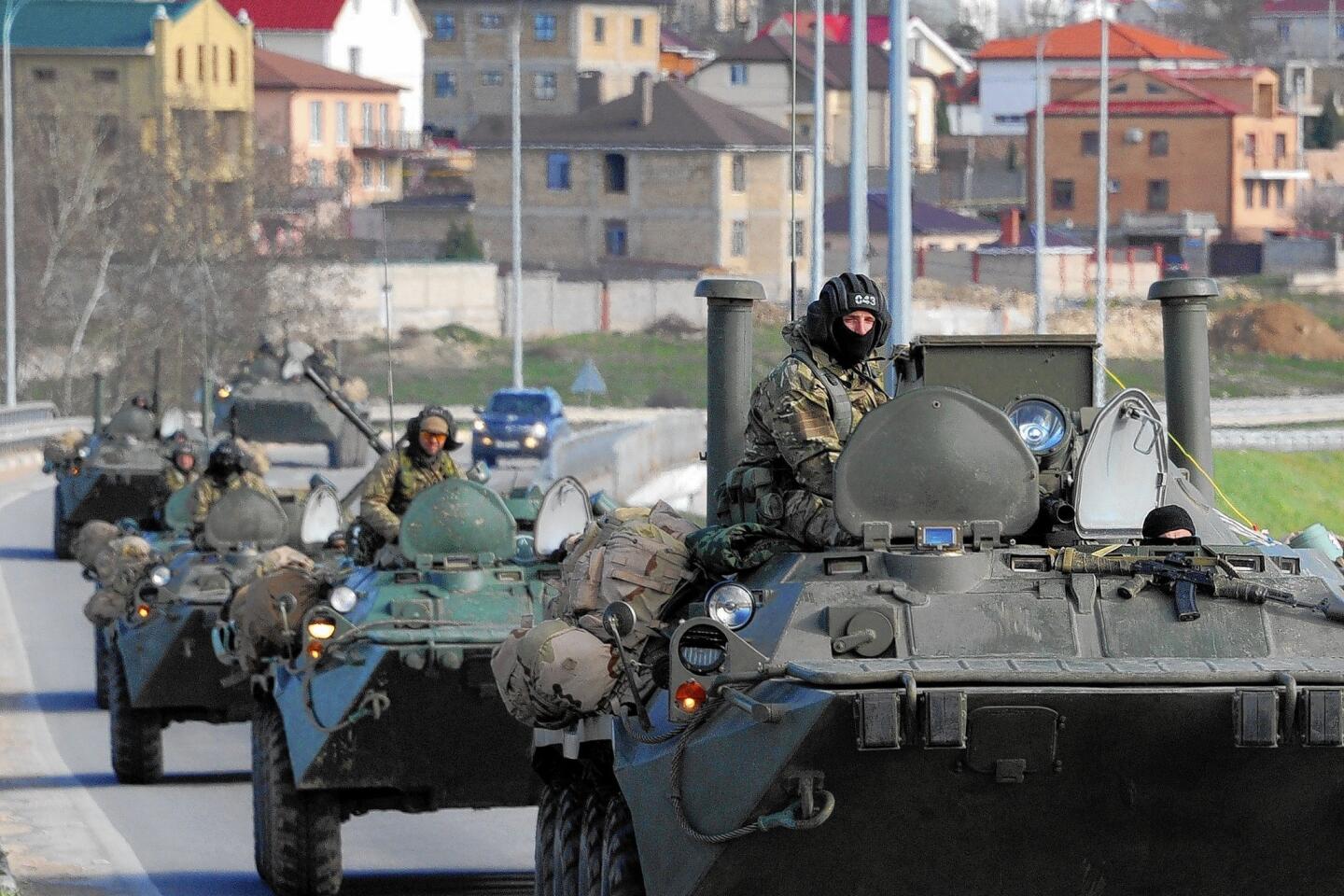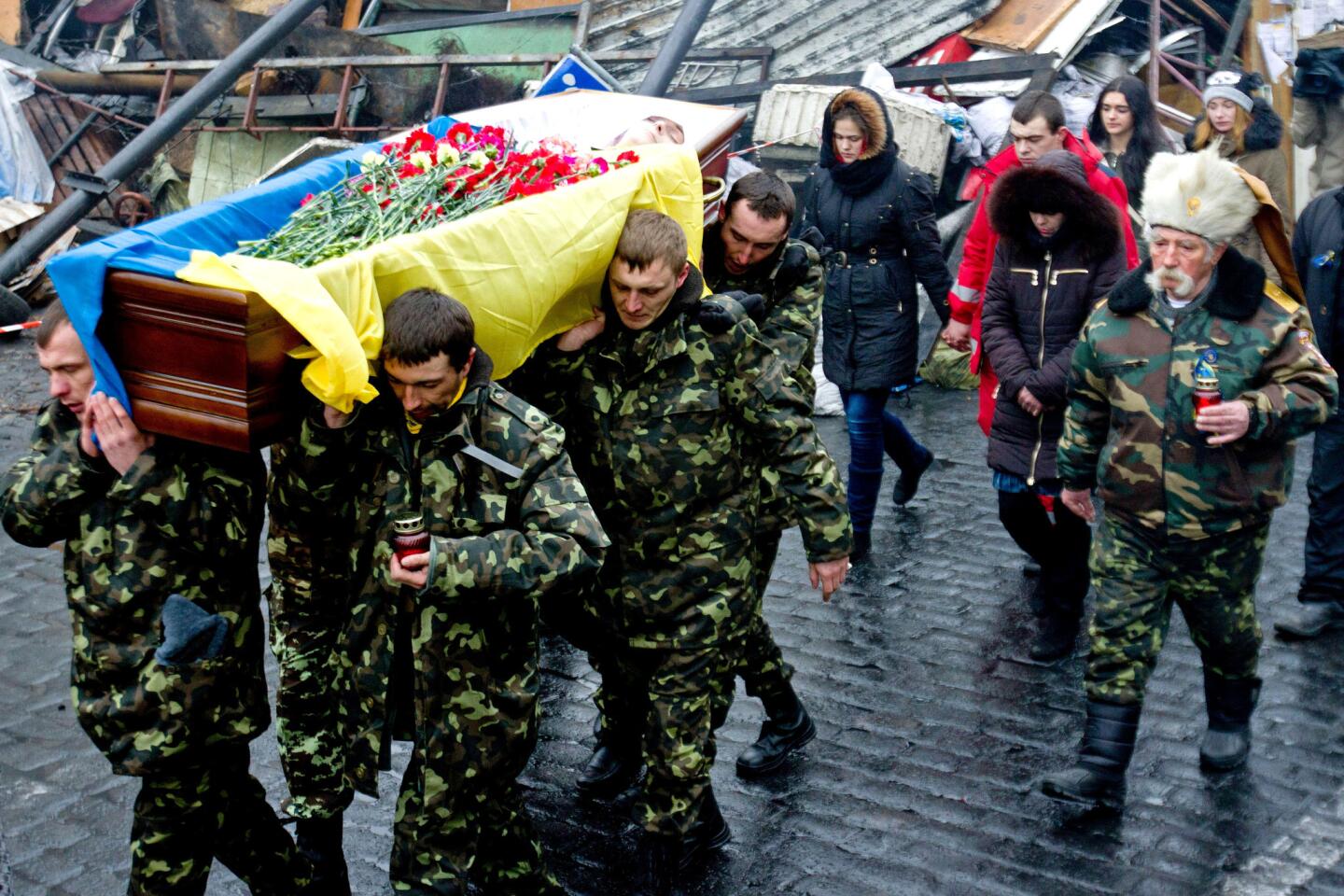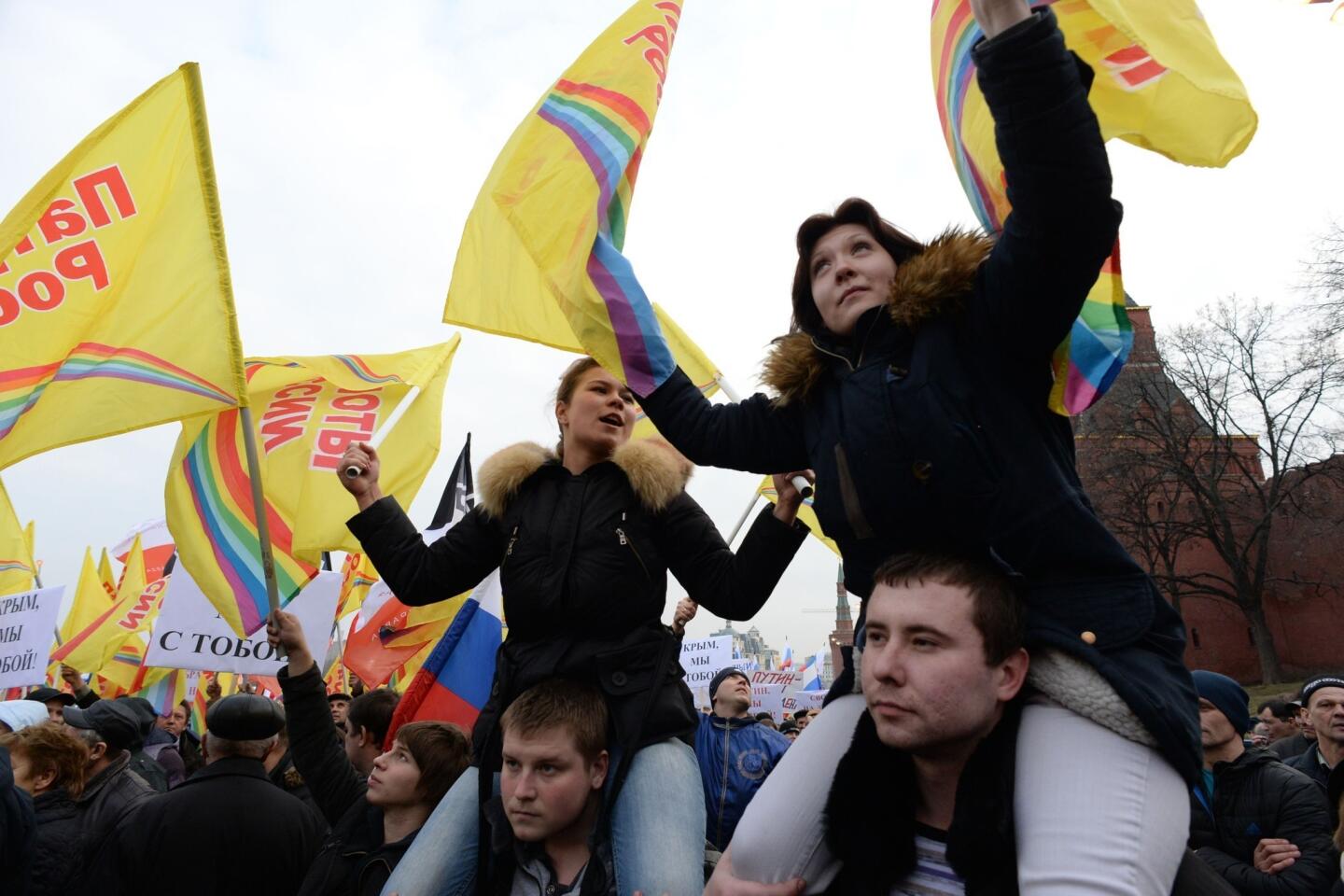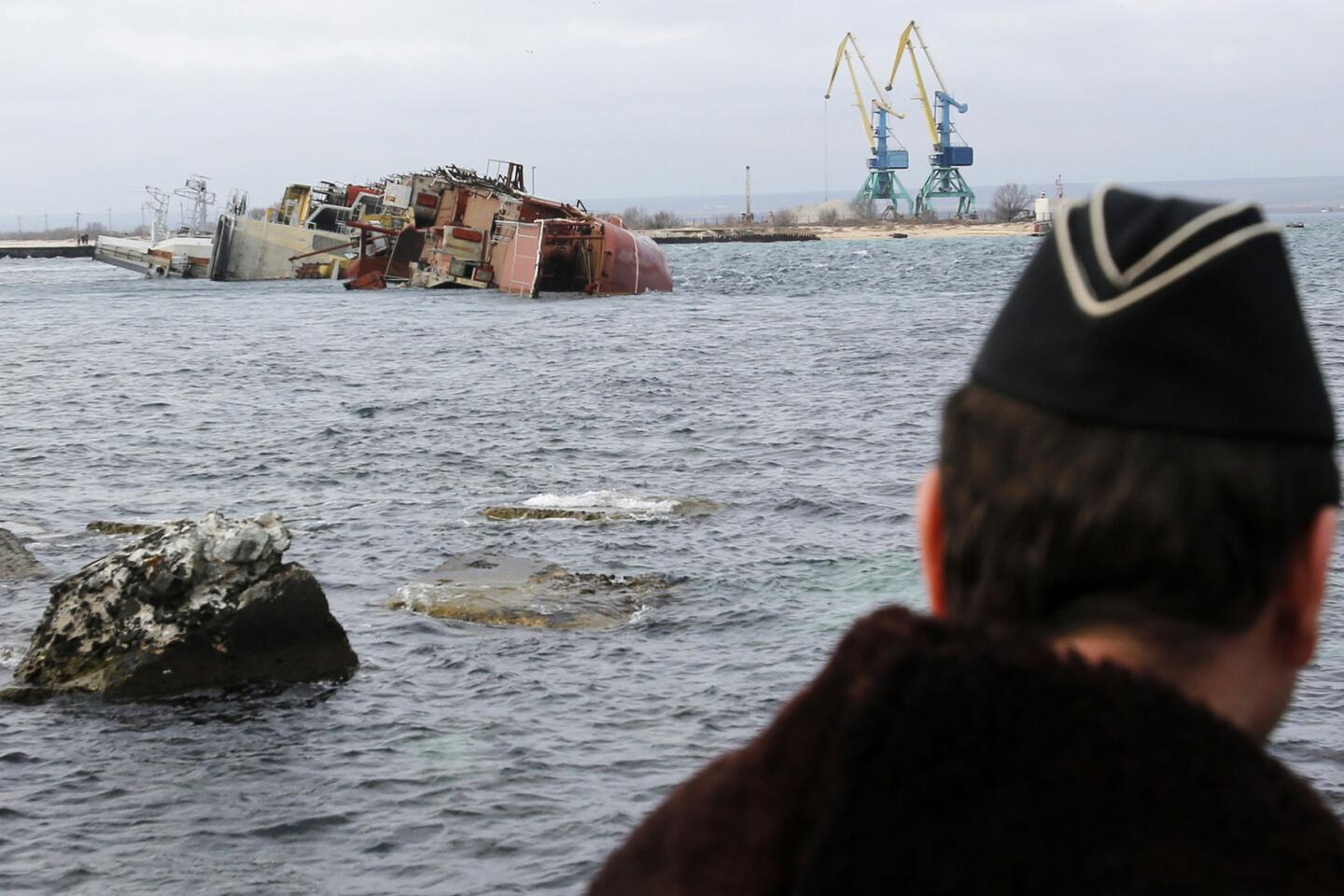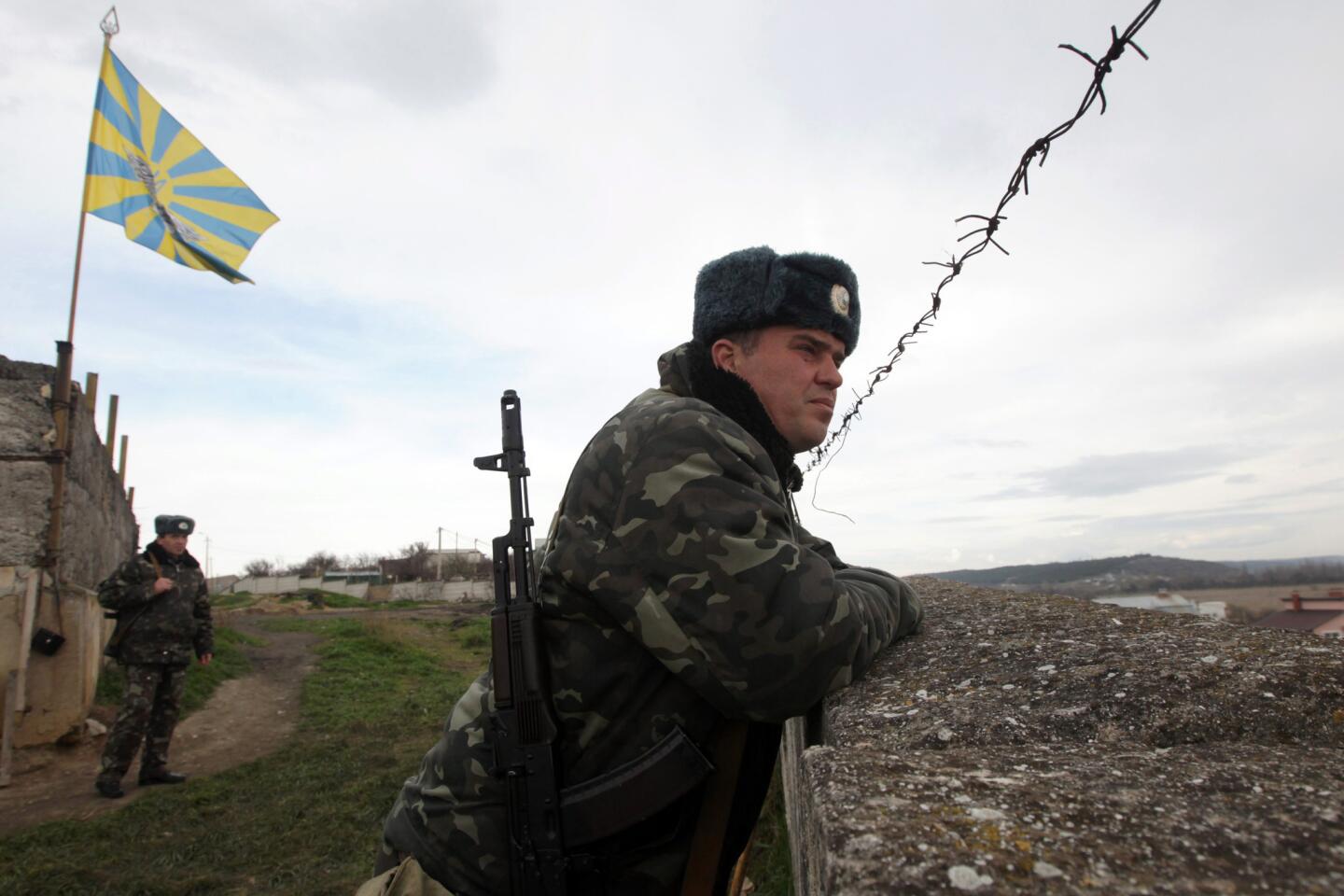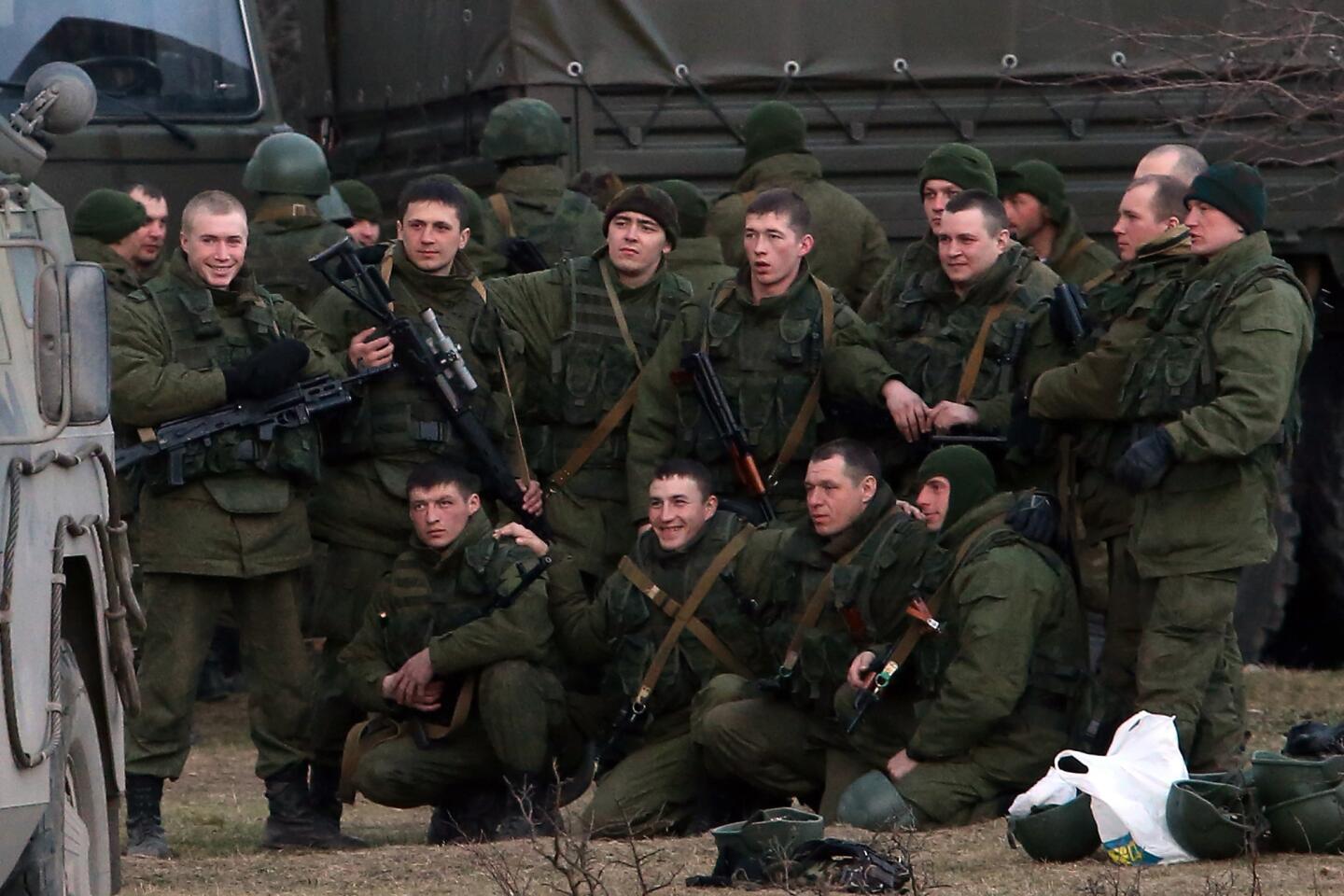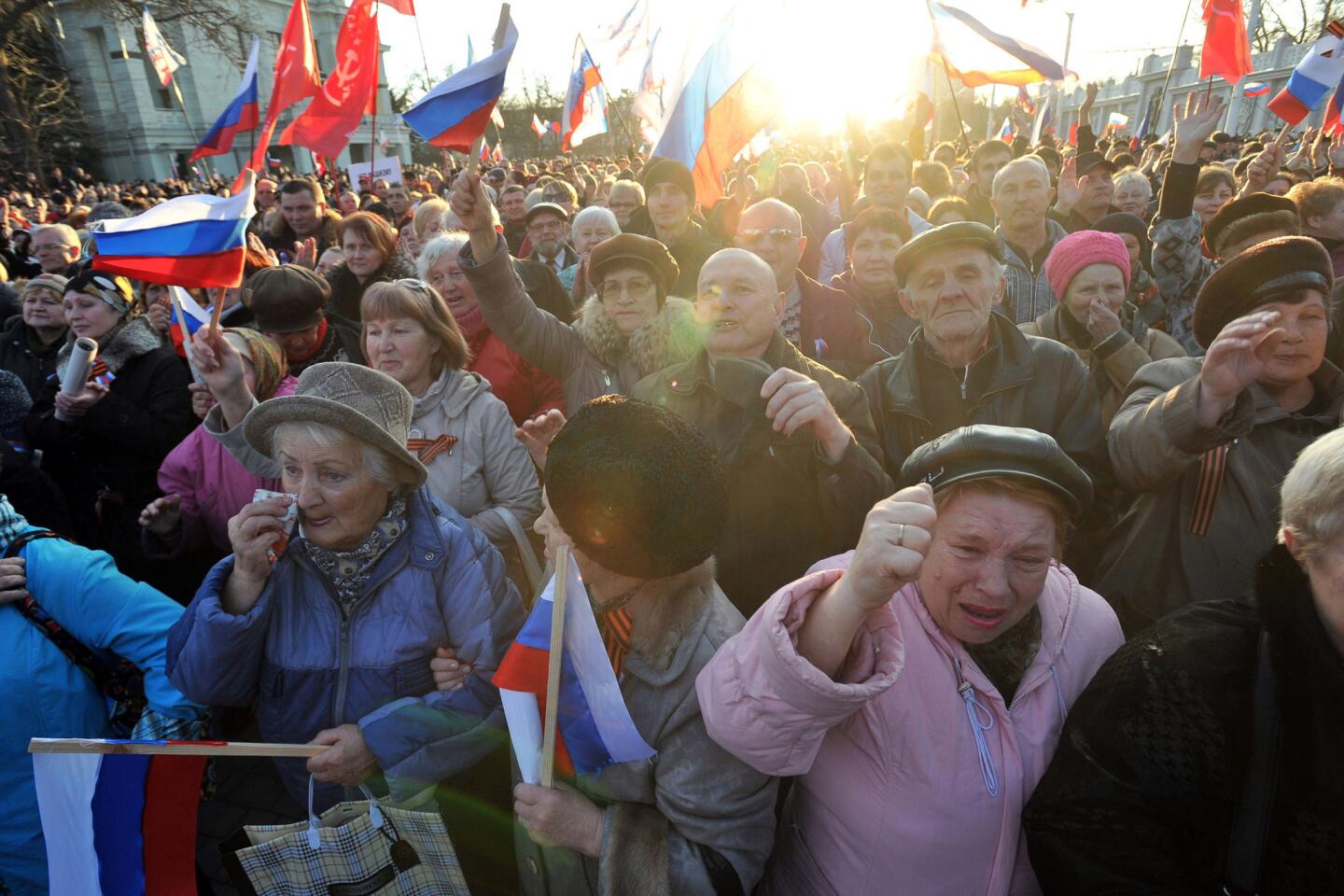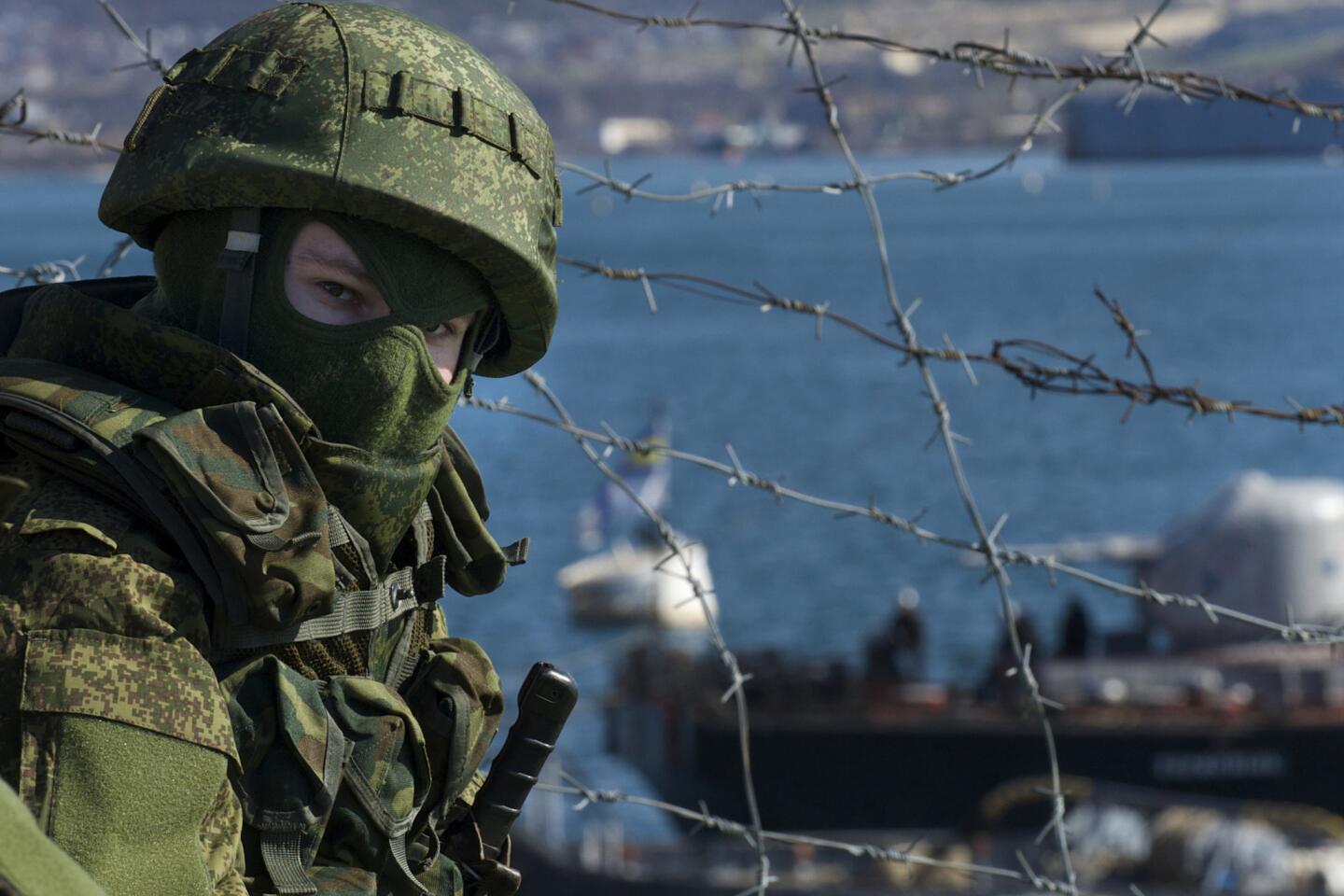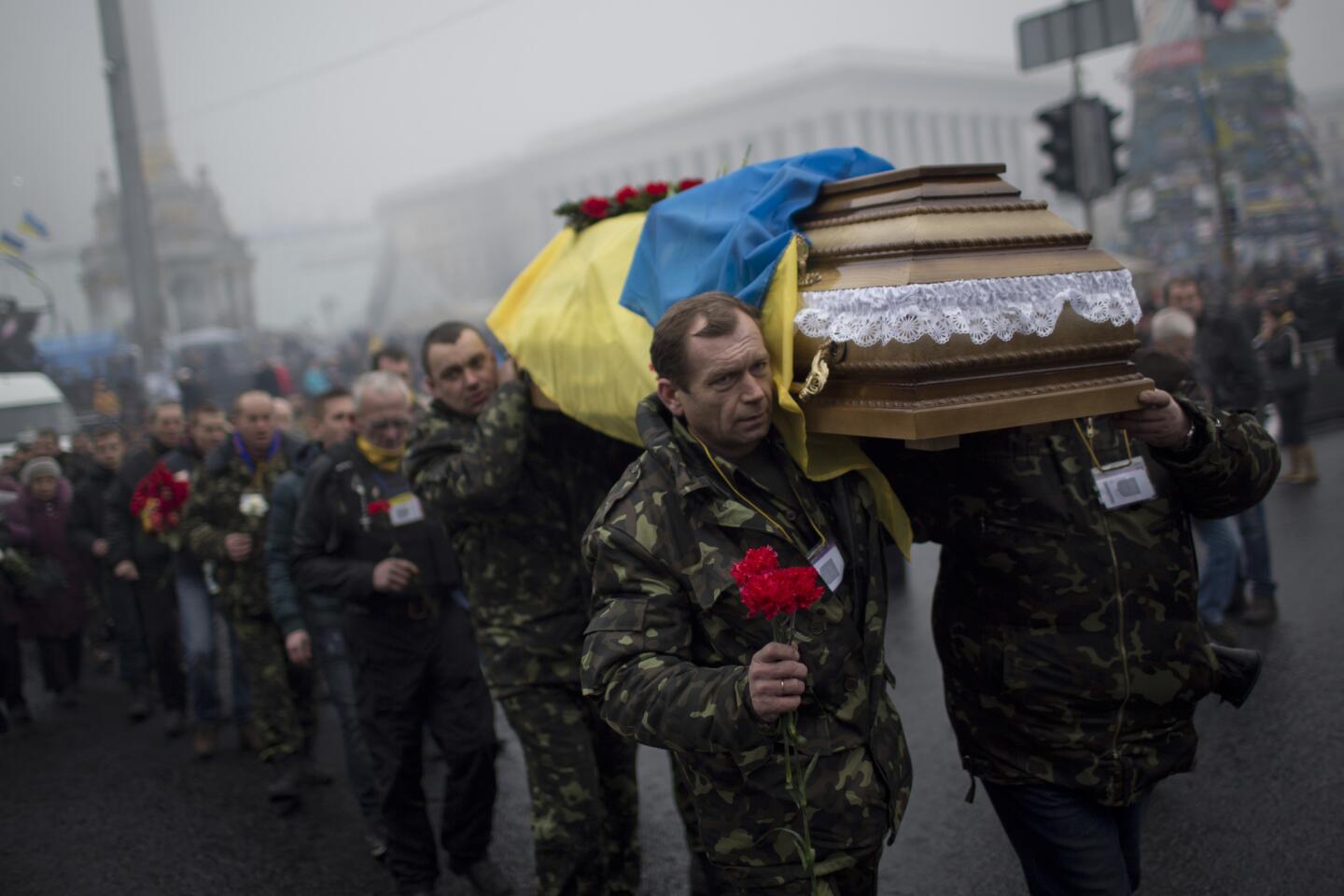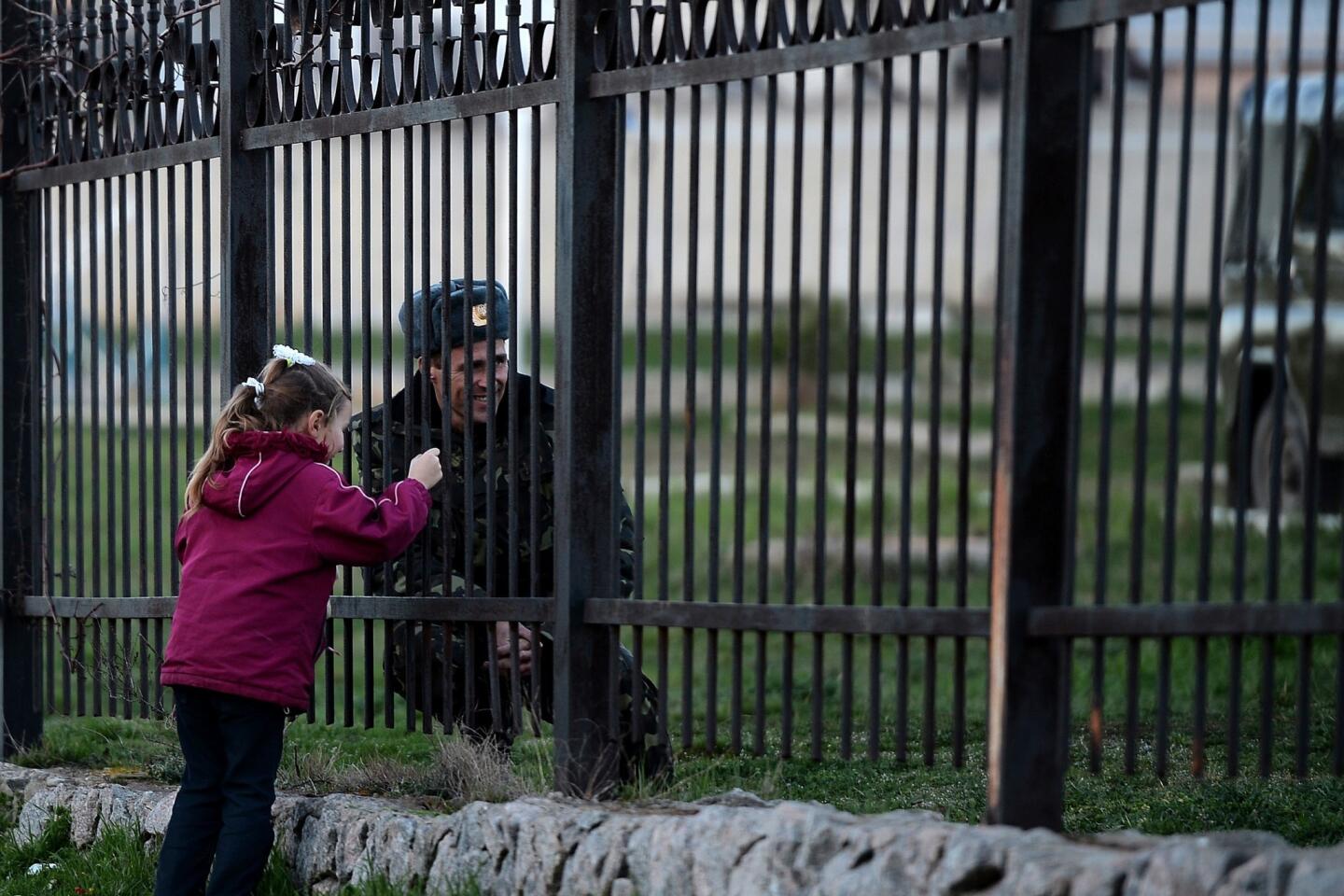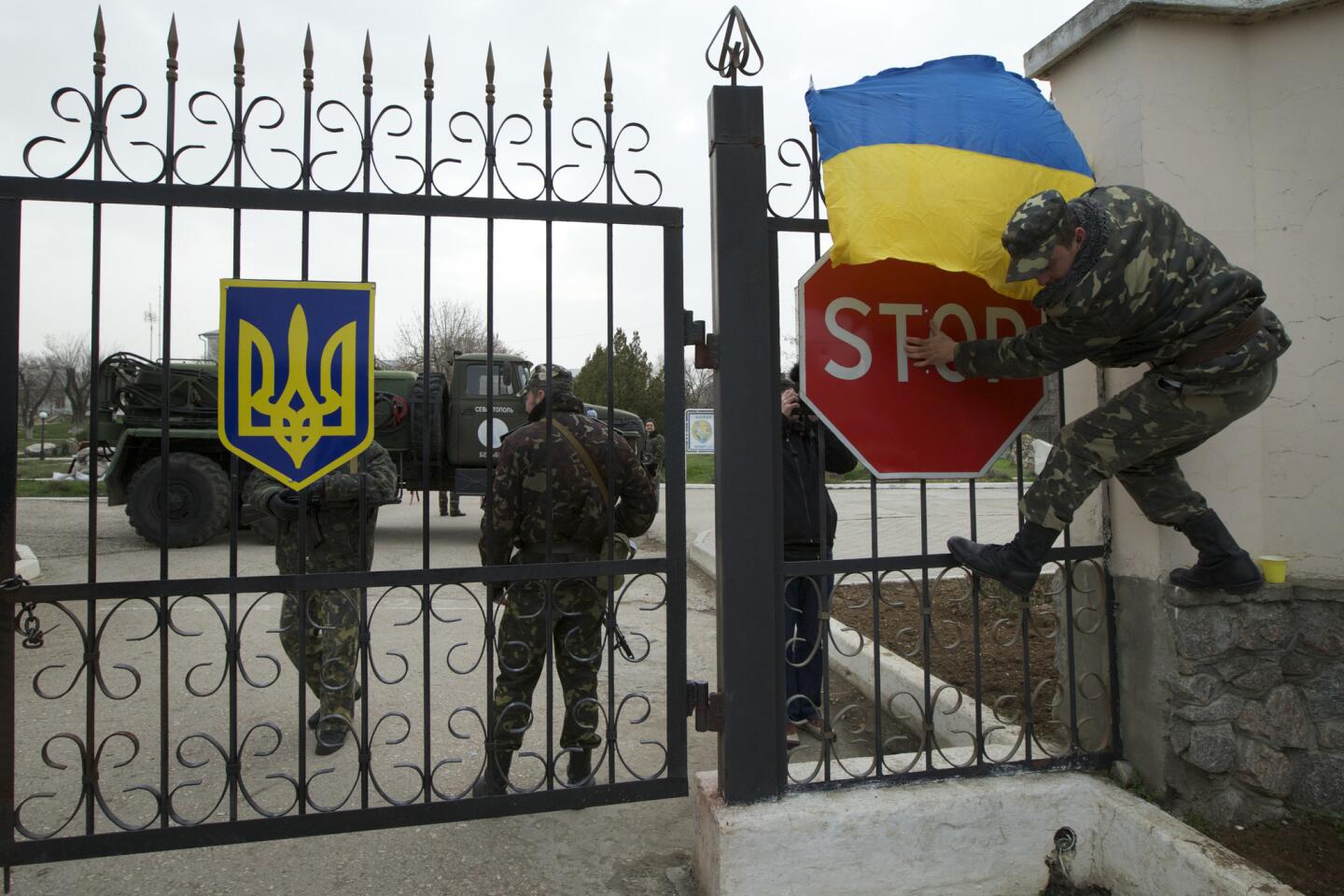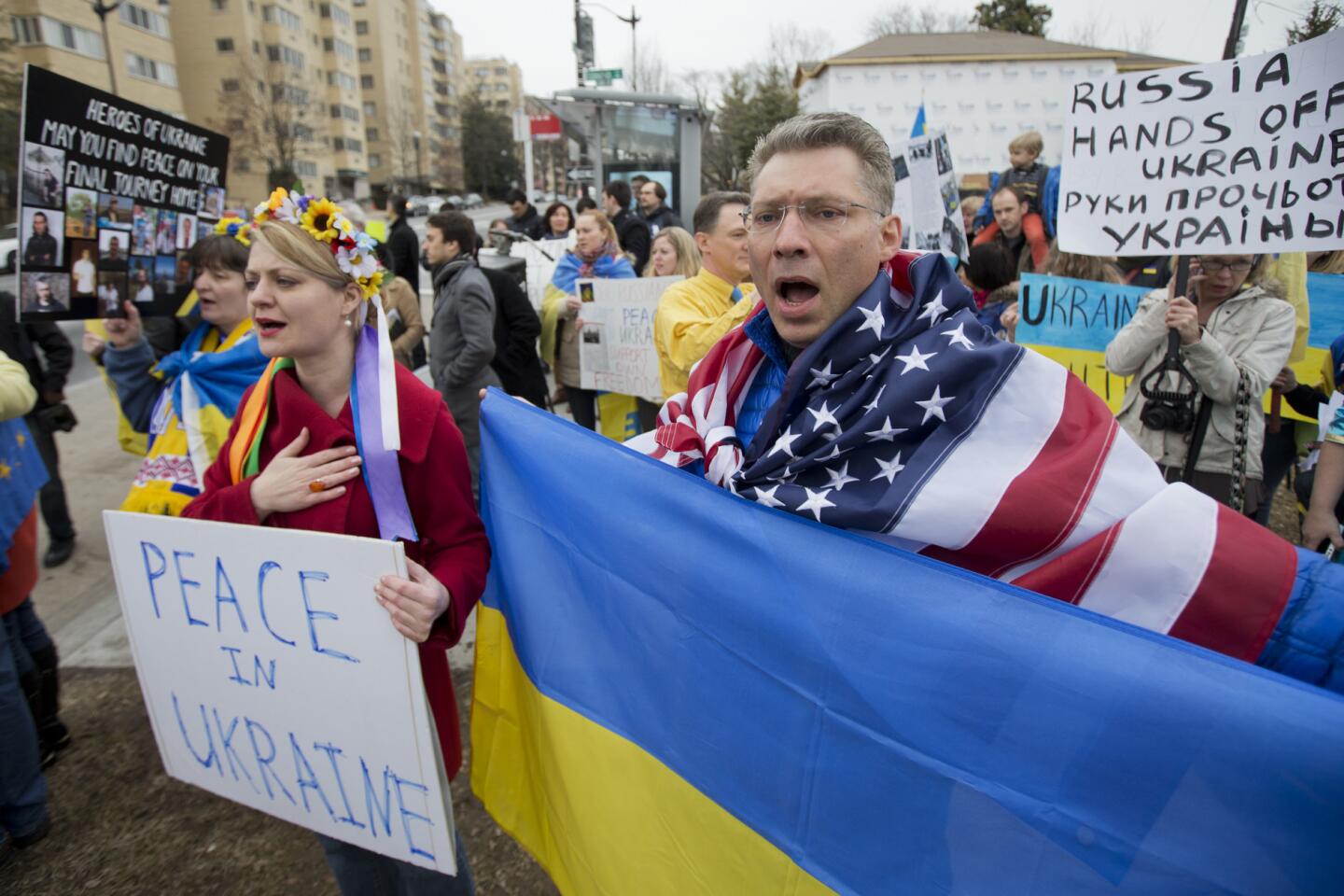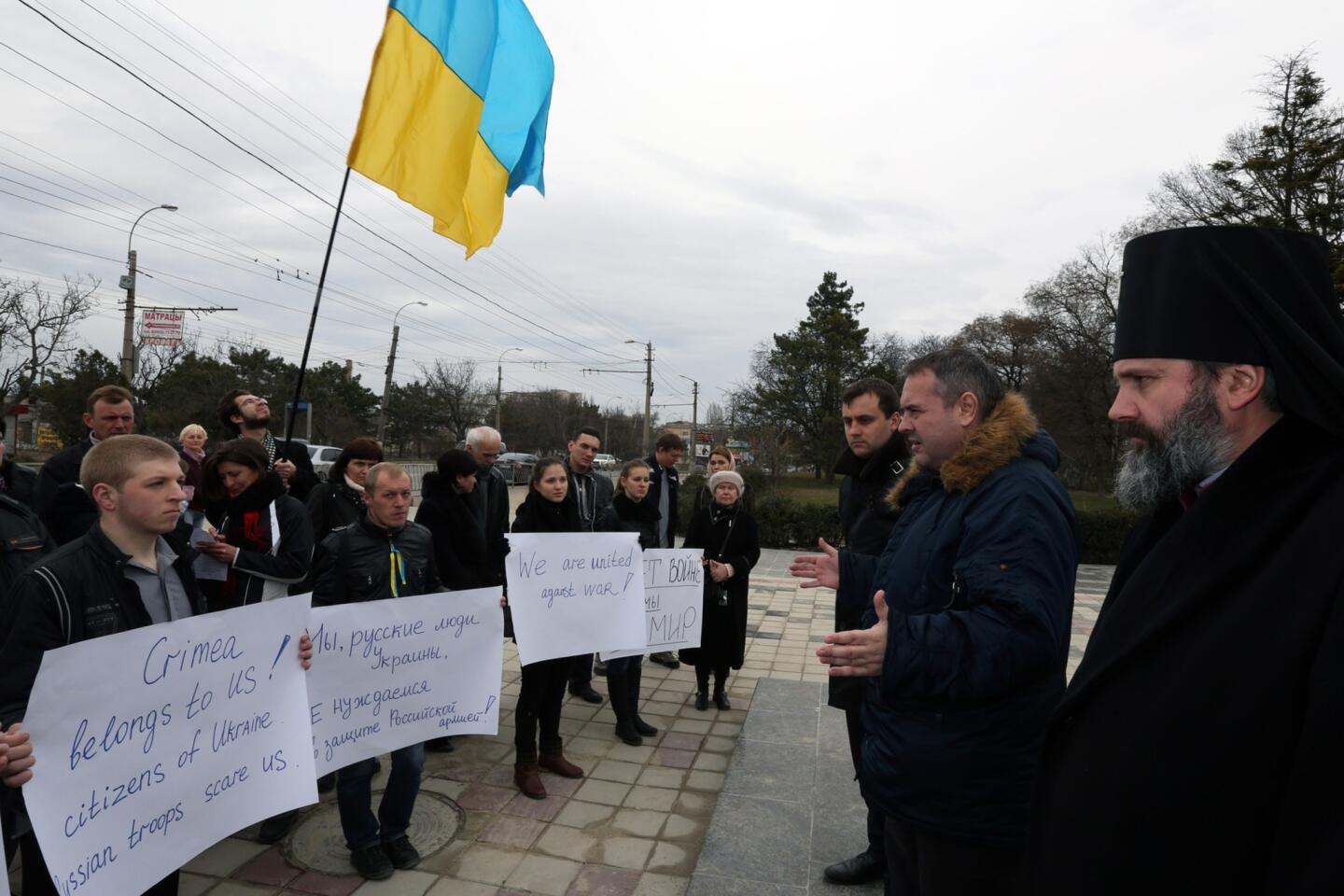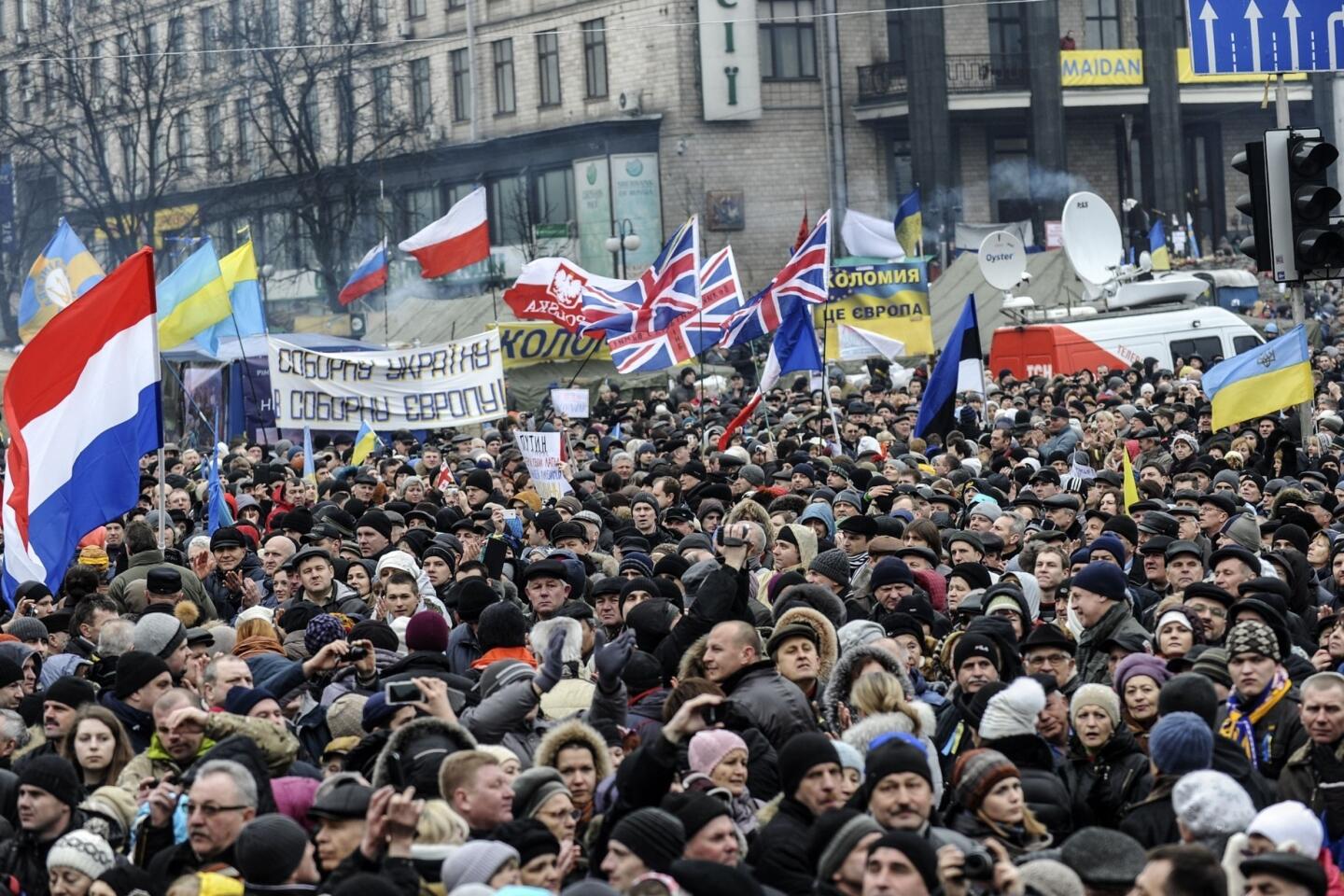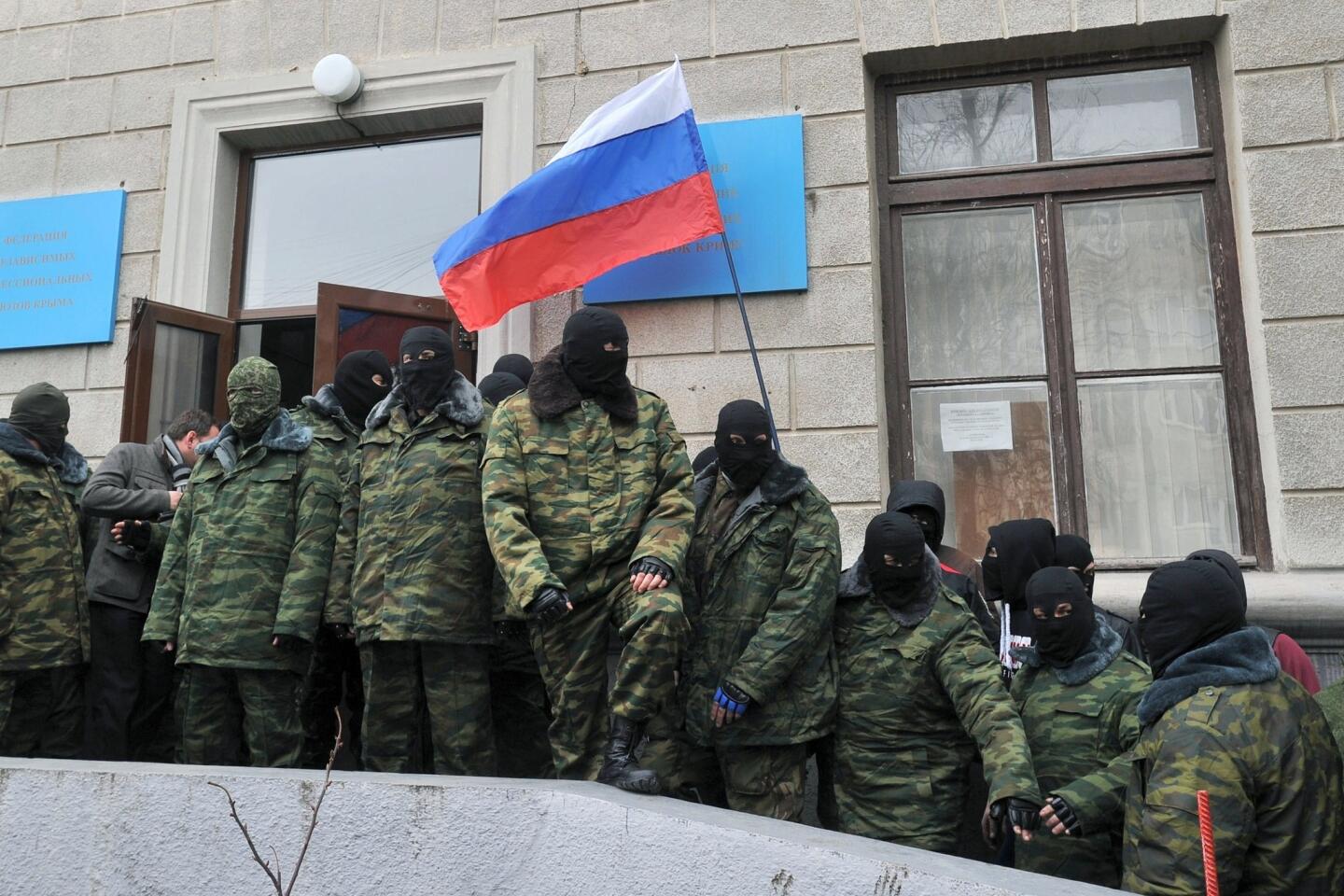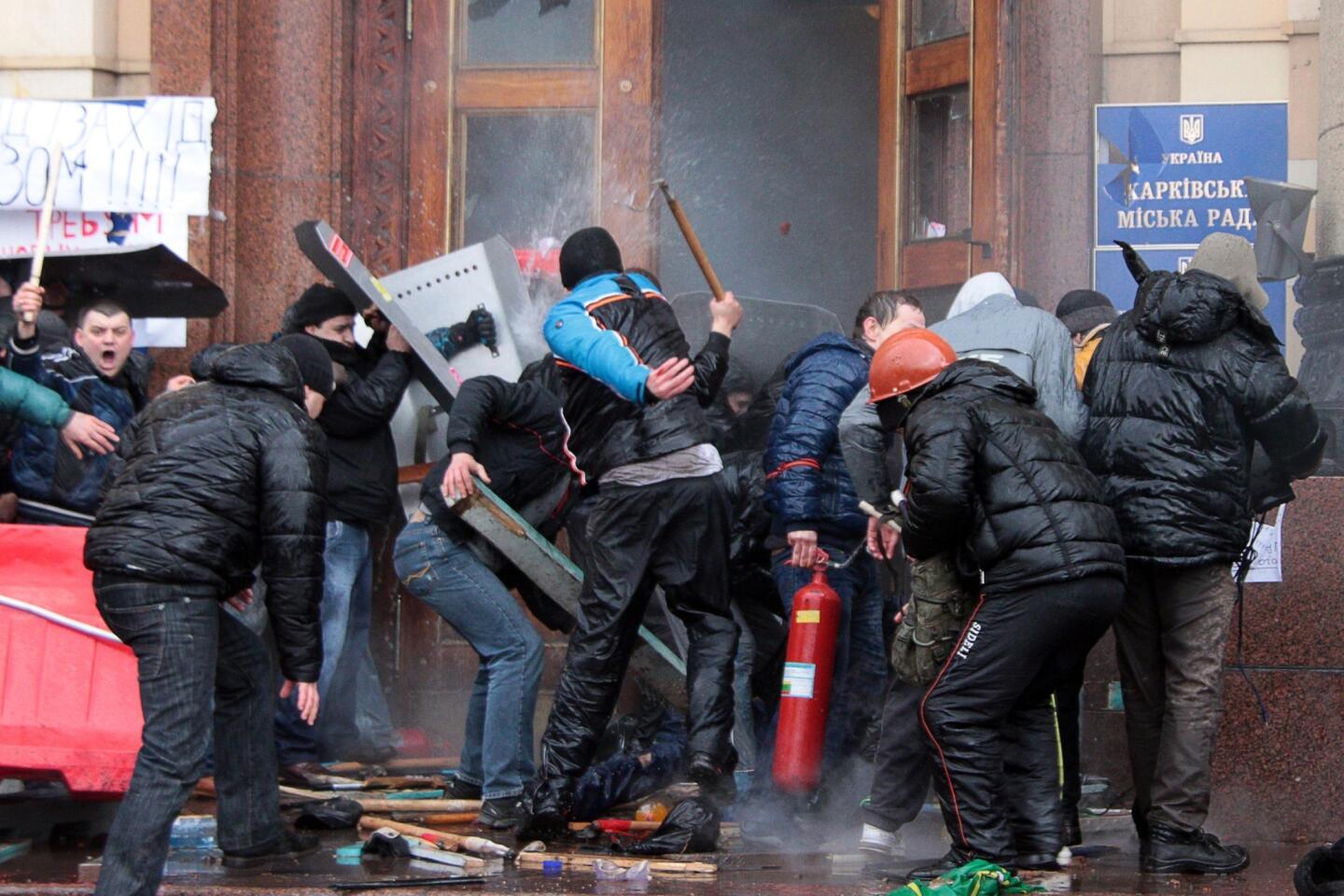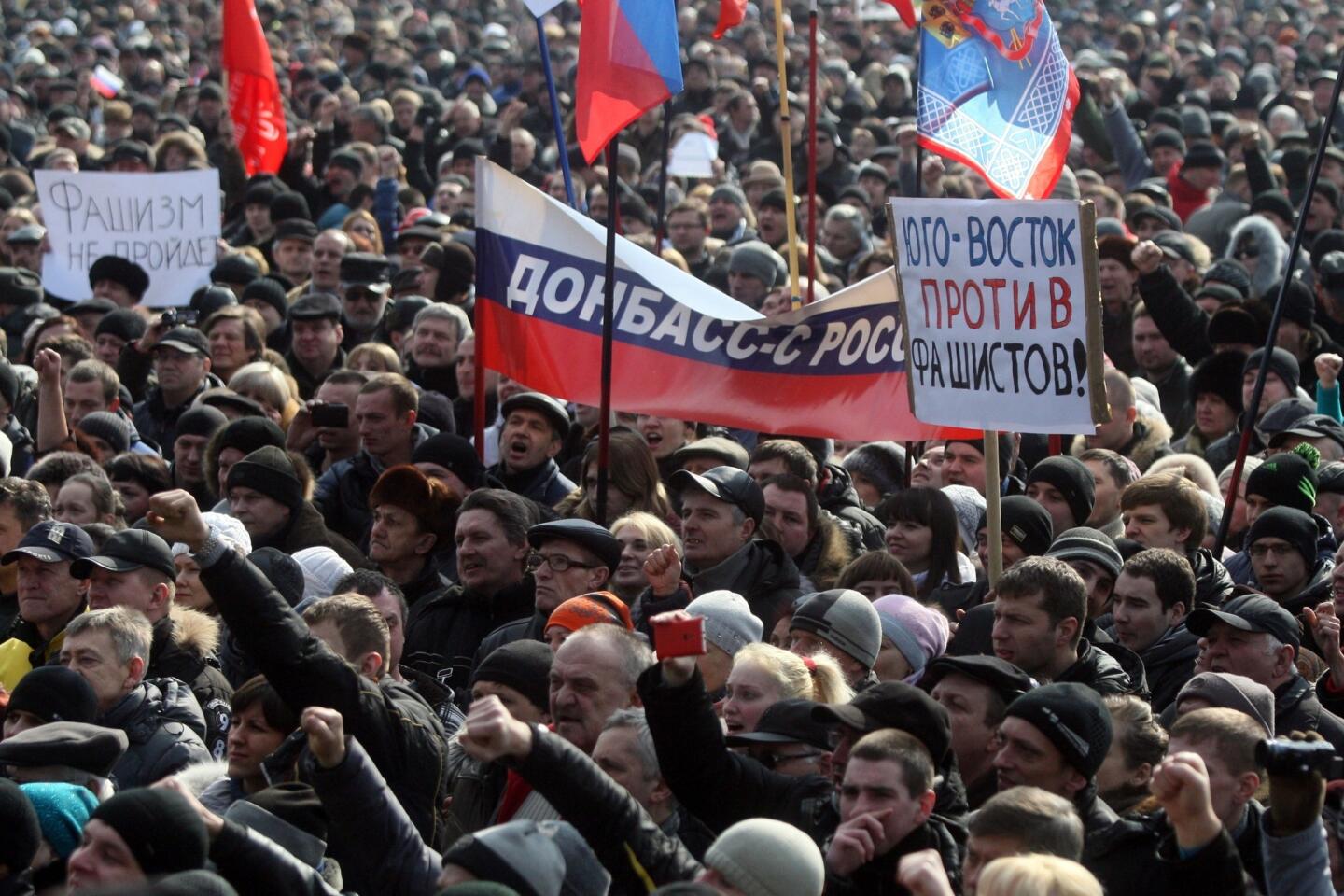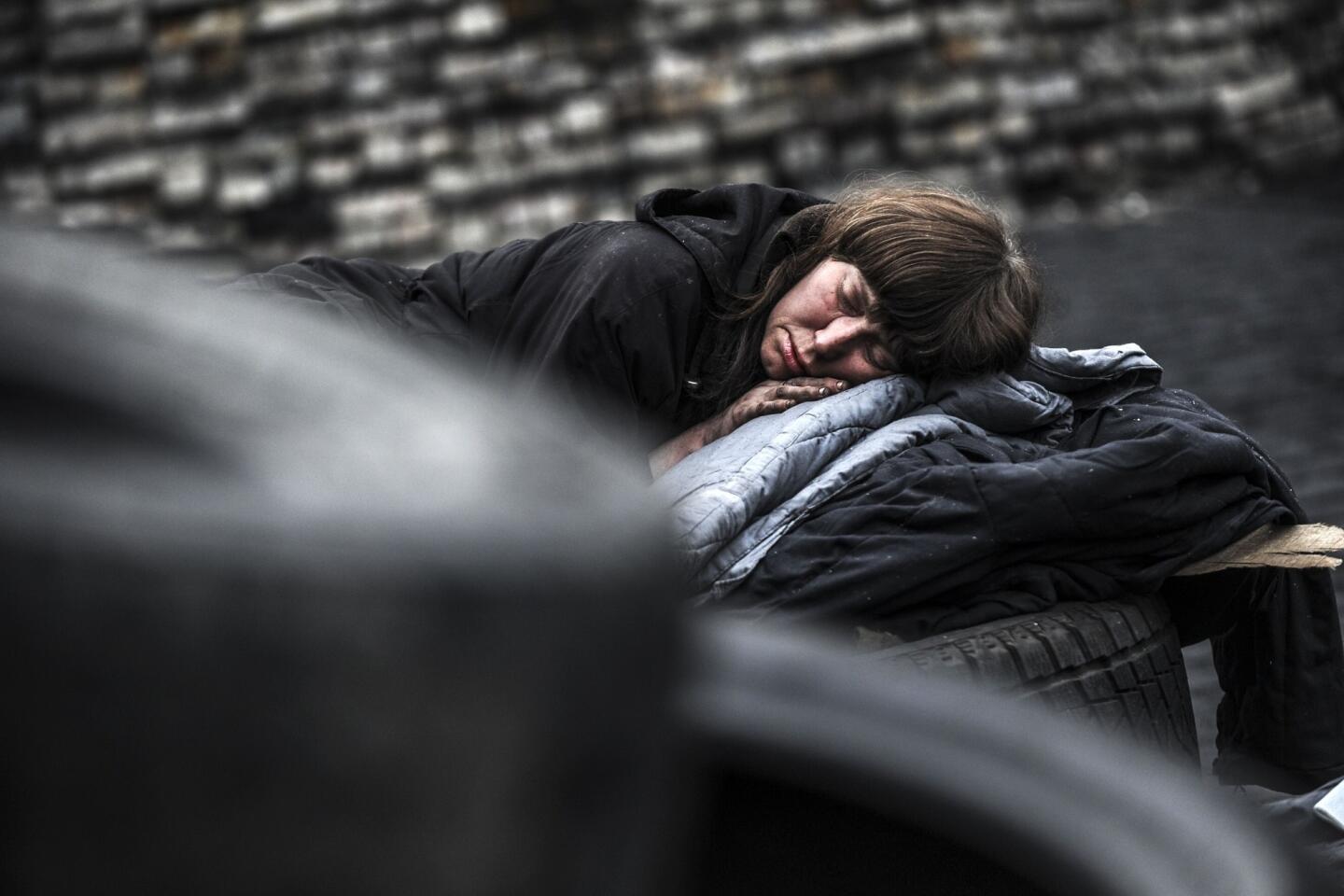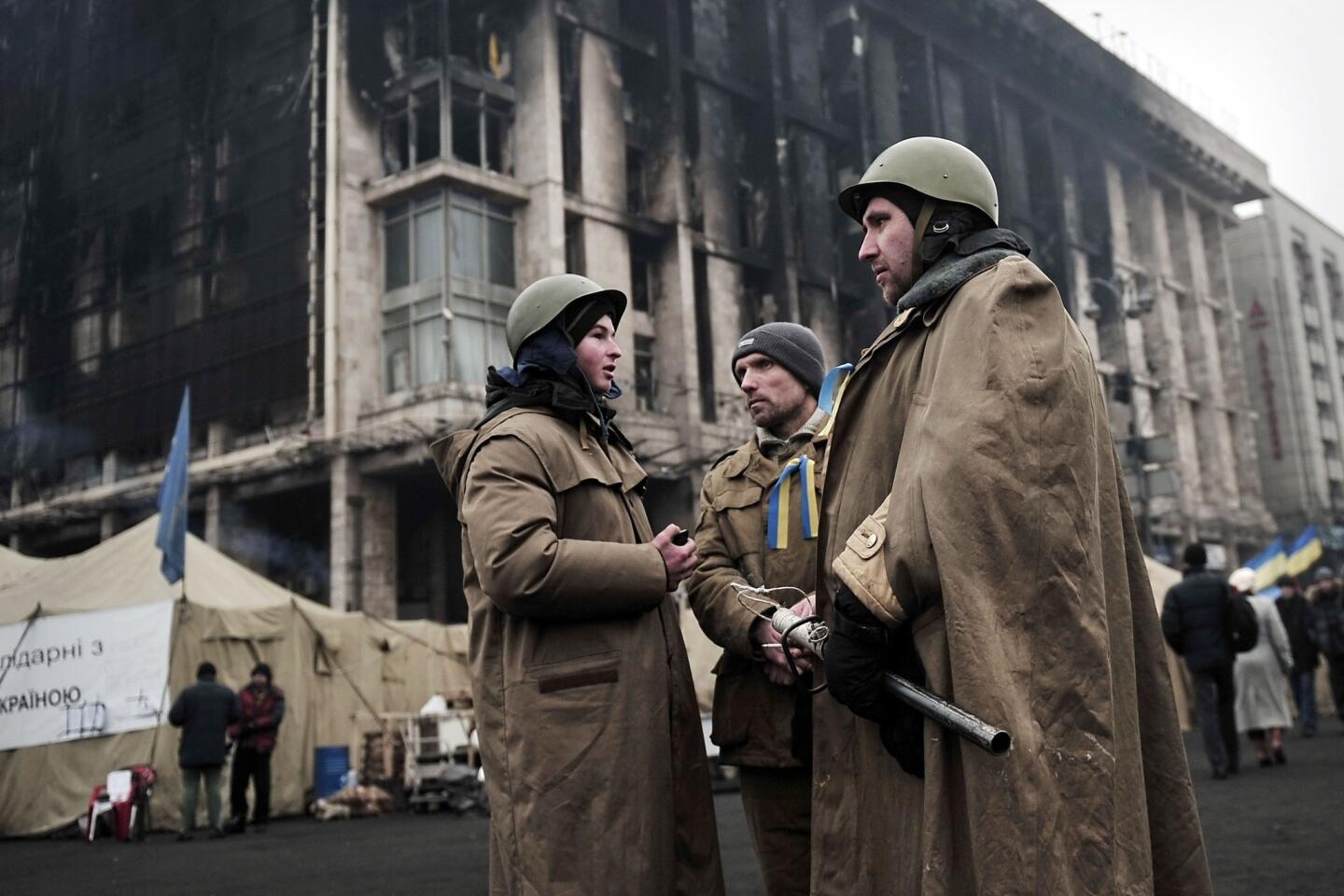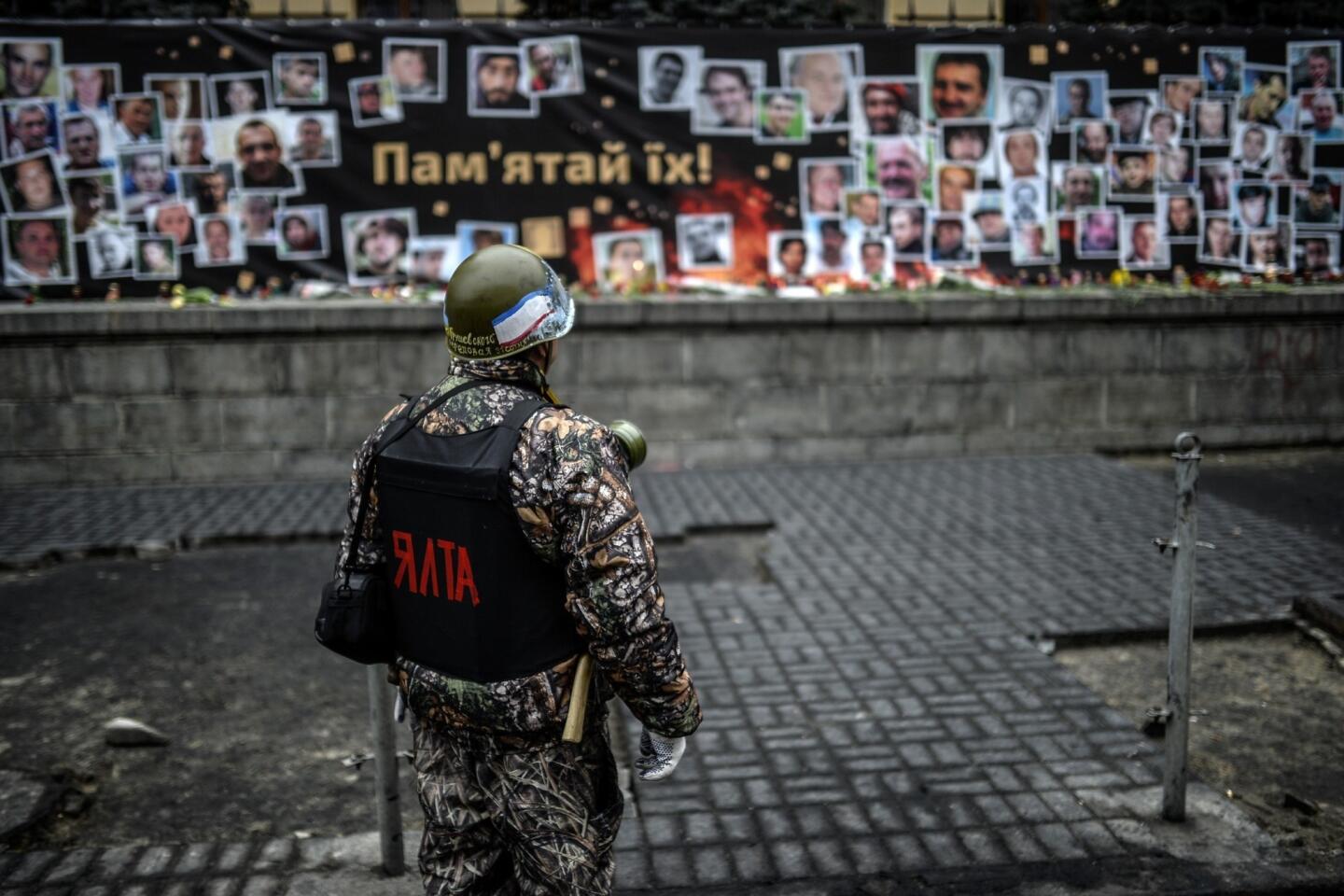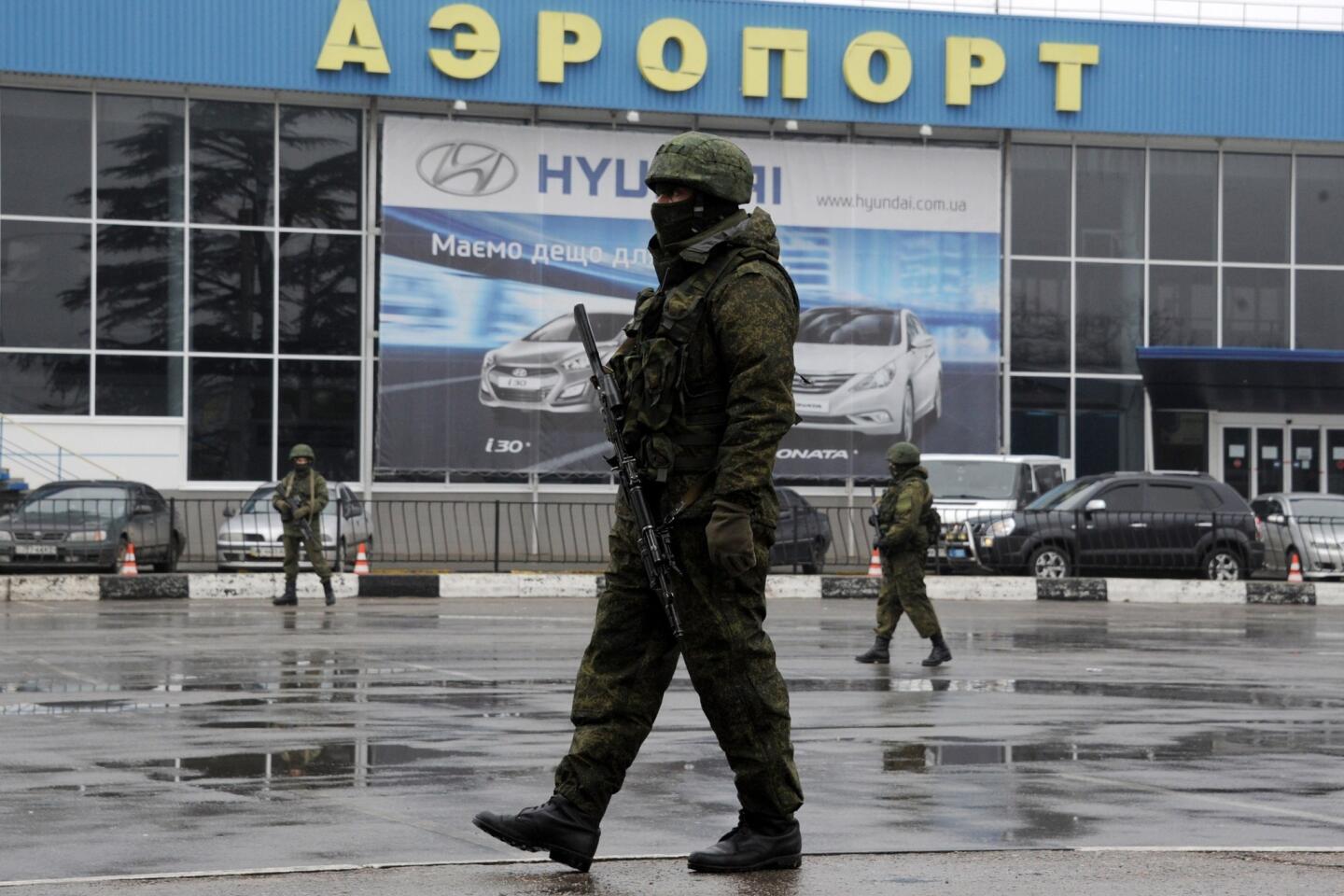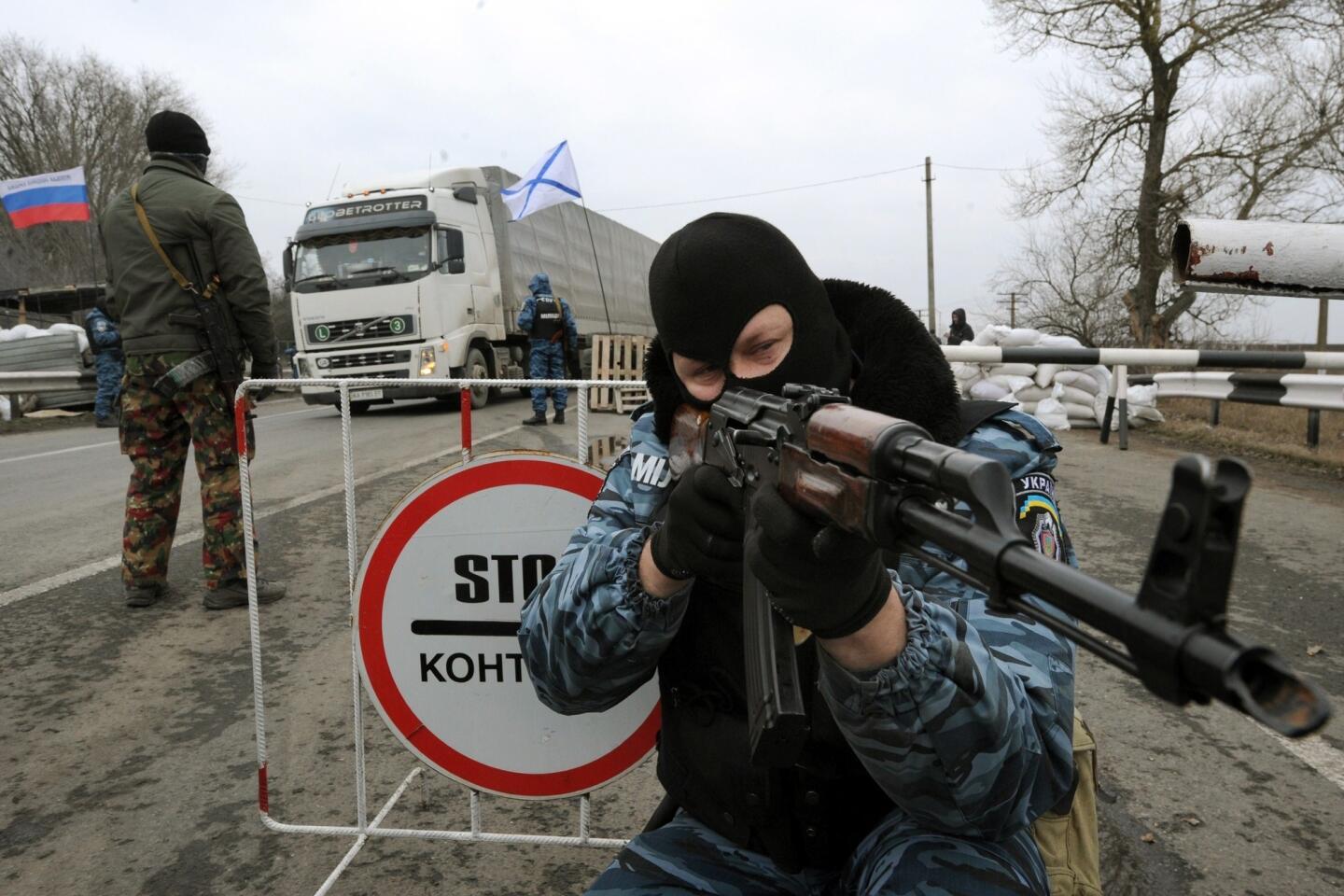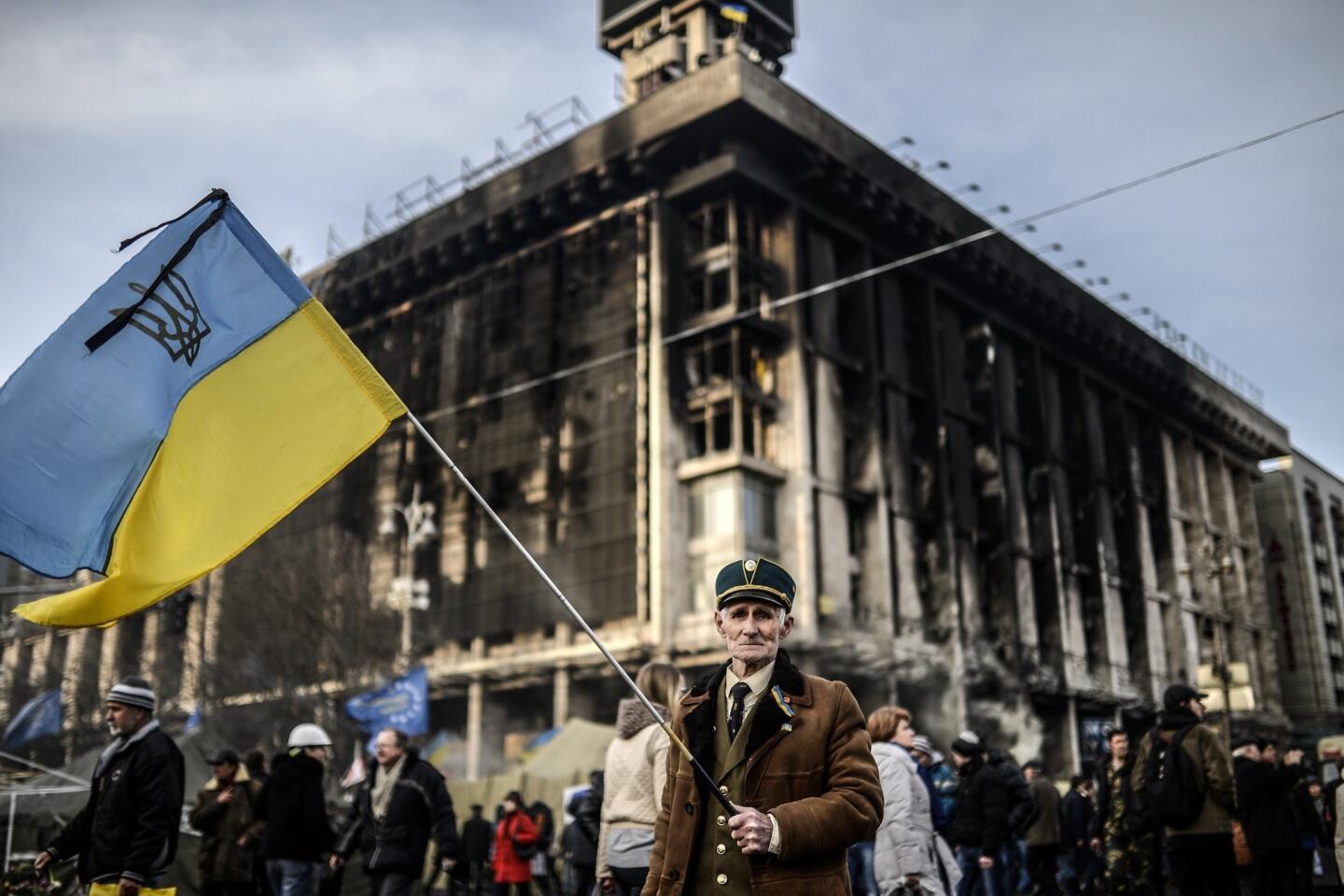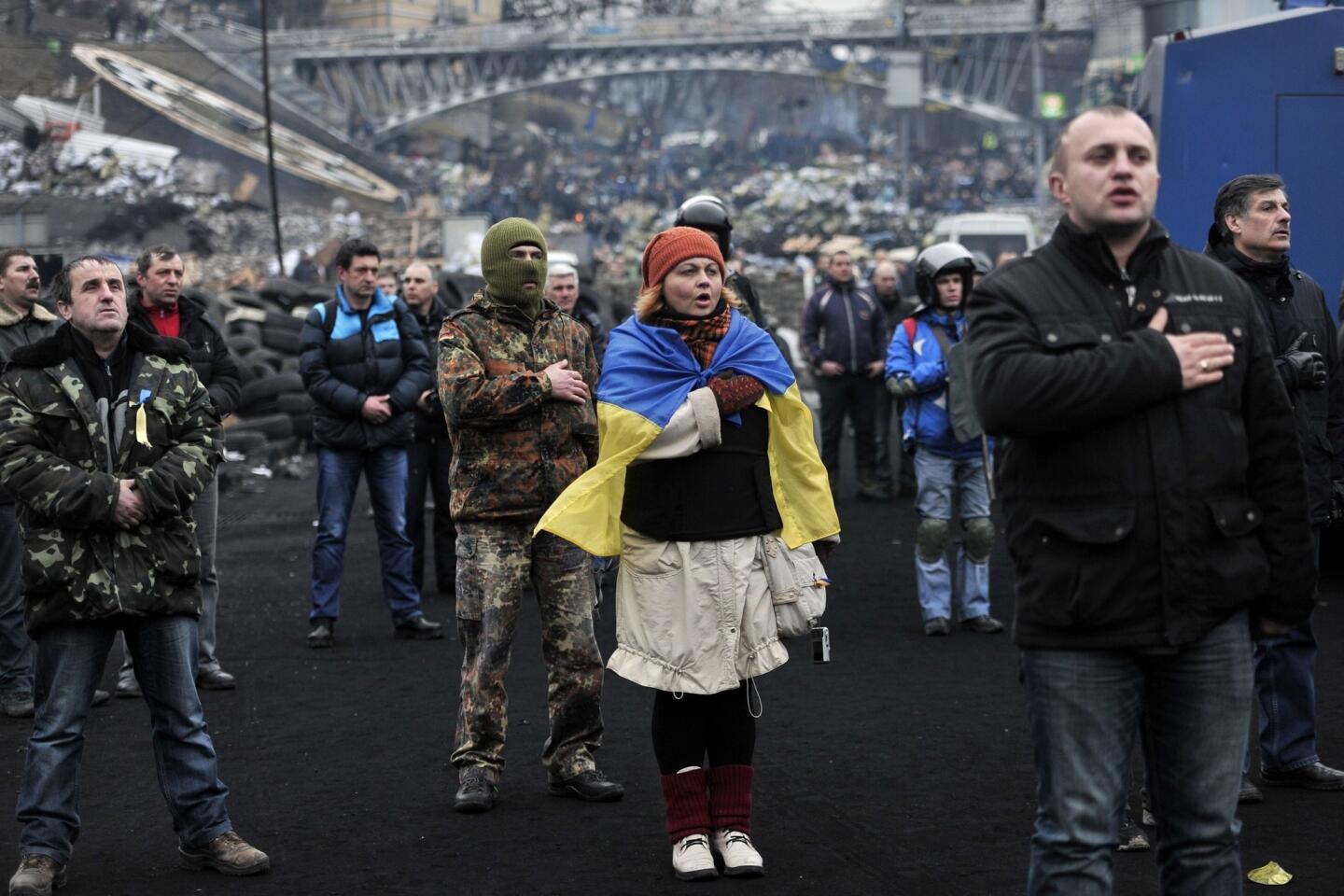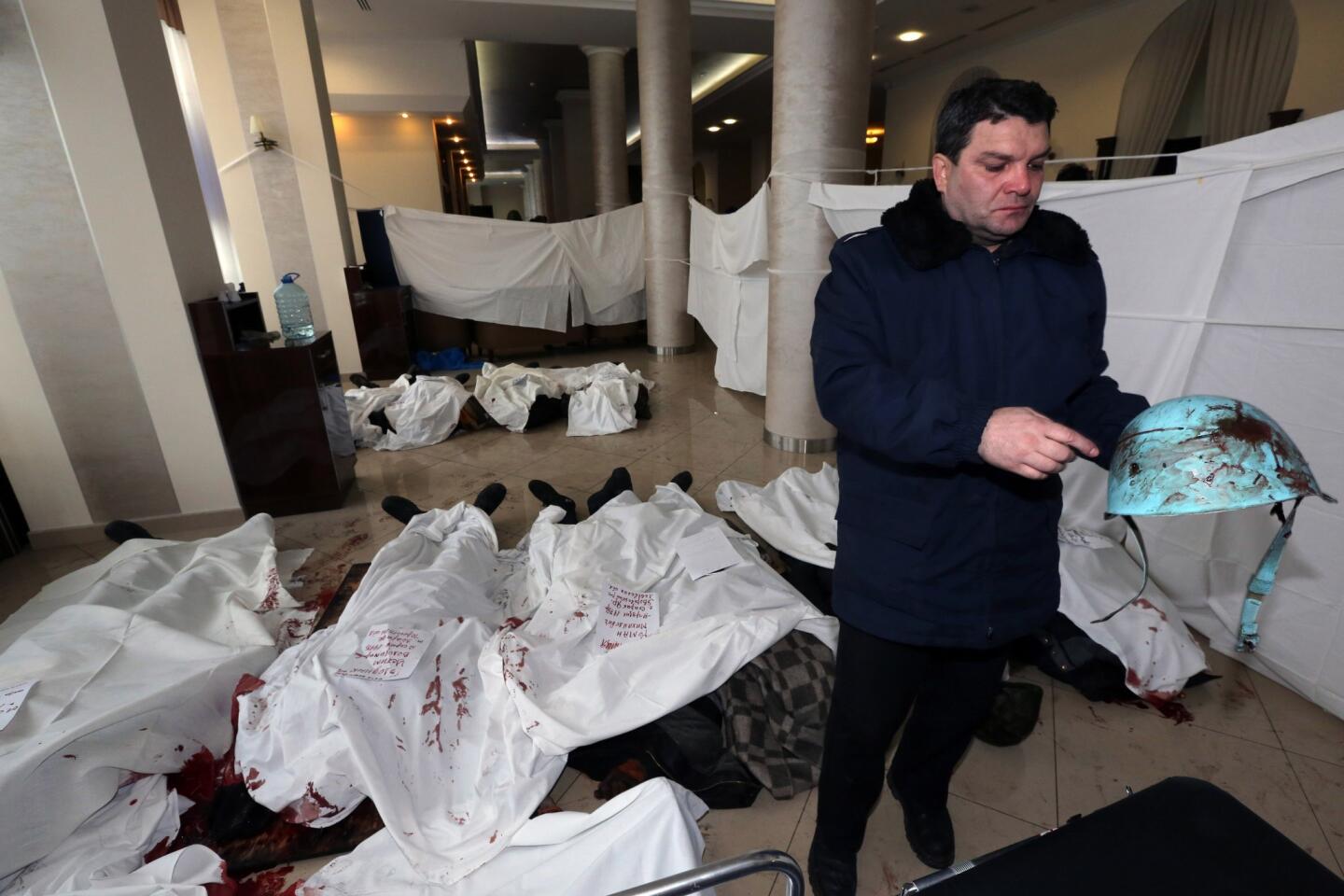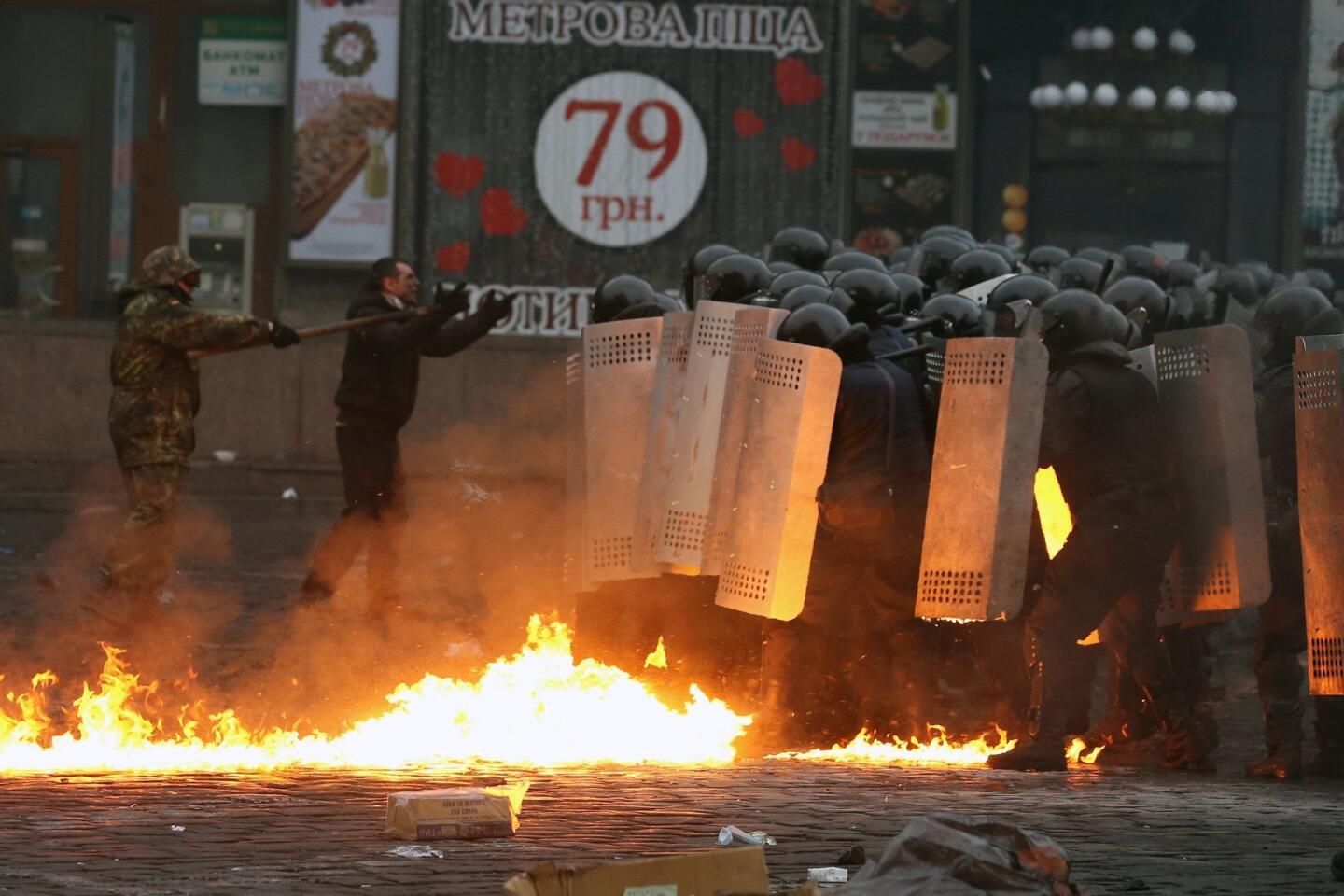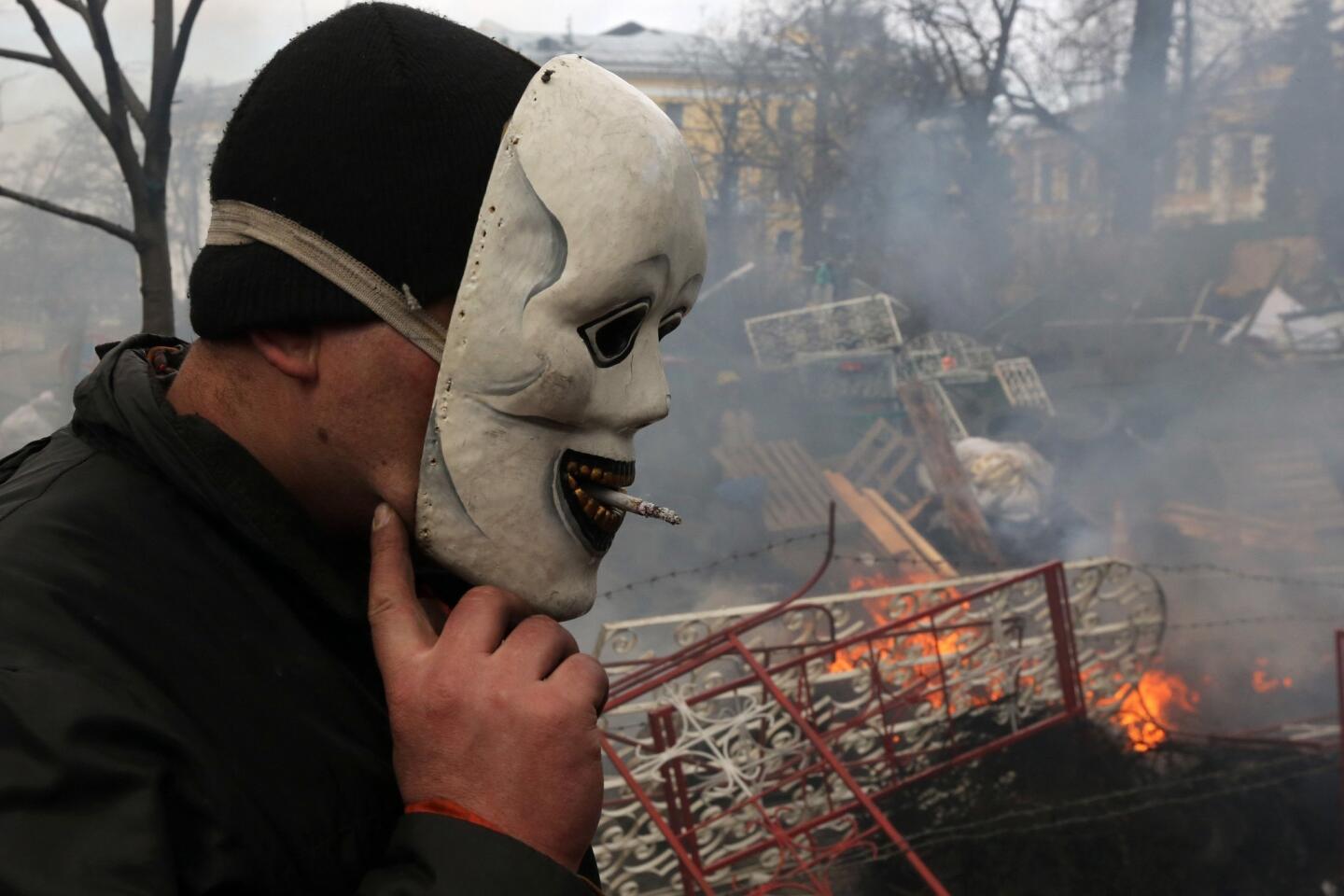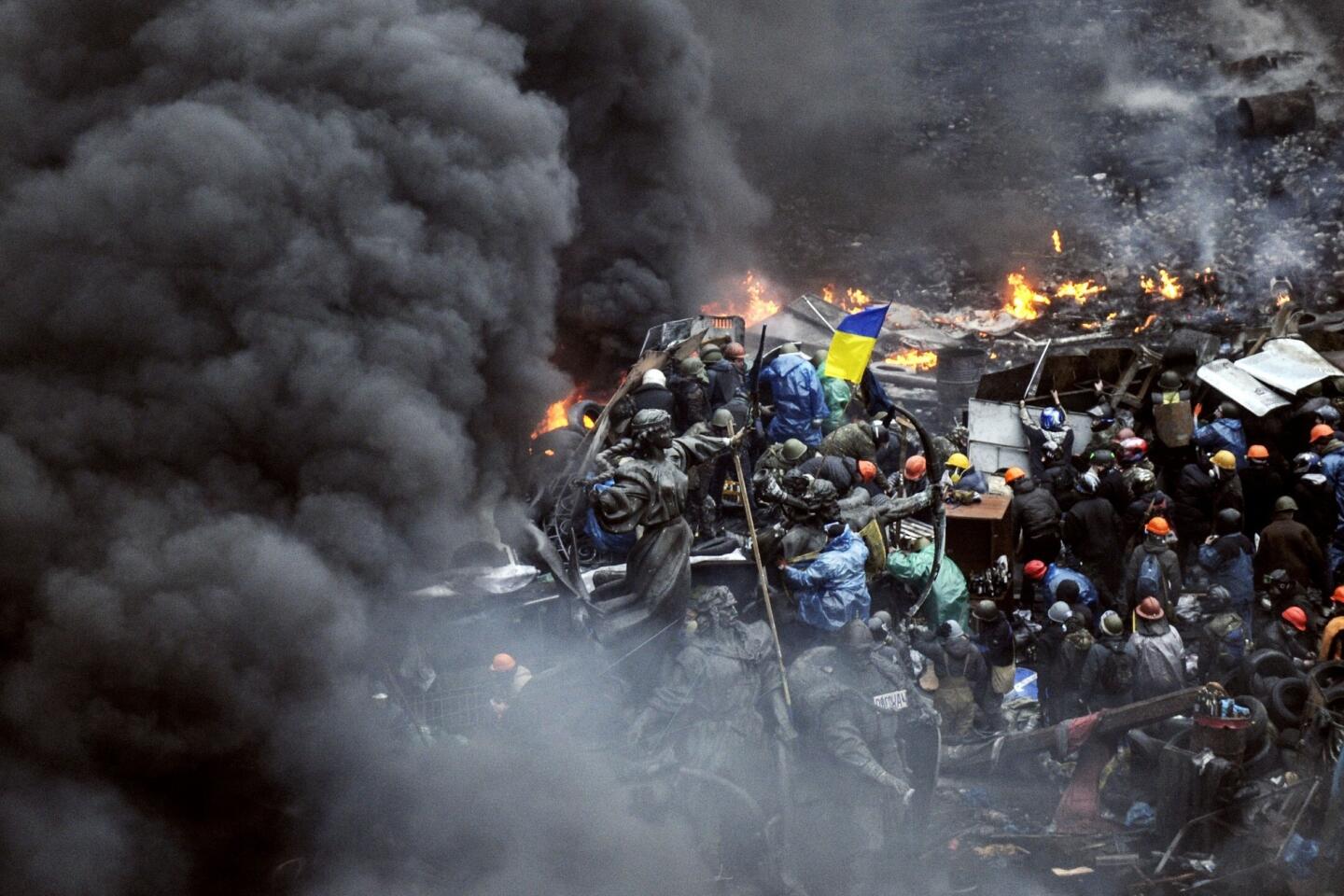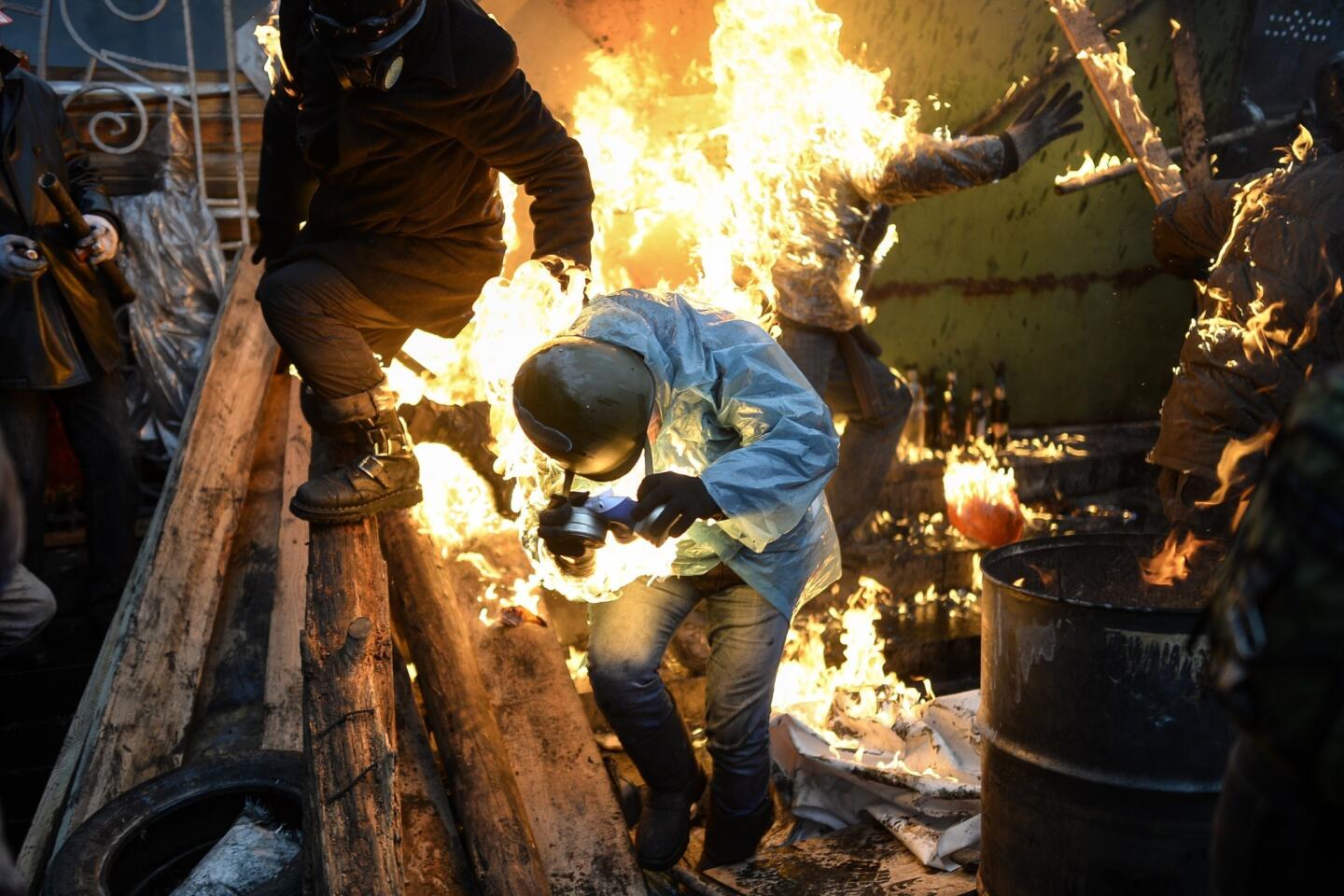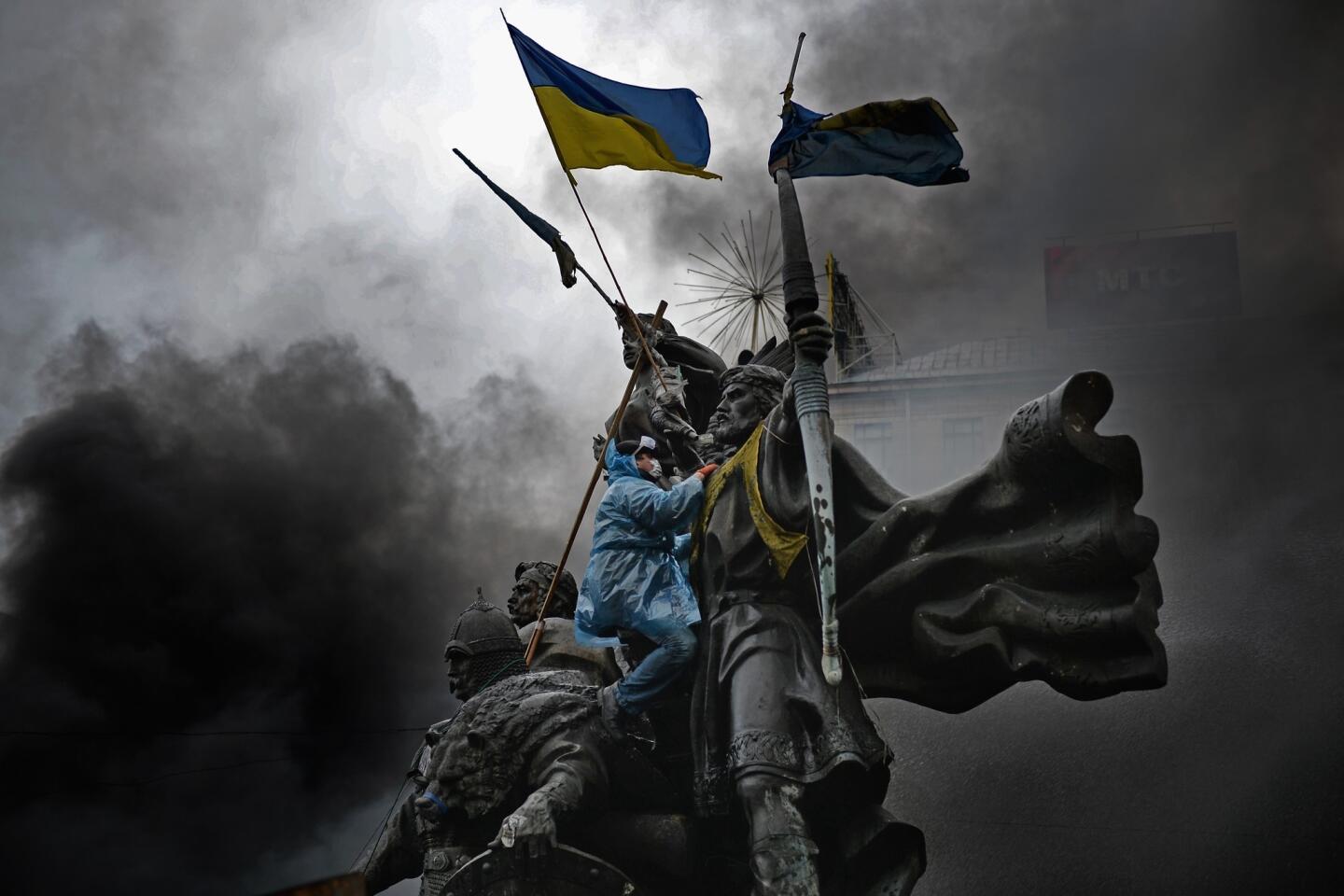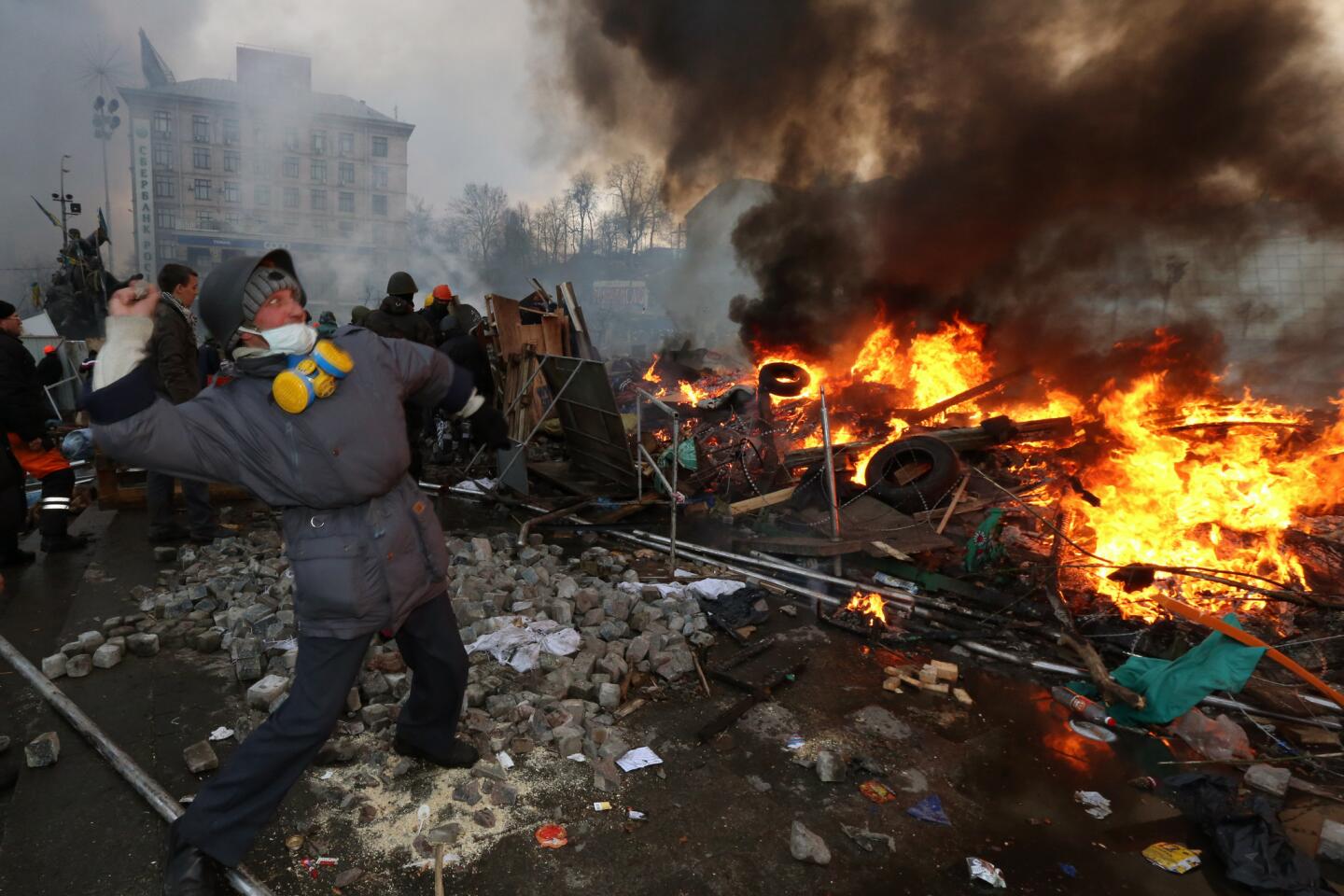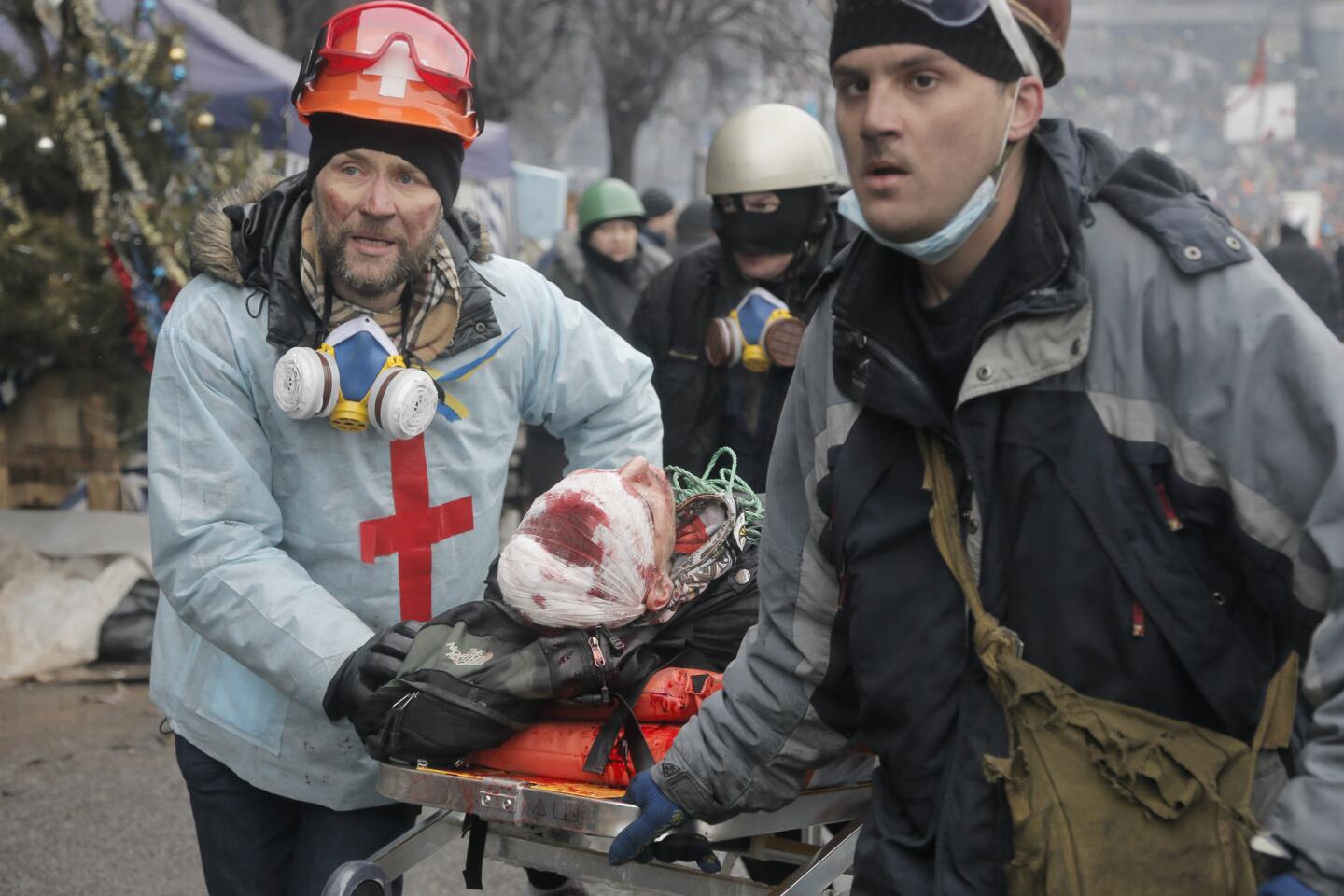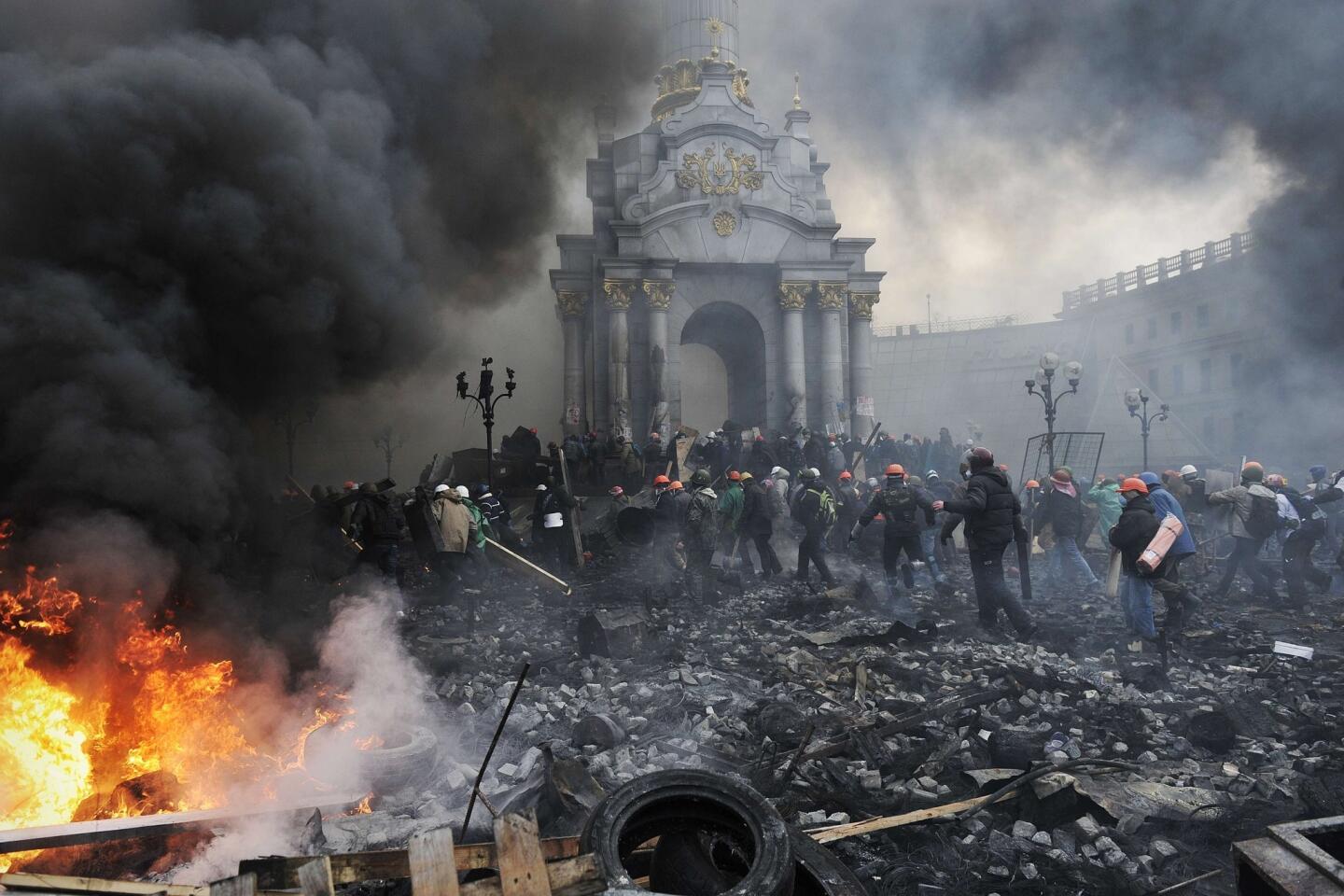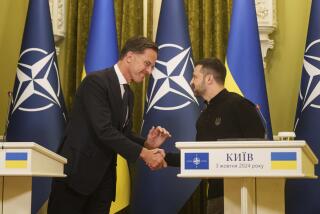Kerry, on Kiev visit, warns Russia over ‘19th century’ behavior
- Share via
KIEV, Ukraine -- U.S. Secretary of State John F. Kerry on Tuesday paid emotional tribute to “these brave Ukrainians” who stood up to autocracy -- some at the cost of their lives -- in the deadly culmination of a three-month rebellion that drove President Viktor Yanukovich into Russian exile.
Picking his way through the piles of firewood, scrap metal, bricks and tires mounded on Independence Square and nearby thoroughfares, Kerry laid flowers at shrines to the dozens killed in the final days of the uprising that caused Yanukovich to flee after agreeing to a government of national unity and early elections.
Kerry said the people of the United States and their partners worldwide are prepared to help Ukraine overcome its profound fiscal problems as well as work to compel Russian President Vladimir Putin to roll back the military aggression committed against Ukraine, an independent country for more than 22 years.
If the Kremlin refuses to behave like a major country that is a member of the Group of 8 industrialized nations, then the democratic world would have no choice but to “isolate Russia politically, diplomatically and economically.”
“In the hearts of Ukrainians and in the eyes of the world, there is nothing strong about what Russia is doing,” Kerry said of the Kremlin dispatch of armed forces to Crimea last week and its standing threat to do so in other Russian-populated regions of Ukraine.
Kerry announced a $1-billion U.S. aid package to Ukraine and said the International Monetary Fund was working out details of a longer-term plan for rescuing the deeply indebted economy.
Russia on Tuesday turned up the economic pressure on its cash-strapped neighbor: The Gazprom energy giant announced it was canceling the 30% discount it had been offering Kiev on gas imports because it is owed more than $1.5 billion on previously delivered shipments.
Kerry’s visit to Kiev, a rubble-strewn capital shrouded by thick fog and smoldering campfires, followed by mere hours a carefully choreographed news conference in Moscow by Putin. The Kremlin leader insisted he has the right to use “any means” necessary to protect Russian interests in Ukraine from what he portrays as a gang of extremists in the Kiev leadership.
Kerry warned Putin that the “organized, decent world” provides countless means of resolving political and territorial disputes, and that sending in troops to seize control of sovereign Ukraine’s Crimean peninsula is 19th century behavior that cannot be tolerated by modern, democratic nations.
“There has been no sign of crime, no political retribution,” Kerry said of Russian politicians’ and media claims that the former opposition figures now in power in Kiev endanger the ethnic Russian minority and Russian speakers, who make up about a quarter of Ukraine’s 46 million population.
“It is diplomacy and respect for sovereignty and not unilateral force that can best solve disputes like this in the 21st century,” Kerry said, conceding that the Kremlin has legitimate interests to protect in independent Ukraine but that its military deployment has in no way secured them.
Russia could turn to the U.N. Security Council, to the Organization for Security and Cooperation in Europe and to human rights organizations to monitor and evaluate such disputes, Kerry said.
Putin, who reportedly agreed to an OSCE fact-finding mission in a phone conversation with German Chancellor Angela Merkel on Sunday, has made no mention of the proposal for outside mediation. On the contrary, during his news conference with journalists from Kremlin-controlled media, he stuck to the official Russian line that Yanukovich was toppled in “an anti-constitutional coup” and remains the legitimate leader of Ukraine as only death or impeachment can remove an elected president.
But Putin also made some disparaging asides about Yanukovich, who was pliable in carrying out Moscow’s opposition to Ukraine moving its economy and future closer to Western Europe and away from its traditional dependence and integration with Russia.
The uprising that ended late last month in a hail of sniper bullets that killed more than 80 demonstrators and police was sparked by Yanukovich’s decision in late November to reject an association agreement with the European Union, a move westward vehemently opposed by the Kremlin.
Kerry lambasted Putin, accusing him of creating a pretext for Russia invading Ukraine and then denying, “against all evidence,” that it was doing anything illegal or in violation of its treaty obligations to other former Soviet states.
Putin said he hadn’t seen the need to send more troops to Crimea, where the Kremlin has thousands stationed at its Black Sea fleet base in Sevastopol, which it leases from Ukraine, and at air strips and support facilities across the strategic peninsula that also hosts popular beach resorts.
The divergent accounts of the situation in Crimea from Putin and Kerry coincided with a tense confrontation at the Belbek air station near Sevastopol, where about 300 Ukrainian troops marched unarmed toward a roadblock in front of their base manned by a handful of Russian gunmen. One of the Russians fired warning shots over the heads of the flag-bearing column of Ukrainian soldiers, stopping them with warnings that they would shoot at their legs if they didn’t halt their advance.
No deaths are known to have occurred during the standoff that began last week, when masked Russian gunmen in unmarked military fatigues seized control of the Crimean regional parliament and government buildings, then deployed to the Simferopol and Belbek airports. Telecommunications were also disrupted, although public utilities and transport were mostly back in service by Monday.
Twitter: @cjwilliamslat
More to Read
Sign up for Essential California
The most important California stories and recommendations in your inbox every morning.
You may occasionally receive promotional content from the Los Angeles Times.
